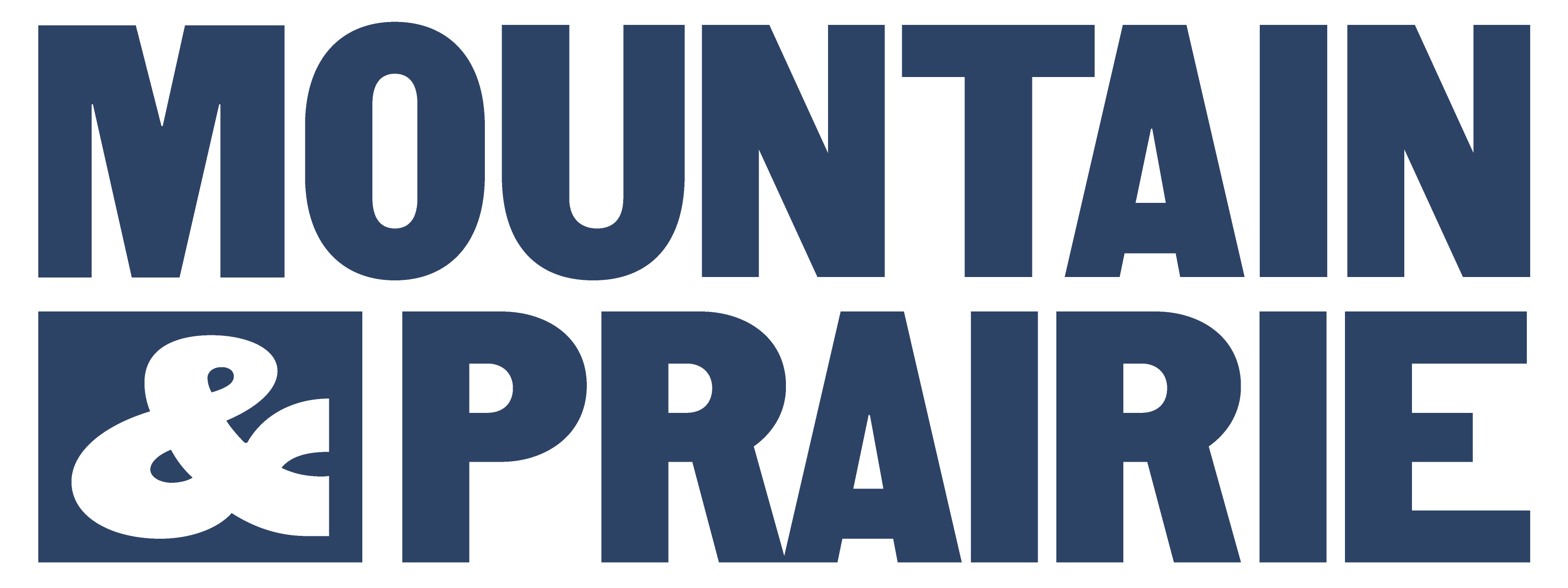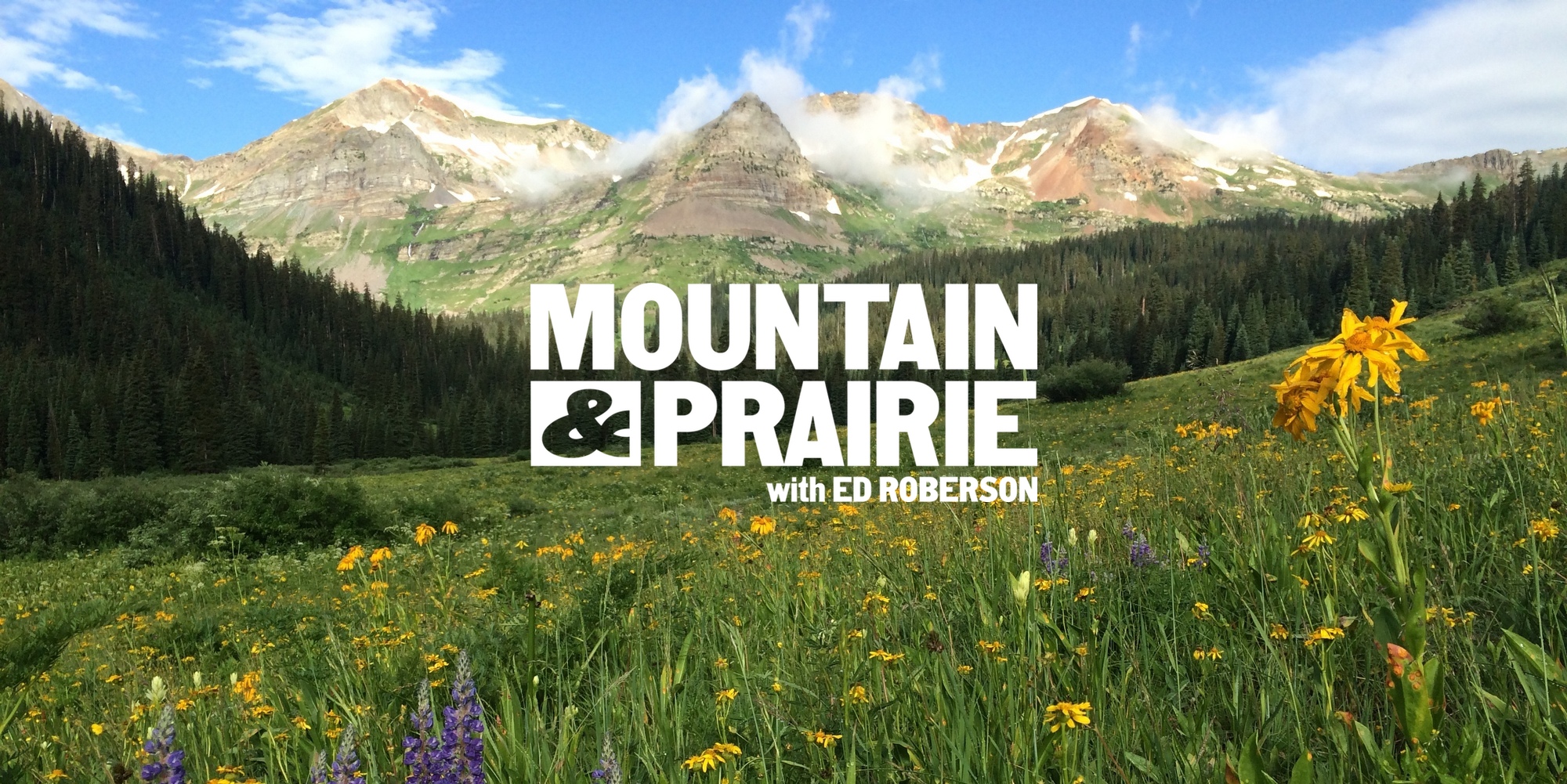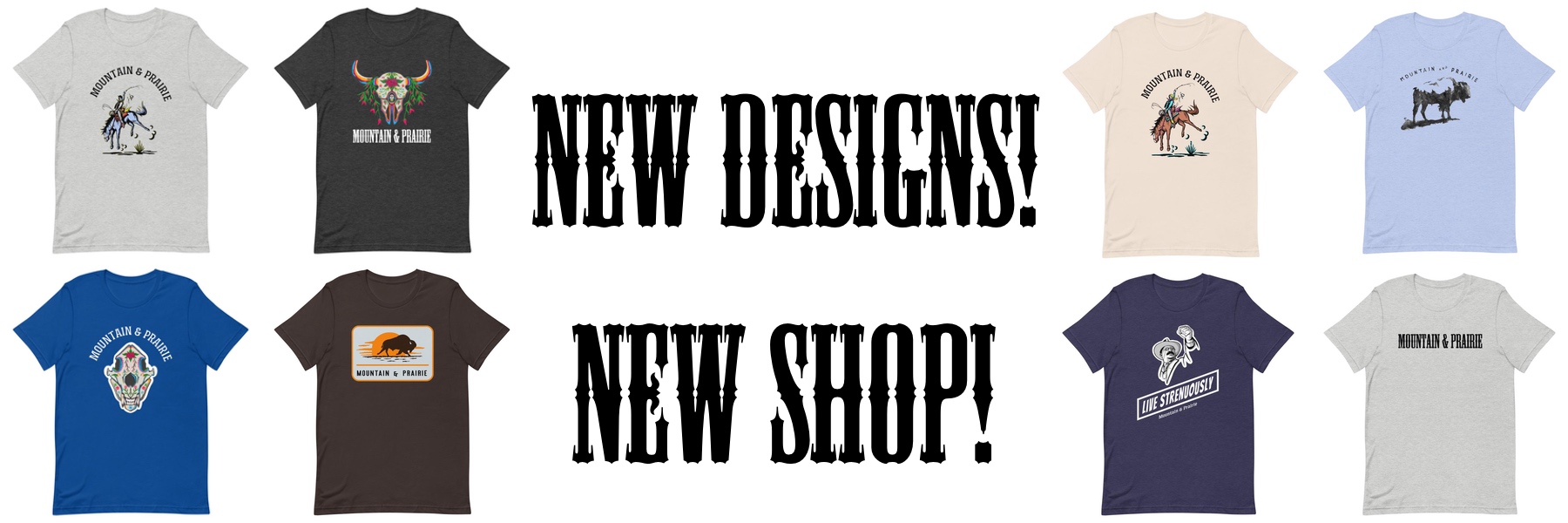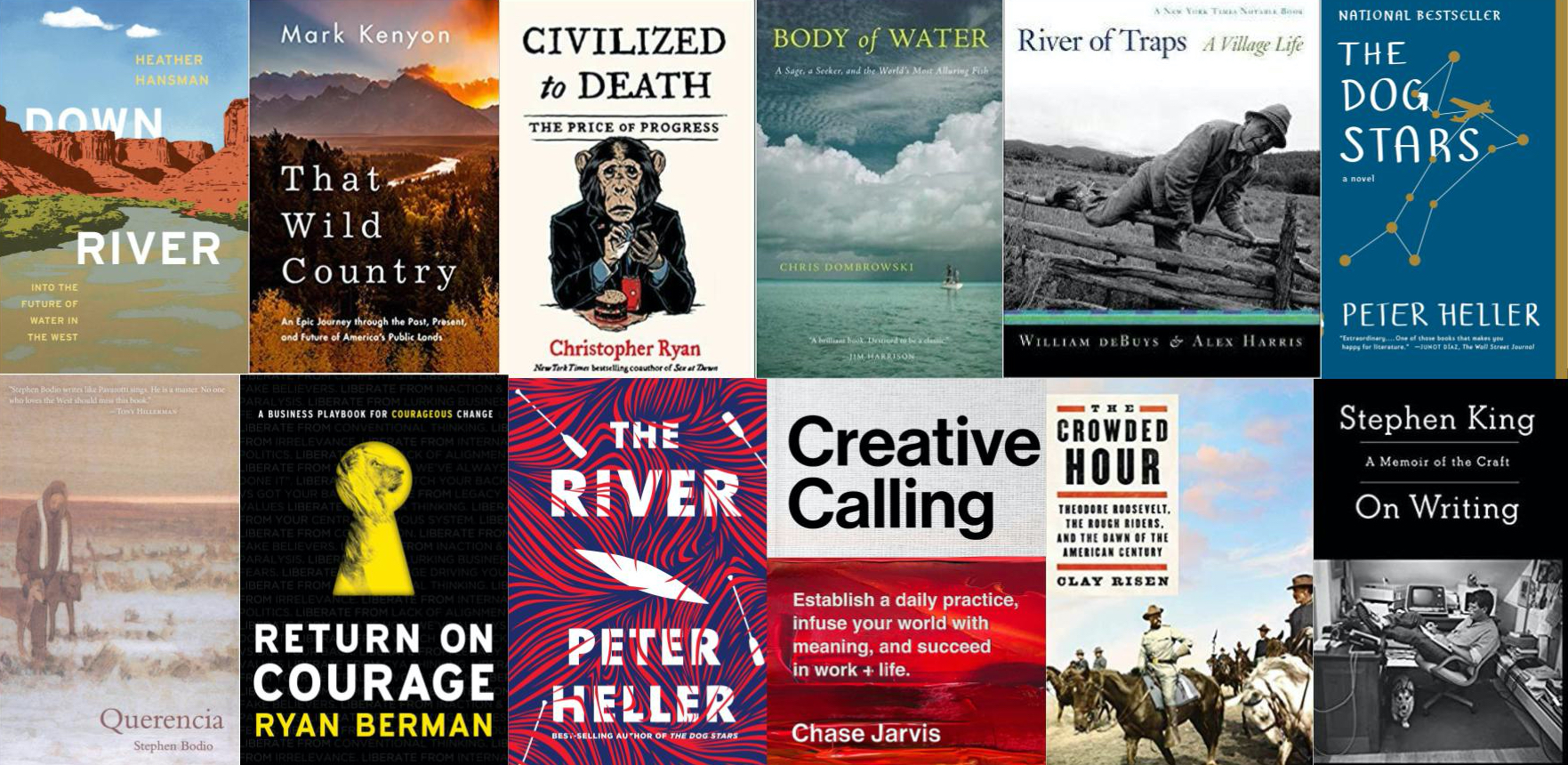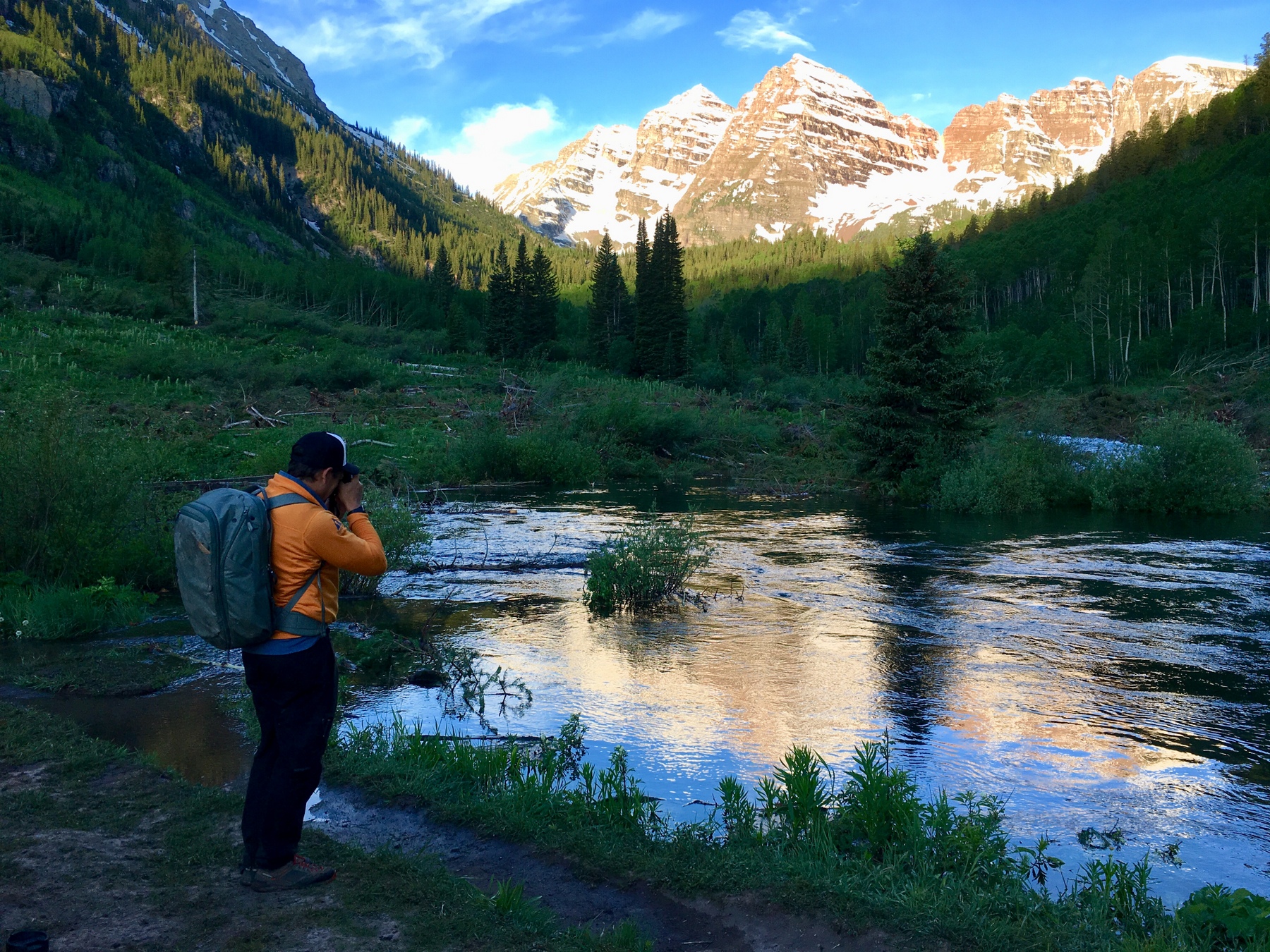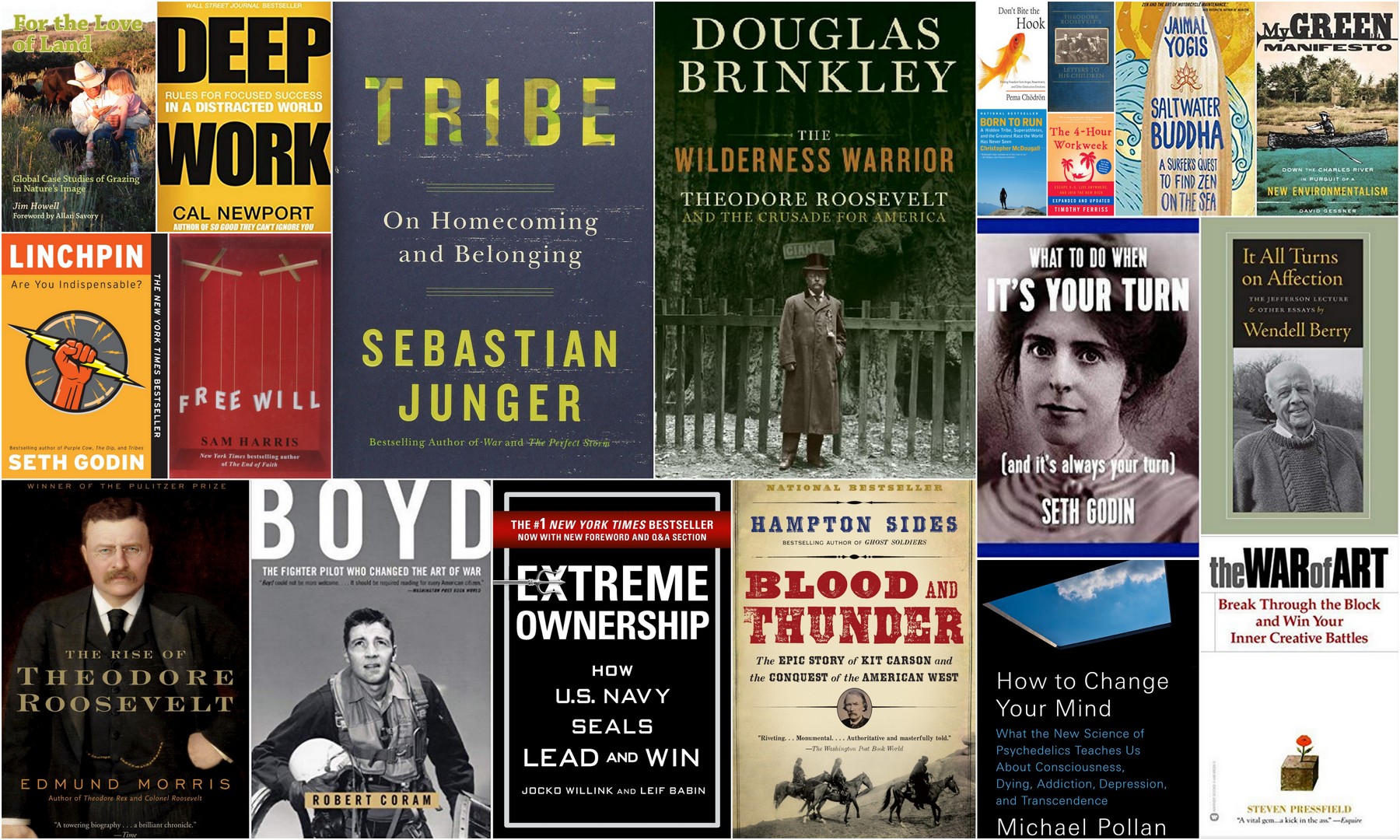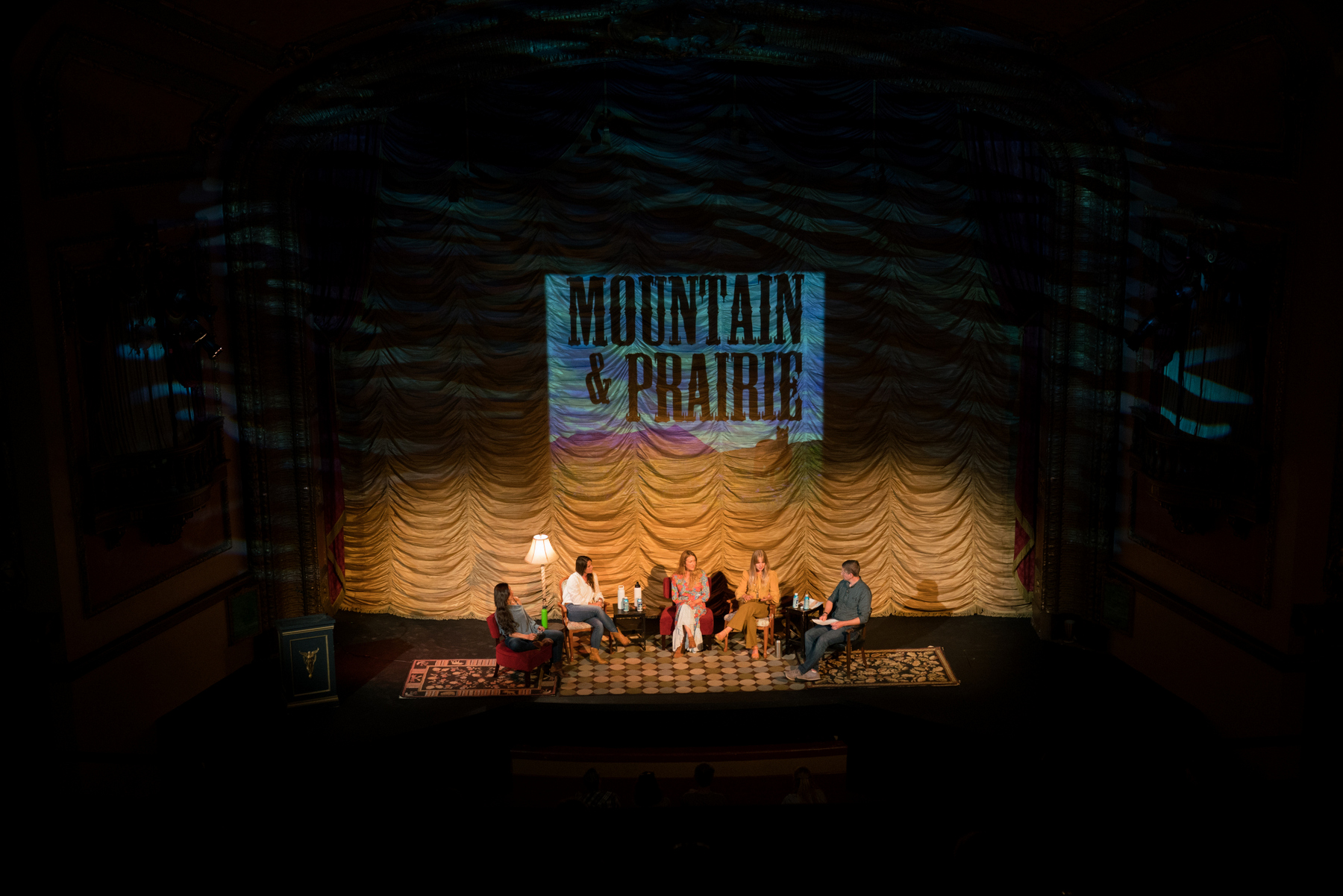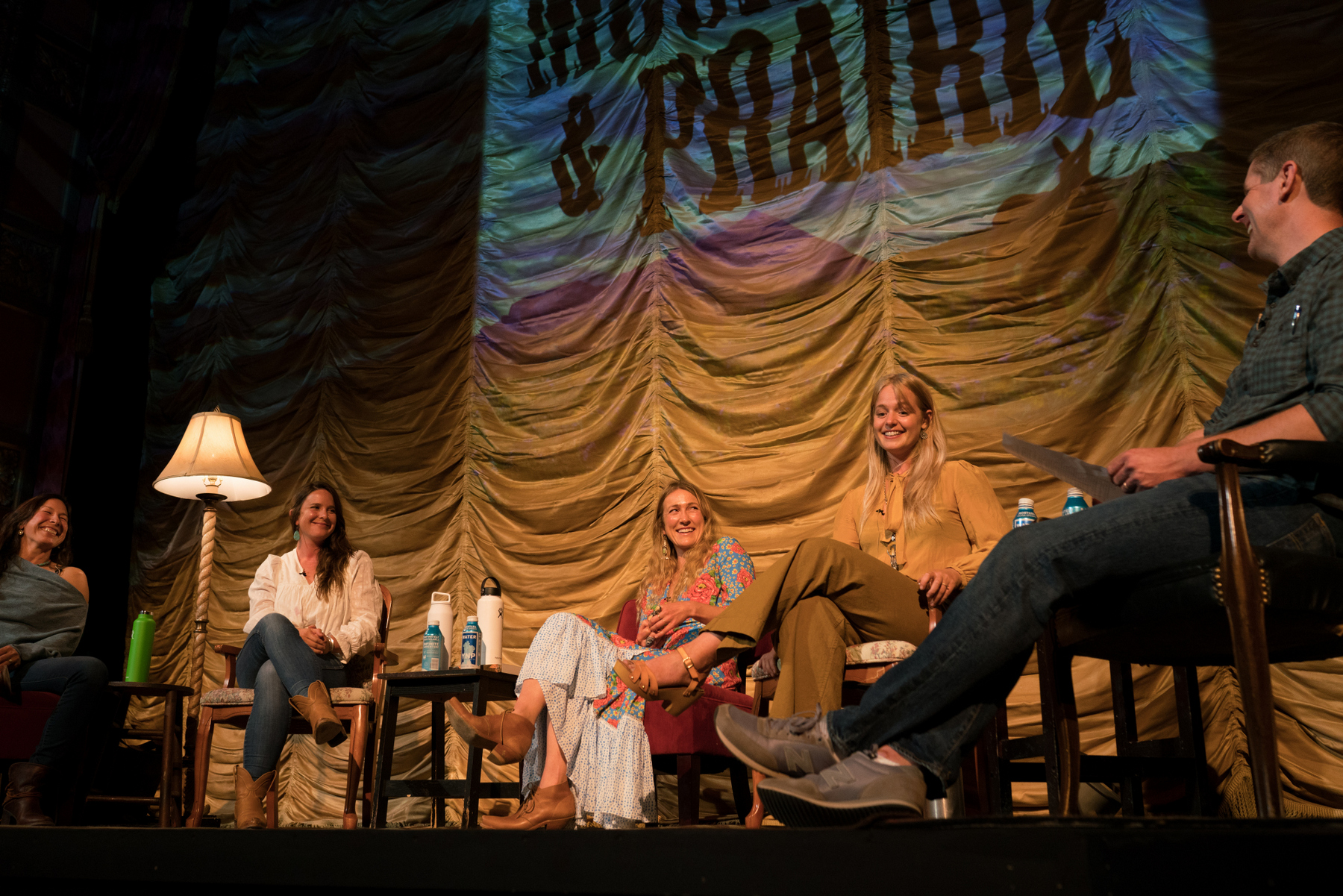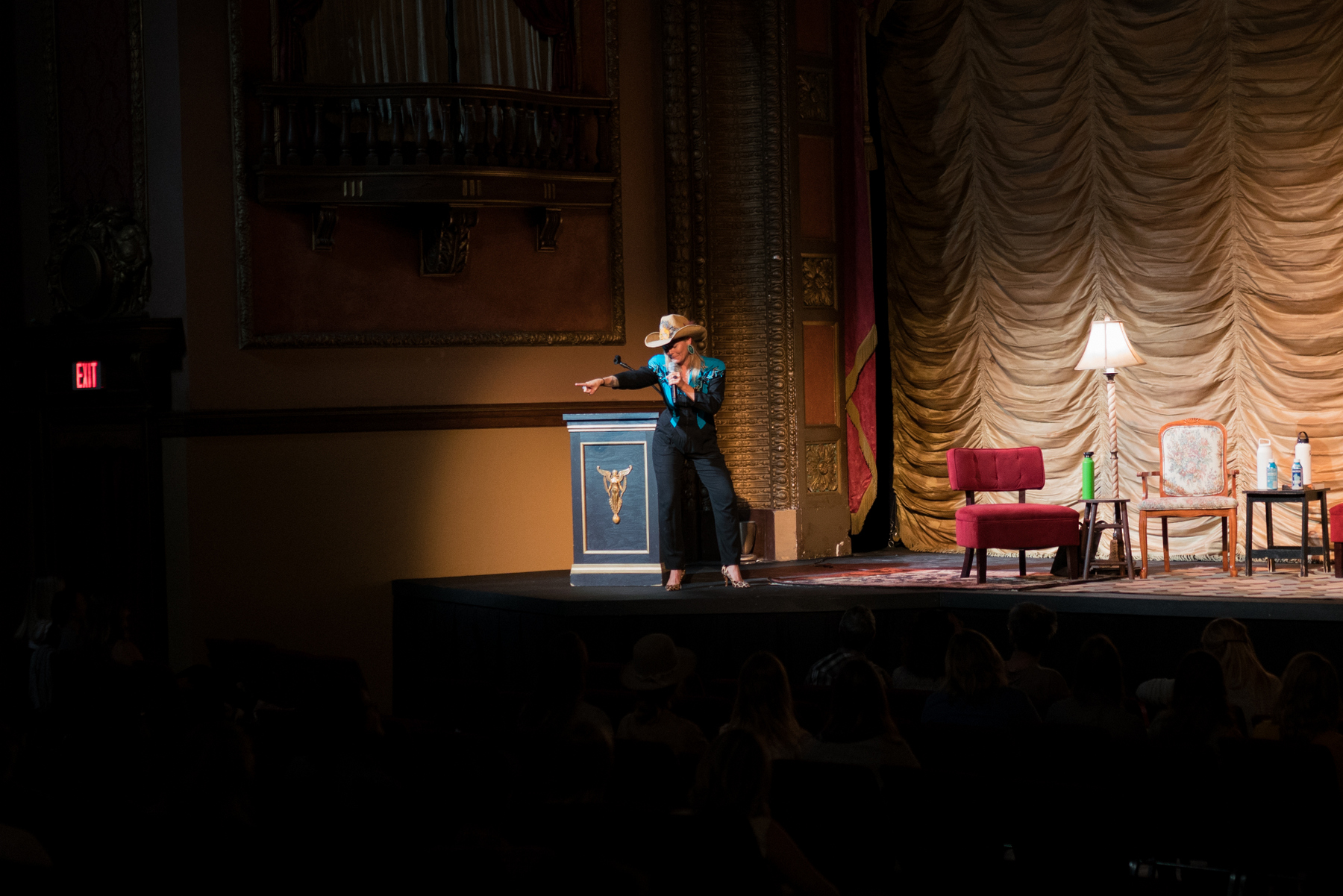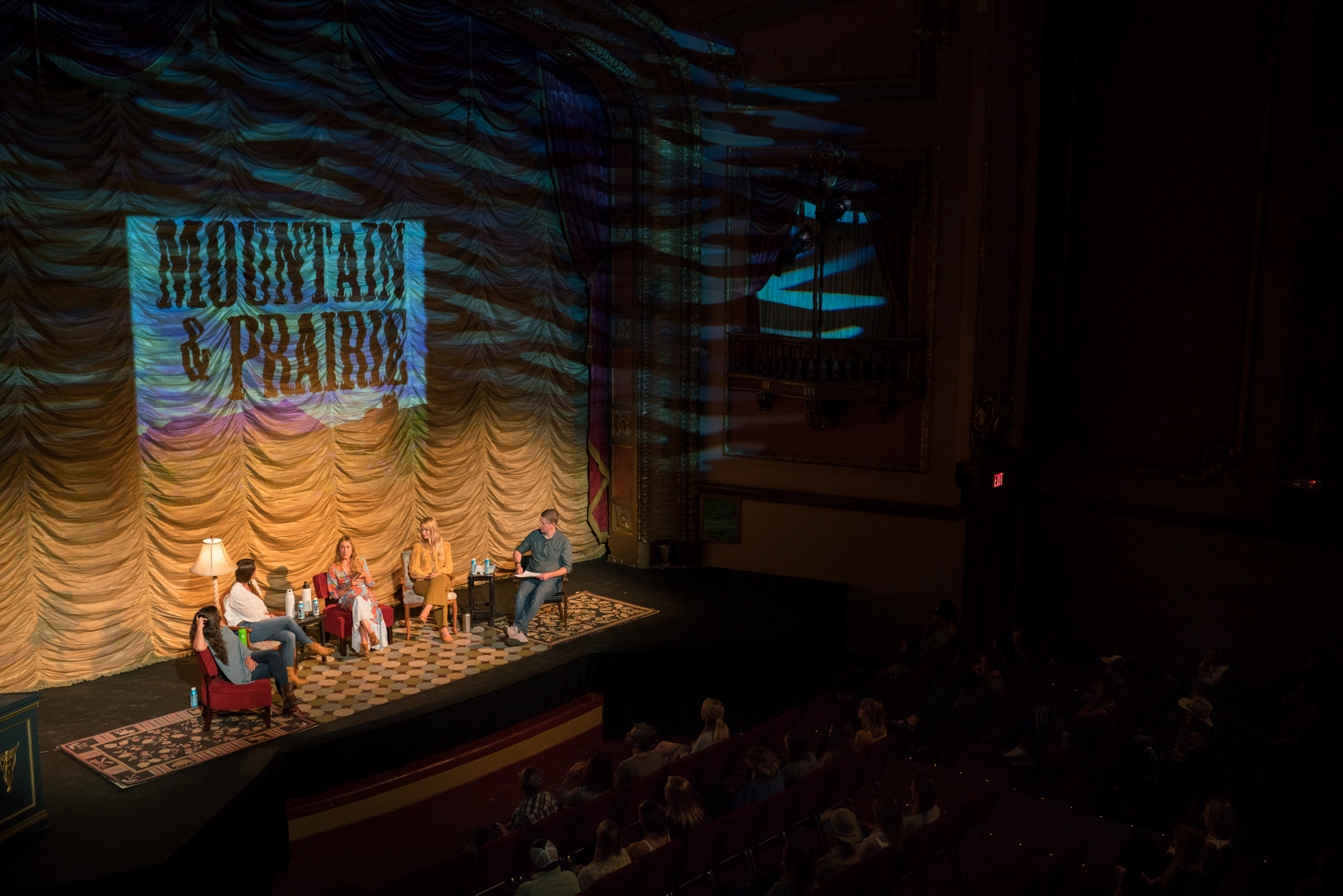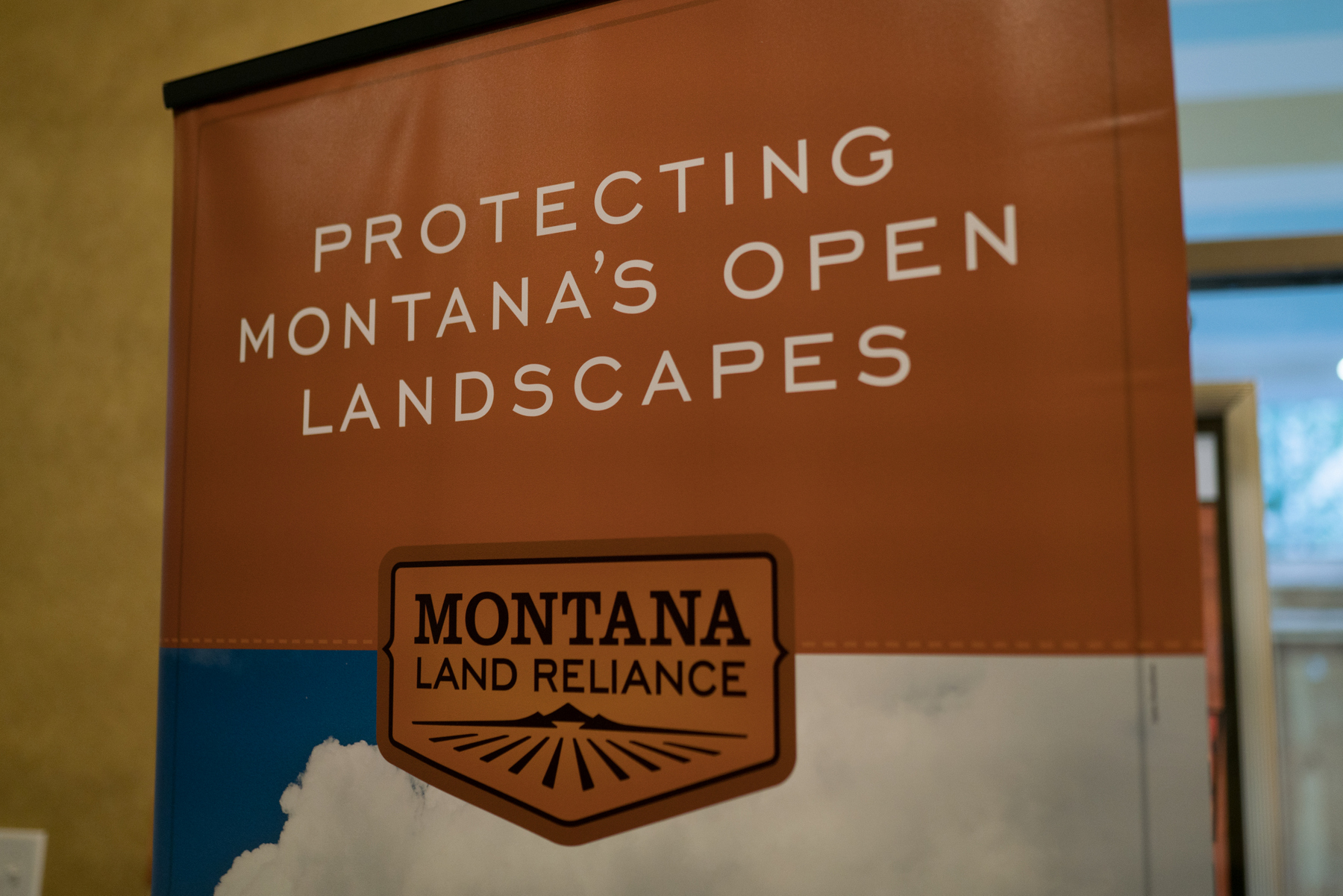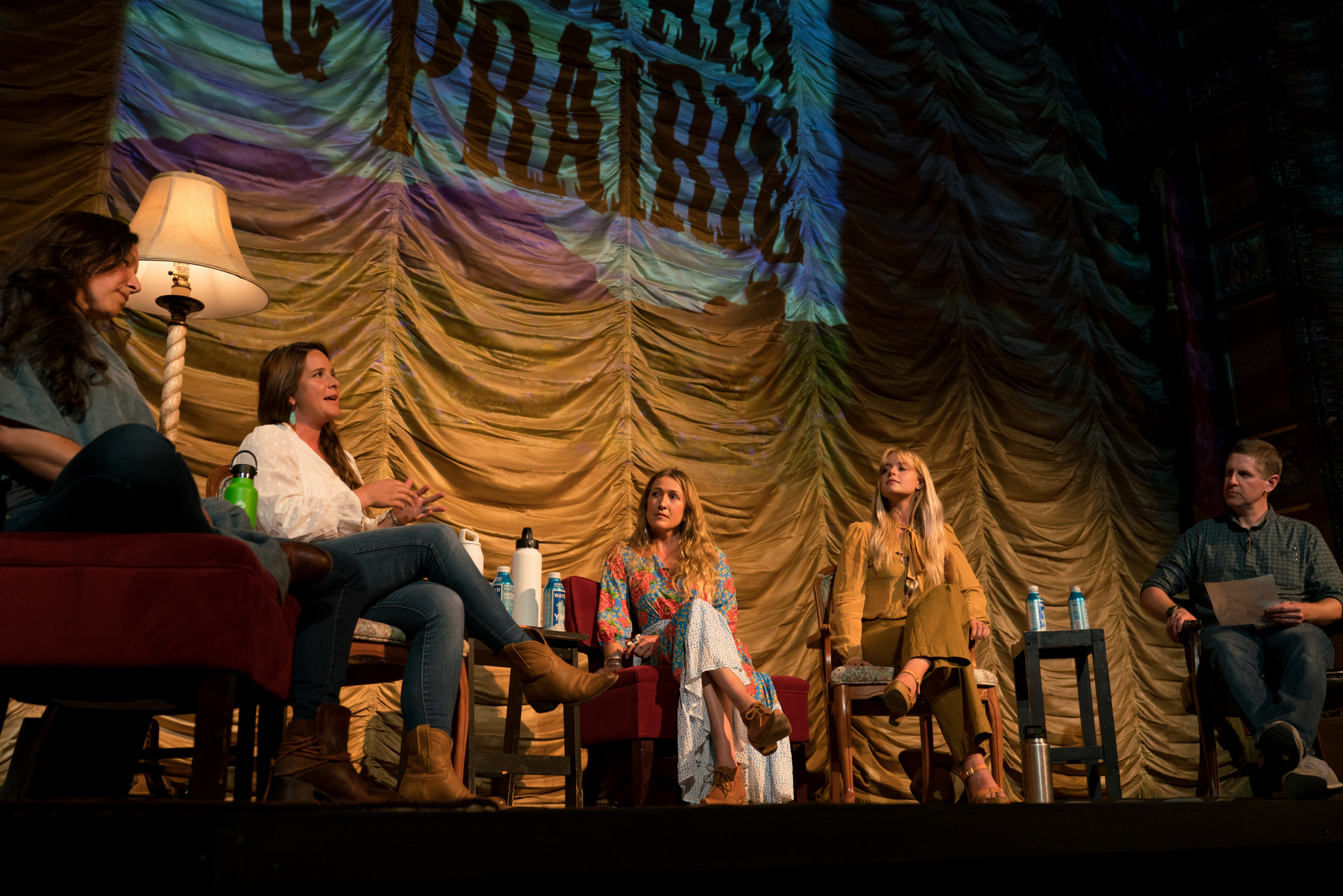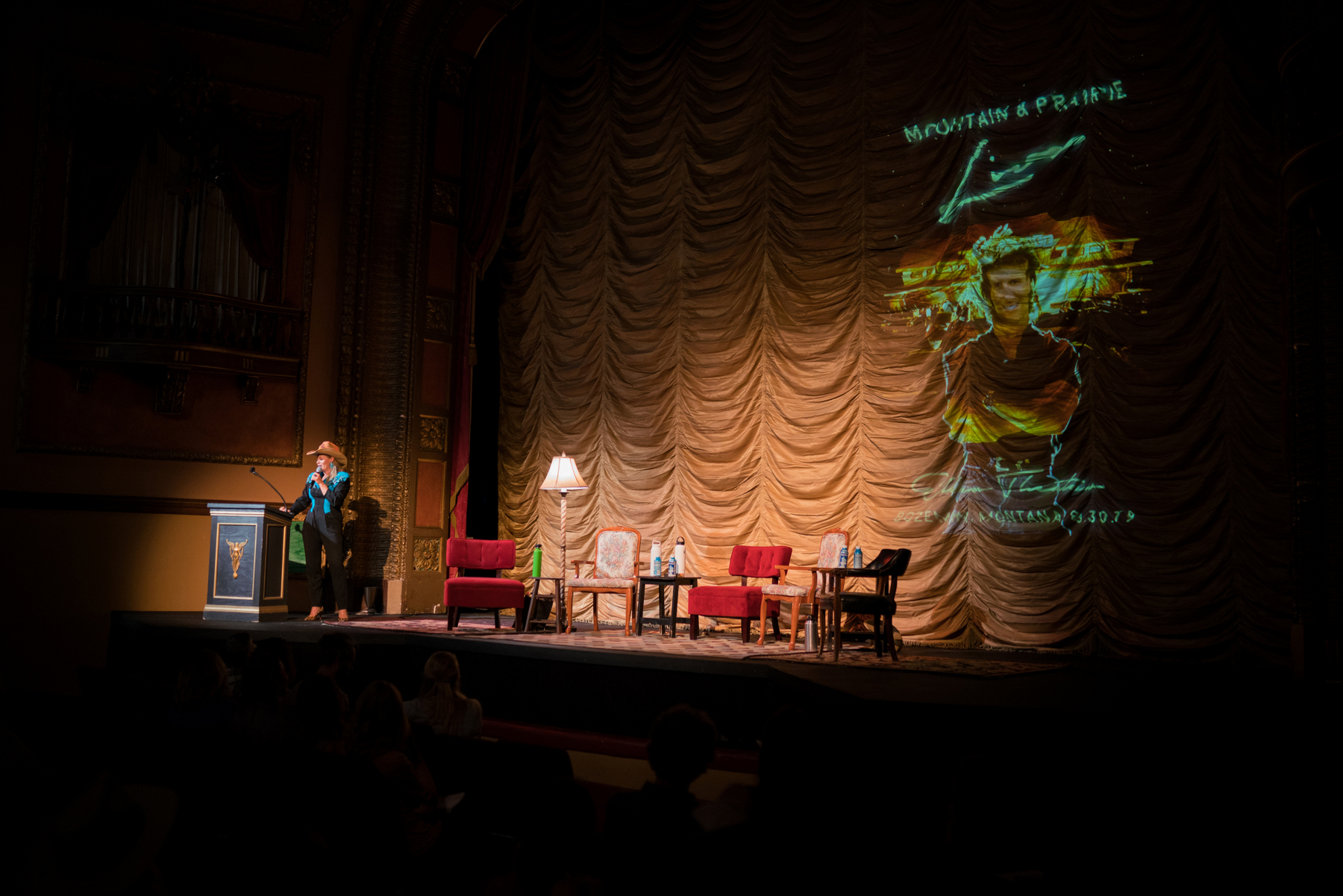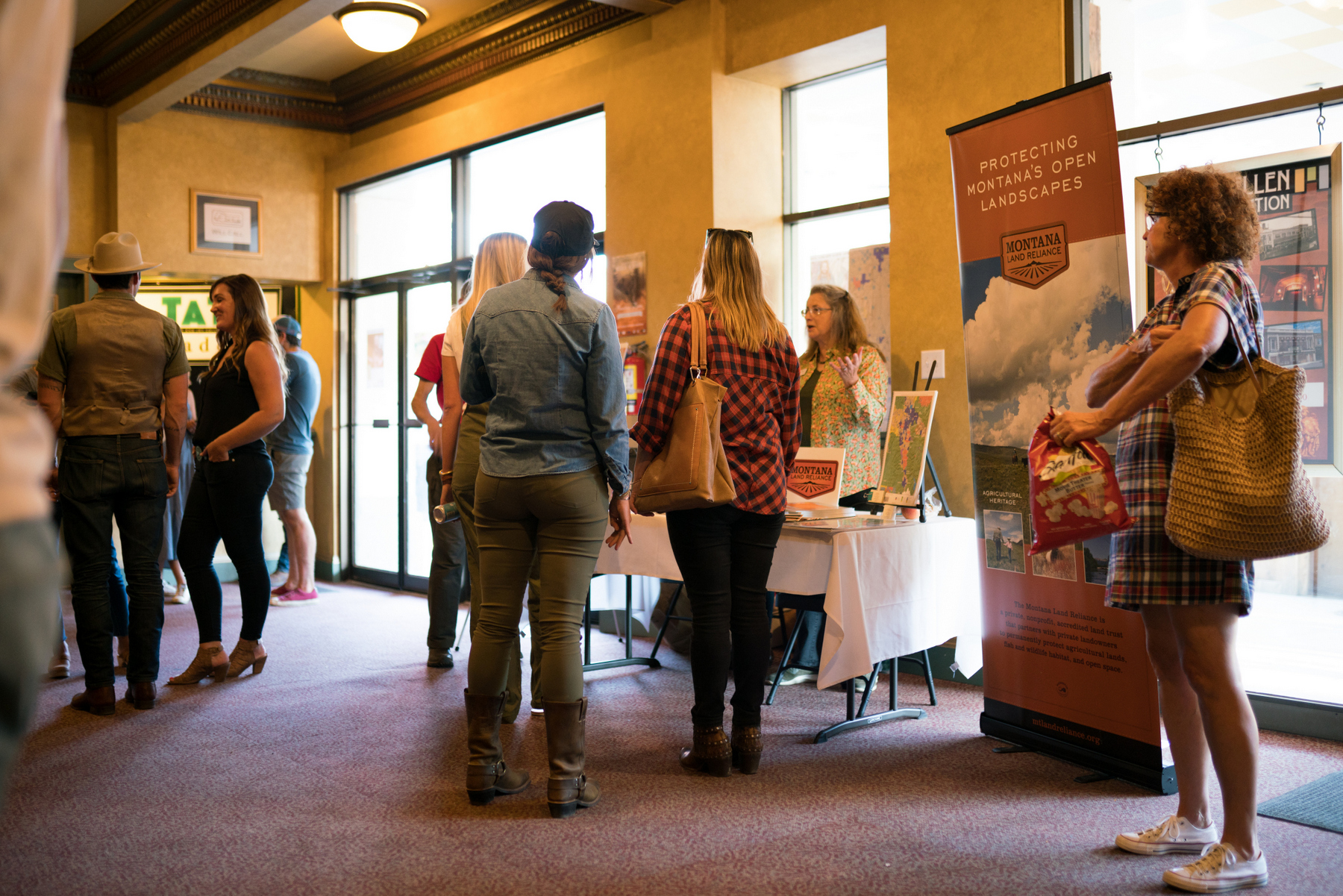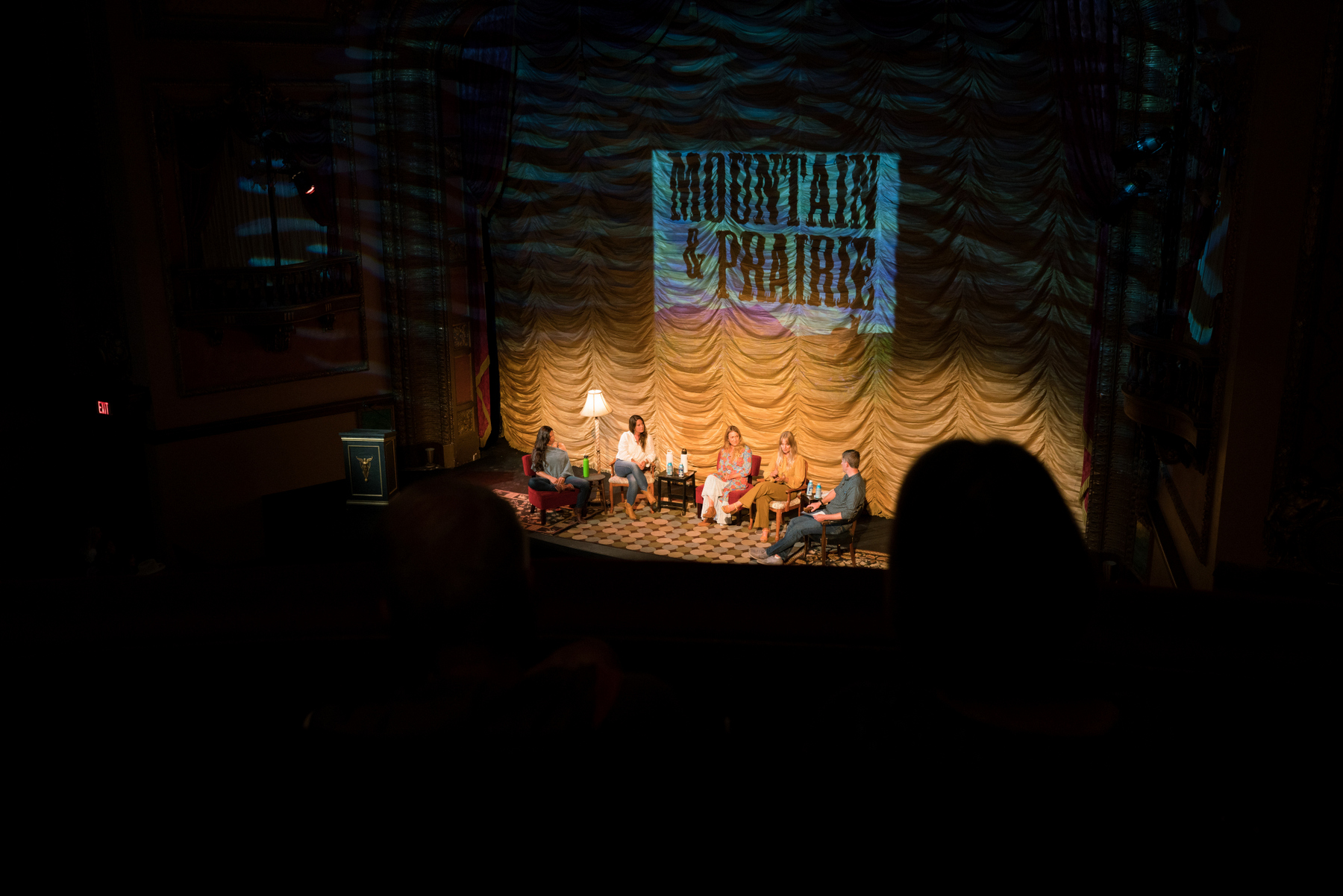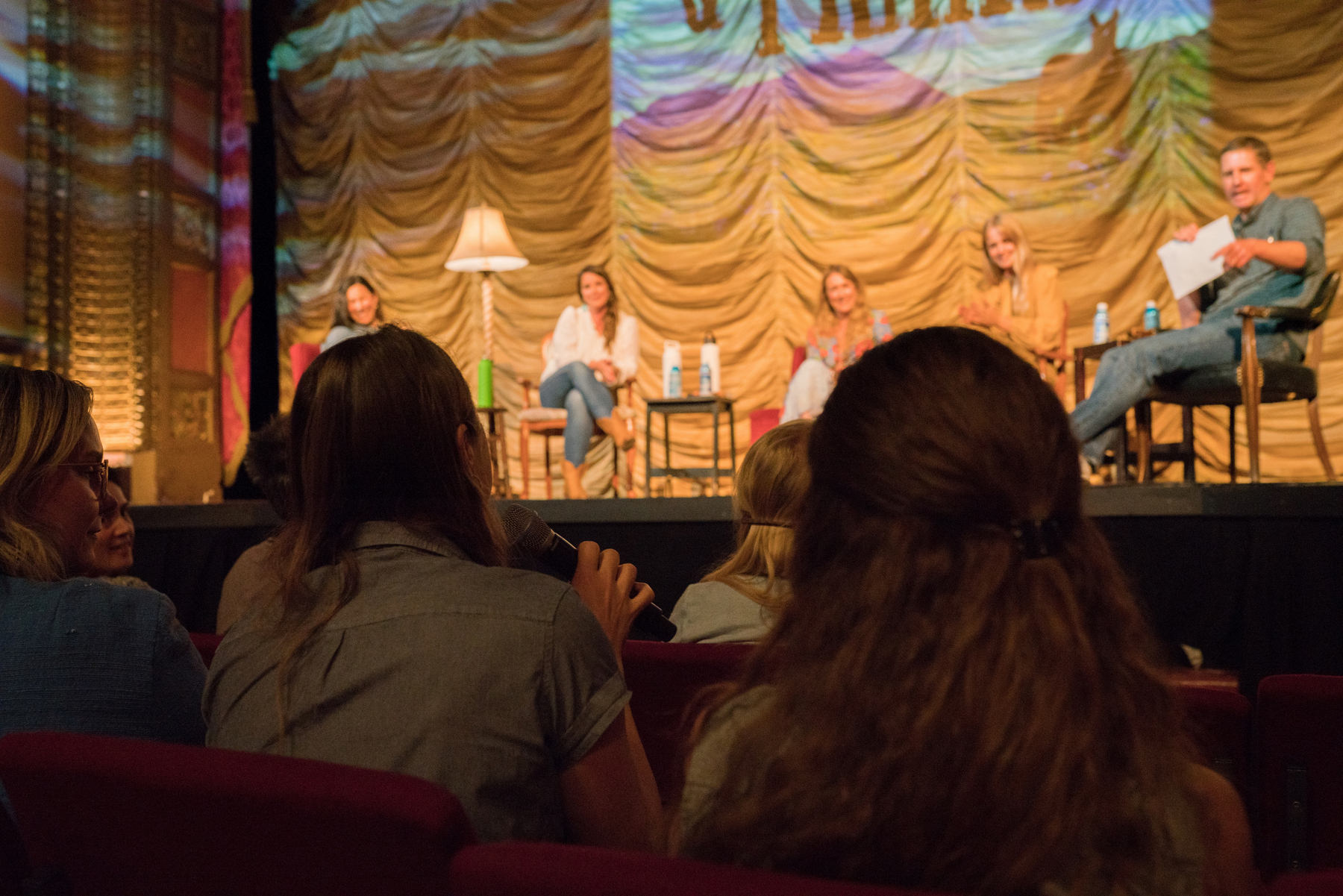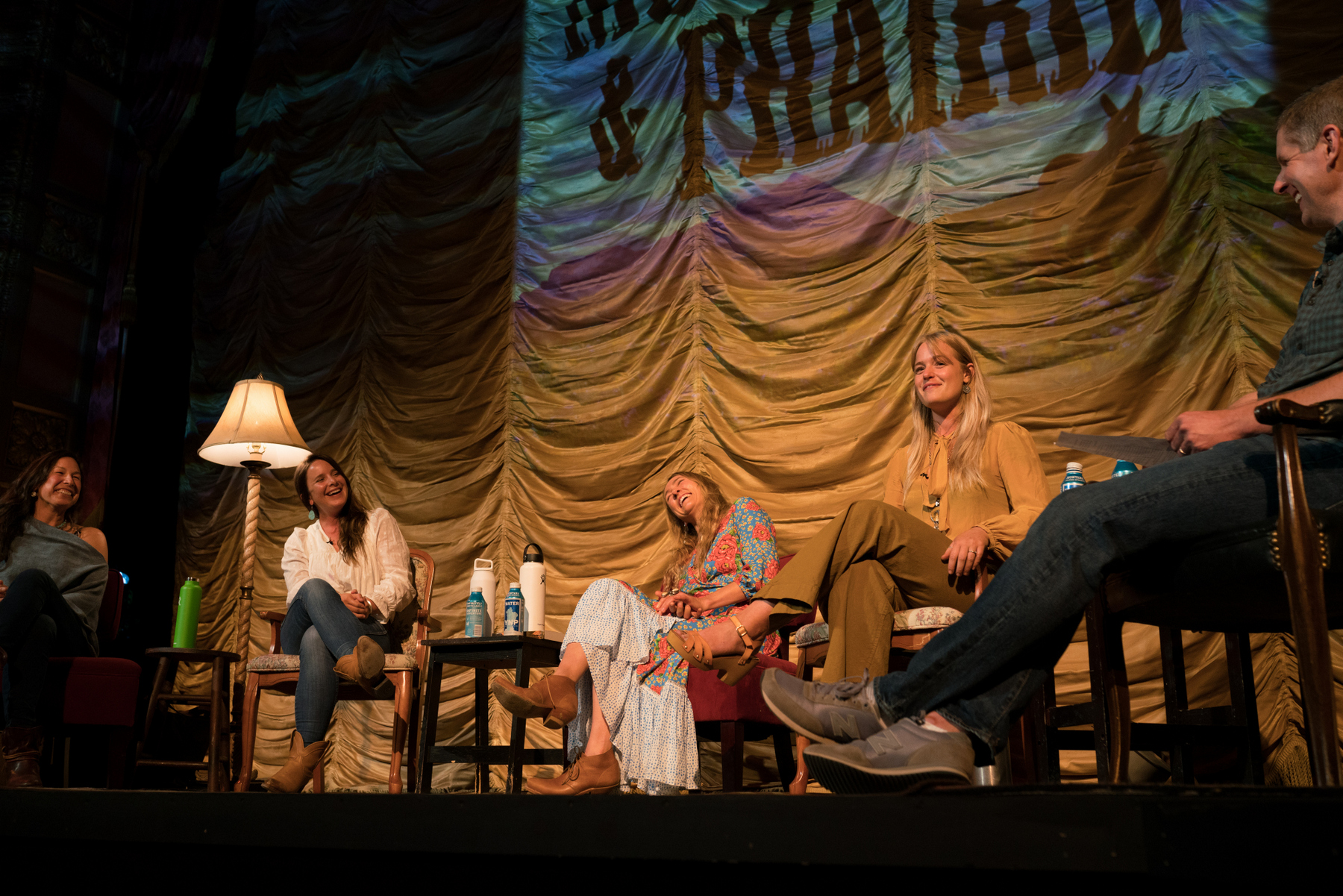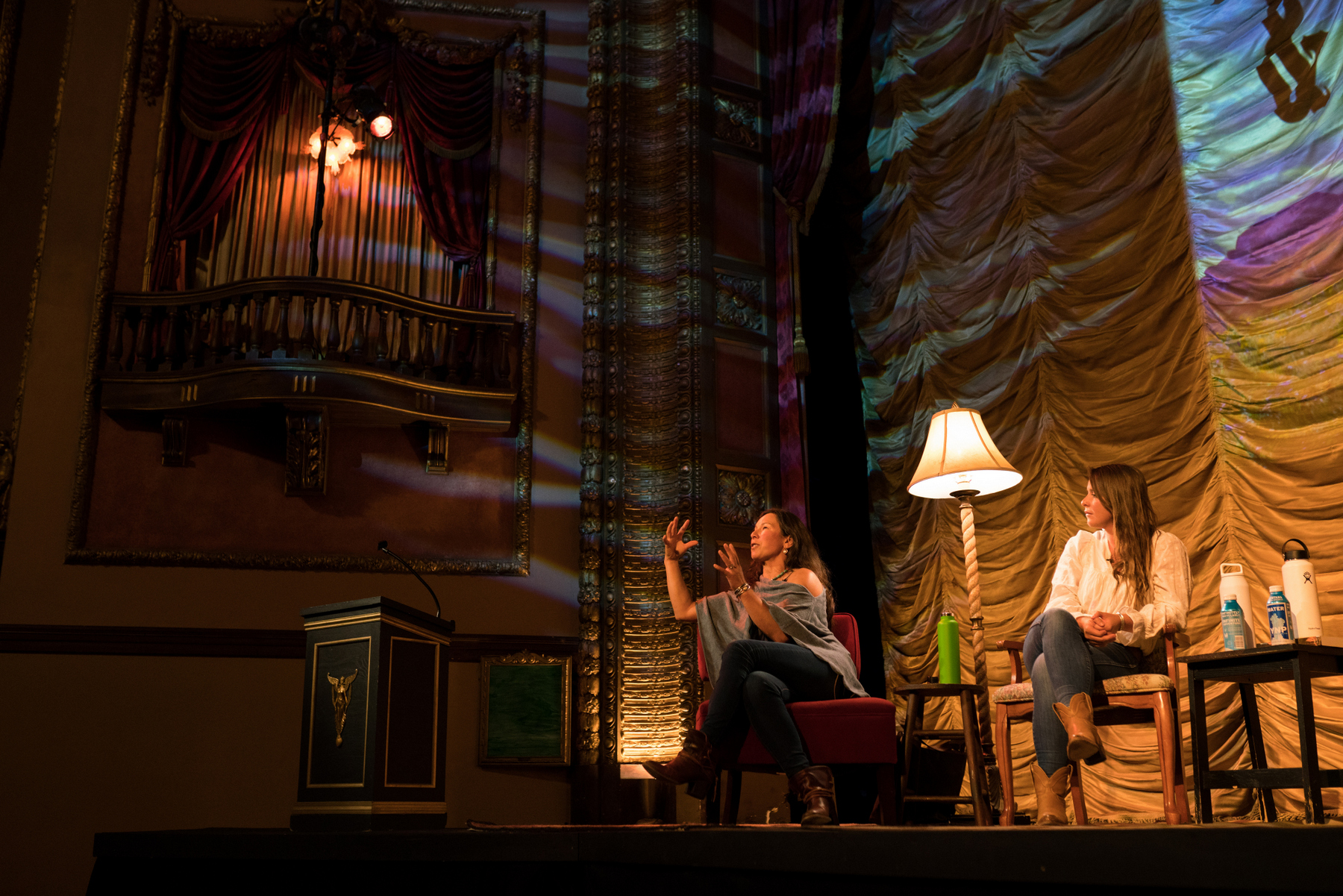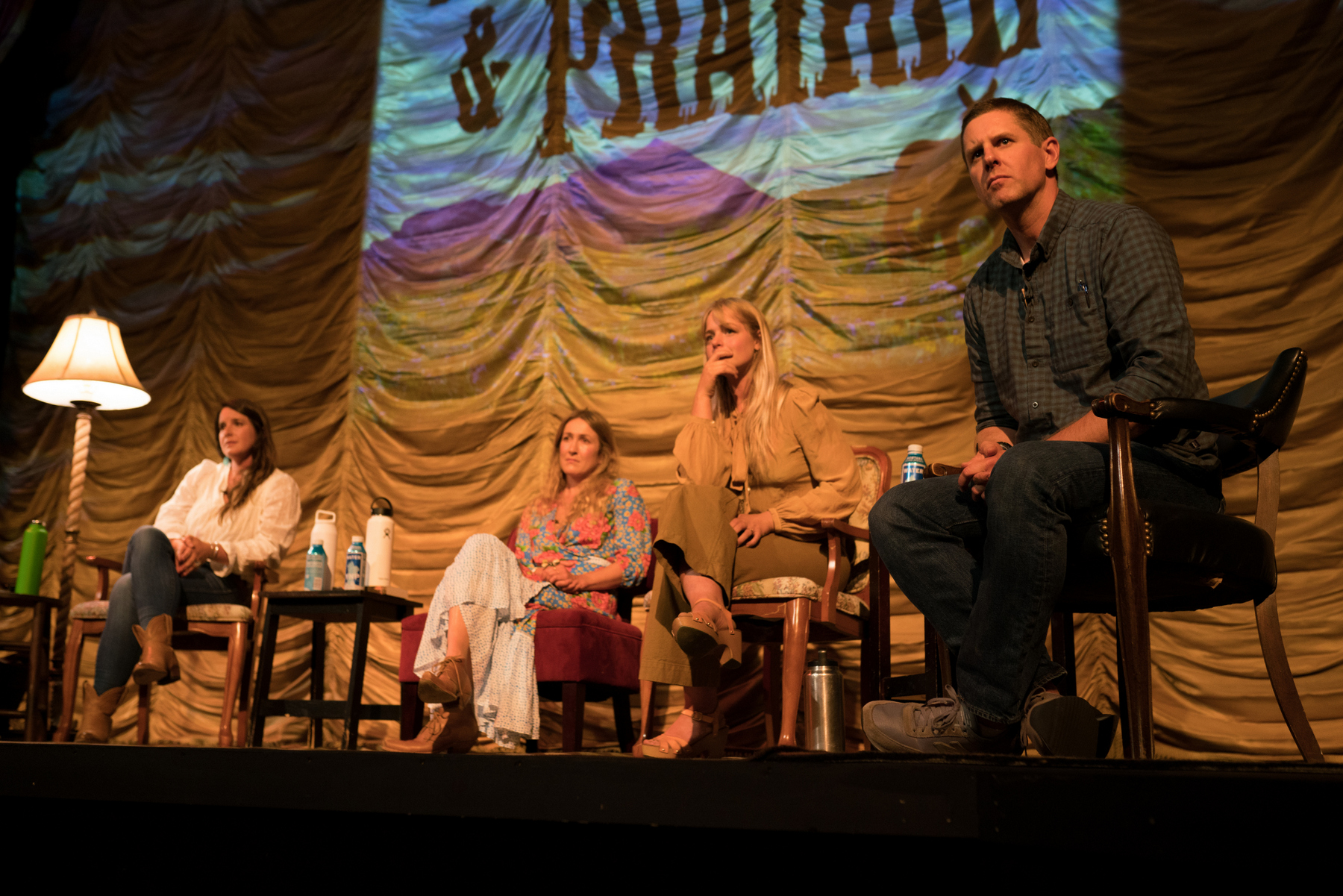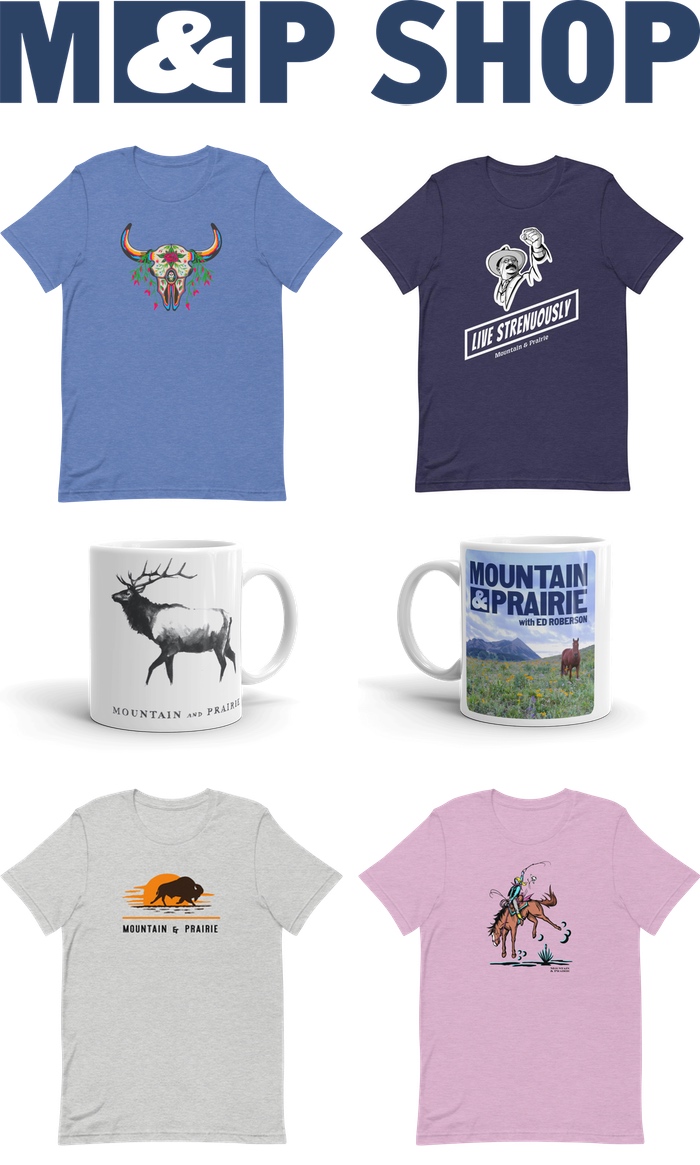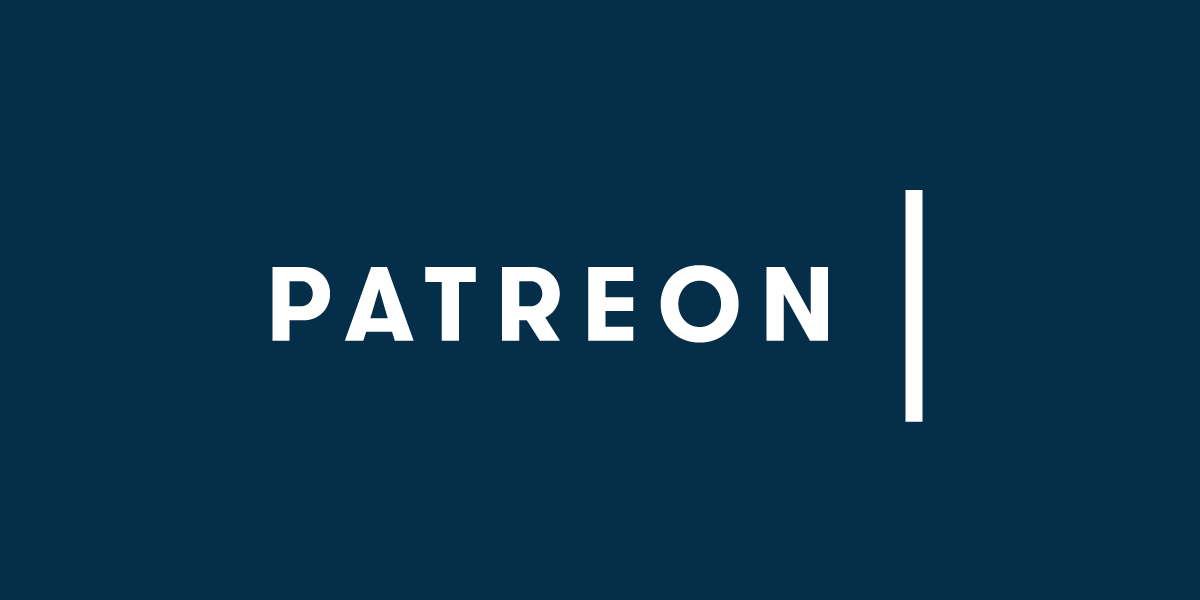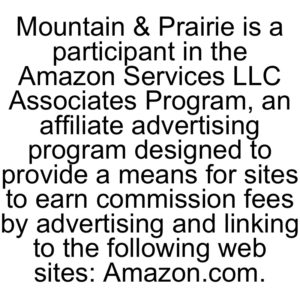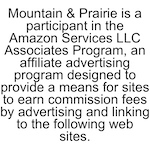Rachel VandeVoort – Harnessing the Power of Outdoor Recreation
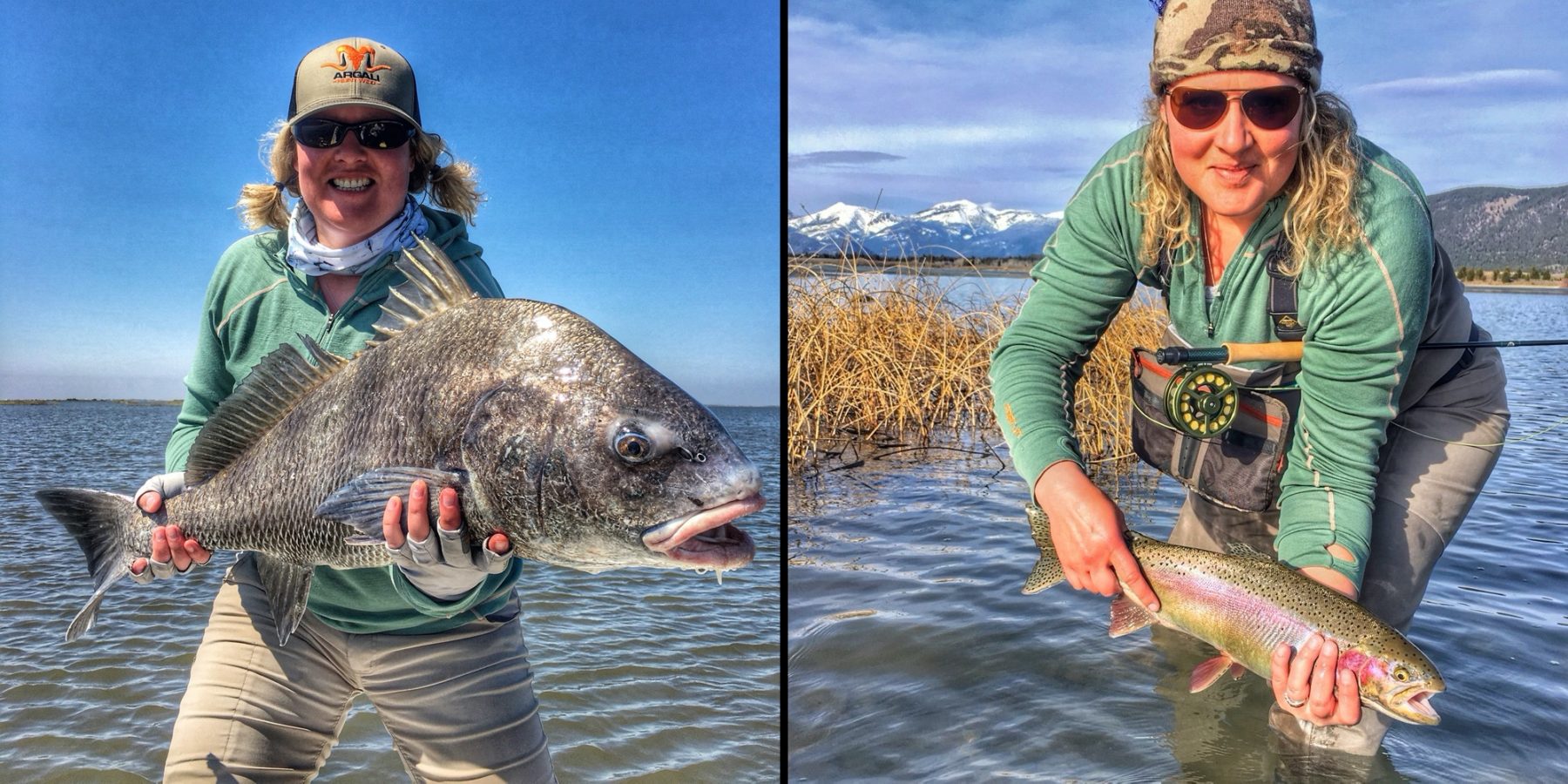
Rachel VandeVoort is the Director of the Montana Office of Outdoor Recreation, an office that advocates for the outdoor recreation industry and works to leverage its numerous benefits to the state. The office was created in 2016 by Montana Governor Steve Bullock, and he tapped Rachel to be its first director, where she built the office from the ground up. Since then, the office has experienced amazing growth in influence and effectiveness, and it has served as a shining example for other states that have formed similar offices.
A native Montanan, Rachel has a diverse background that makes her uniquely qualified for her role as Director. She grew up working for her family’s river guiding business in and around Whitefish, MT and also spent time as a fishing guide. After graduating from the University of Montana, she worked in a wide variety of industries that are closely connected with land and recreation, including organic farming, skiing, and firearms manufacturing. Thanks to her diverse and deep experience in all facets of the outdoor world, Rachel has had great success finding common ground between sometimes-competing stakeholders to harness the collective power of Montana’s recreation industry.
Rachel was slated to be a keynote speaker at Colorado Parks and Wildlife’s Partners in the Outdoors Conference, an annual gathering that brings together stakeholders from all corners of the conservation and outdoor recreation industries. But because of the COVID pandemic, the in-person conference was transformed into a virtual conference—and Rachel’s keynote speech was transformed into this episode of Mountain & Prairie. I was thrilled to have the chance to speak with Rachel because her work aligns so well with the theme of the Partners in the Outdoors Conference, specifically, how do we find common ground and mutually beneficial solutions for balancing conservation and recreation.
We covered a lot in a little over an hour, including the history of her job and the office, the staggering positive economic impacts of the outdoor industry, and ideas around funding conservation through recreation now and into the future. We also talked a lot about Rachel’s eclectic background and how all of her varied experiences make her uniquely qualified for her position. Rachel shares some thoughts on finding common ground among competing stakeholders, the importance of understanding history in the West, and the collaborative nature of the outdoor recreation industry. Be sure the check out the episode notes for a full list of topics discussed.
Big thanks to Rachel for taking the time to chat and to Colorado Parks and Wildlife for partnering with Mountain & Prairie for this series of podcasts. If you have a chance, visit the Partners in the Outdoors website all of the conference content—there’s quite a line up of virtual courses and learning opportunities. But in the meantime, enjoy this educational episode with Rachel VandeVoort.
Photos courtesy of Rachel VandeVoort
Download on Apple Podcasts
—
Download on Spotify
—
Download on Google Podcasts
—
Download on Stitcher
—
EPISODE NOTES
Topics Discussed:
- 3:45 – Montana Office of Outdoor Recreation explained
- 7:45 – Massive economic impacts of outdoor recreation
- 10:00 – Economic impacts in Montana specifically
- 11:30 – Process of creating the office for Montana
- 12:45 – Outdoor infrastructure in Montana
- 15:15 – The positivity of the recreational economy
- 17:45 – Learning from other states’ outdoor rec offices
- 18:45 – How Montana’s rec office differs from Colorado’s
- 20:45 – Rachel’s eclectic background
- 22:45 – Desire to stay in Montana
- 26:00 – First job in organic food
- 29:30 – Starting her job in the firearms industry
- 34:00 – Communication lessons learned from a childhood in recreation
- 37:15 – Techniques for finding common ground between competing stakeholders
- 39:45 – The false premise of “consumptive” vs “non-consumptive” recreation
- 46:45 – Thoughts on Pittman-Robertson, Dingell-Johnson, and the future of conservation funding
- 54:45 – Collaboration between outdoor rec stakeholders
- 59:35 – Favorite books
- 1:01:00 – Favorite films
- 1:02:45 – Rachel’s family history in Montana
- 1:03:45 – Parting words of wisdom
Information Referenced:
- Montana Office Outdoor Recreation
- Colorado Parks and Wildlife
- Partners in the Outdoors Conference
- Governor Steve Bullock
- Statewide Comprehensive Outdoor Recreation Plan
- Wild and Scenic Flathead River
- University of Montana
- Whitefish Mountain Resort
- Kimber Manufacturing
- Hal Herring podcast episode
- Theodore Roosevelt
- Gifford Pinchot
- Pittman Robertson Act
- Sierra Club
- North American Model of Conservation
- Mark Kenyon episode
- That Wild Country by Mark Kenyon
- Self Reliance by Ralph Waldo Emerson
- The Big Burn by Timothy Egan
- A River Runs Through It
Enjoy this episode? Then you might like these as well:
- Dan Prenzlow – Generous Service, Humble Leadership
- Rebecca Jewett, Part 2 – Conservation’s Role During Challenging Times
- Daniela Ibarra-Howell – Healing the Land Holistically
- Kate Kavanaugh – Regeneration & Restoration
- Alexis Bonogofsky – Taking a Stand for the West
- Sara Dant – A Deep Dive Into the History of the West
- Juanita Vero – A Deep Love of Place
Chris Burkard – The Art of Suffering
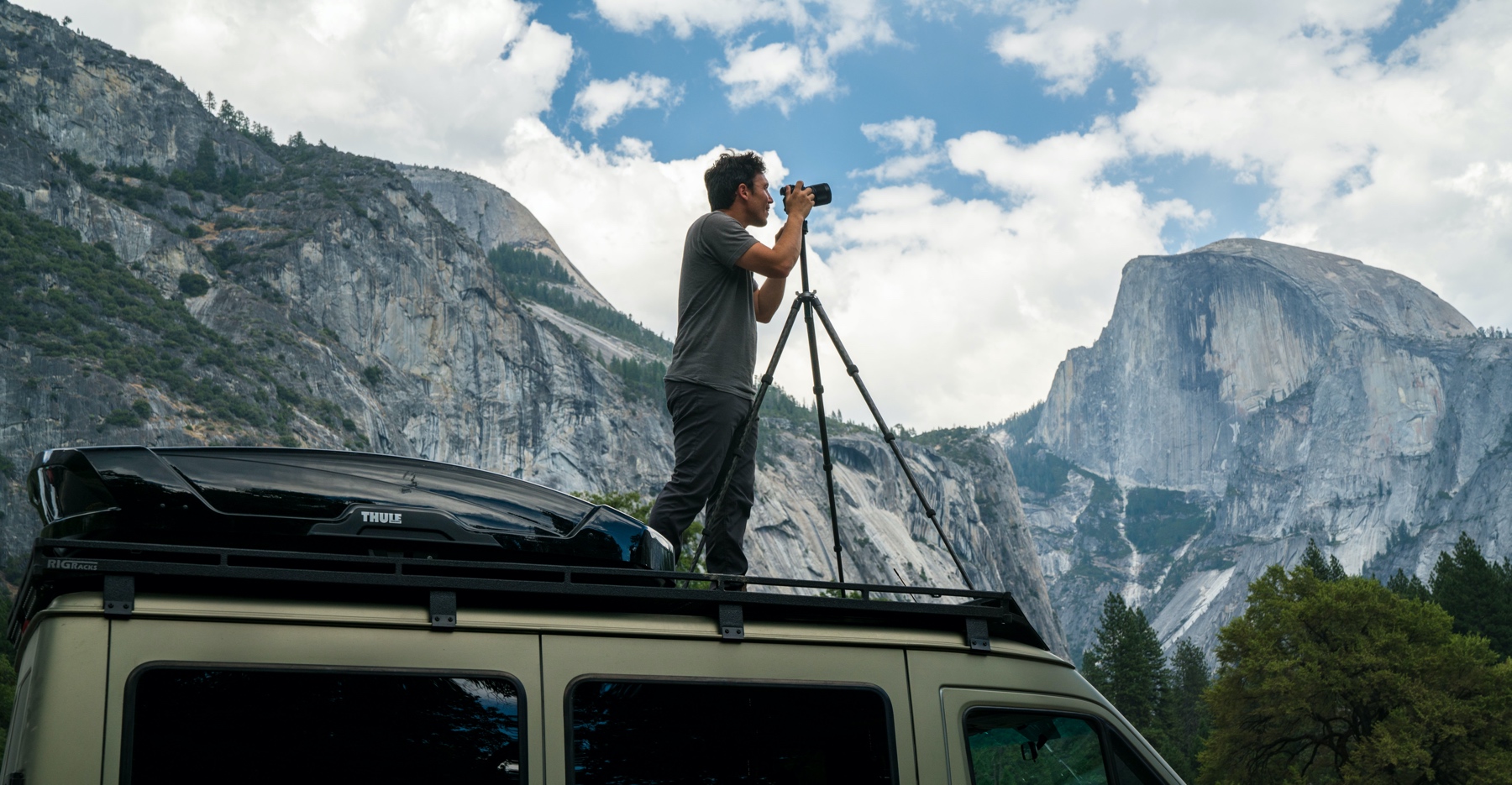
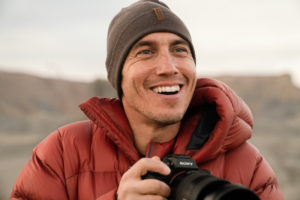
Chris Burkard is a world-renowned photographer, filmmaker, and storyteller whose work captures the beauty and rawness of some of the earth’s wildest places. Whether documenting iconic climbs in Yosemite or frigid surf trips deep in the Arctic Circle, Chris has established himself as a committed artist who is willing to suffer extensively to get the perfect shot. And because of his love and respect for these wild places, Chris is also a committed conservationist, using his artistic skills to showcase the importance of endangered places and effect positive policy changes.
Born and raised on the Central Coast of California, Chris spent much of his youth exploring the mountains and coastline of his home state. During high school, he fell in love with photography and eventually left college to pursue it as a full-time career. After several years of working to establish himself in the business, Chris’s commitment and hard work paid off—he’s now one of the most sought after photographers for a wide range of clients, from corporations like Apple to independent publications such as Surfers Journal or Modern Huntsman. Chris’s career is a testament to the power of hard work, positivity, boundless energy, and laser-like focus.
I’ve been a fan of Chris’s for years, so it was a real pleasure to have the chance to chat with him. We both took a break from our respective quarantines and kid-wrangling duties to meet up via Skype for a fun and wide-ranging conversation. The specifics of Chris’s photography career have been documented extensively in audio and print, so I wanted to learn more about what makes Chris tick—why he chooses to suffer in dangerous environments, how he and his wife engrain grit in their two sons, and how he manages to muster positivity during tough times. We also talked a lot about his commitment to conservation, as well as his commitment to working with smaller, independent outdoor publications. And as usual, we discuss favorite books, places in the West, and Chris offers some timely words of wisdom. Links to everything are in the episode notes.
A huge thanks to Chris for taking the time to chat during such a crazy time. I hope you all enjoy this conversation—it’s a much-need burst of energy and optimism during this challenging time!
Photos courtesy of Chris Burkard
Download on Apple Podcasts
—
Download on Spotify
—
Download on Google Podcasts
—
Download on Stitcher
—
EPISODE NOTES
Topics Discussed:
- 3:30 – “Pain is a shortcut to mindfulness”
- 7:15 – The process of learning to appreciate pain
- 10:00 – Growing up in California
- 14:00- When photography entered Chris’s life
- 16:00 – Deciding to leave school to pursue photography
- 18:30 – Choosing to be positive
- 22:30 – Thoughts on cultivating grit in children
- 25:00 – Striving to live up to one’s full potential
- 27:15 – Outdoor adventure as a parenting tool
- 29:30 – Re-evaluating risk as a parent
- 36:00 – Training for mental stress
- 37:30- Ultra-endurance bike riding
- 42:00 – Meditation training
- 43:00 – Dealing with the stress of COVID-19
- 46:30 – Work in the conservation world
- 53:45 – Commitment to working with smaller outdoor publications
- 58:30 – Favorite books
- 1:02:30 – Favorite places in the West
- 1:04:45 – Parting words of wisdom
Information Referenced:
- Chris Burkard
- Chris on Instagram
- Chris’s books
- Chris’s TED talk
- SURFER Magazine
- Big Sur
- Yosemite
- Zion
- Grit by Angela Duckworth
- Under An Arctic Sky film
- Yvon Chouinard
- Surfers Journal
- Modern Huntsman
- Adventure Journal
- The Boy Who Spoke to the Earth by Chris Burkard
- The Emerald Mile by Kevin Fedarko
- Edward Abbey
- Essentialism by Greg McKeown
- Ansel Adam: An Autobiography by Ansel Adams
- Chris’s interview with Chase Jarvis
- Creative Calling by Chase Jarvis
- Bears Ears
- Valley of the Gods
- Canyonlands
- Paul Nicklen
Enjoy this episode? Then you might like these as well:
- Pete McBride – A Passion for Water & Wild Places
- Hampton Sides – Live at the Aspen Institute
- Brendan Leonard – Grinding It Out
- Jessica Lewis – Doing More With Less
- Heather Hansman – Demystifying Water in the West
- Peter Heller – Chasing the Flow
Dan Prenzlow – Generous Service, Humble Leadership
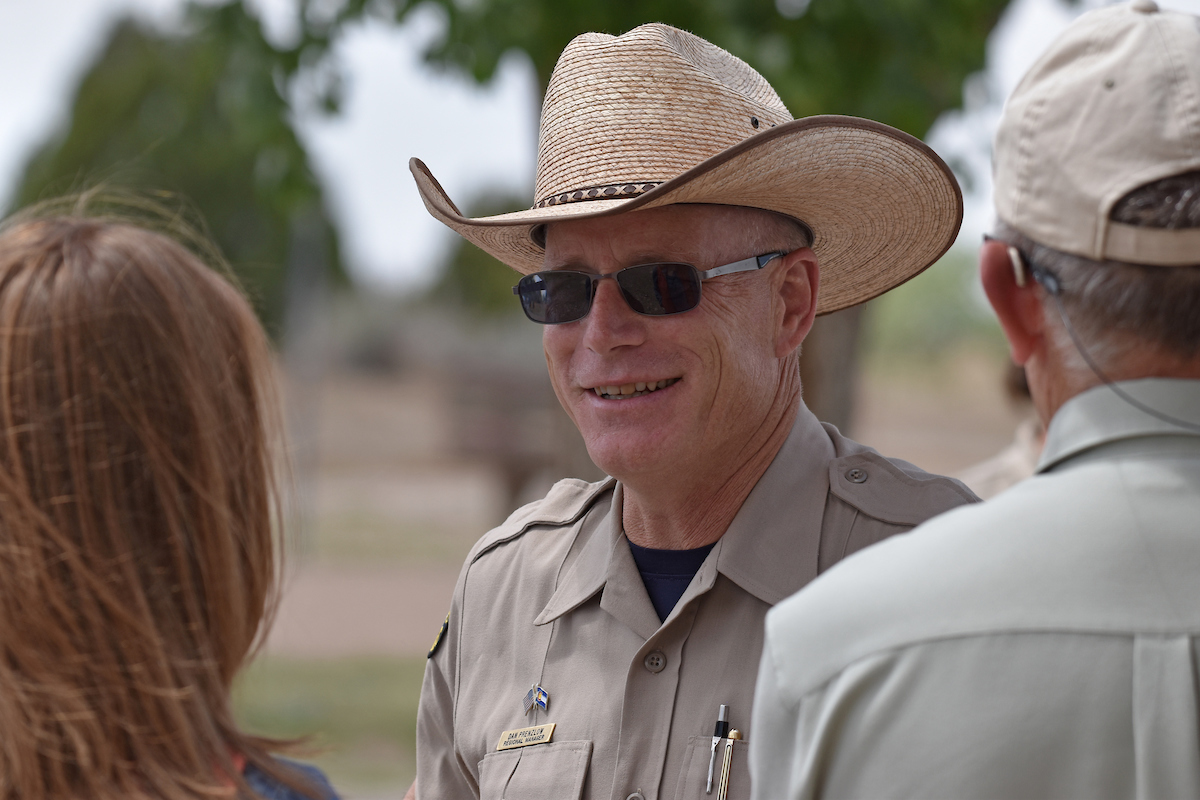
Dan Prenzlow is the Director of Colorado Parks and Wildlife (CPW), the agency charged with managing wildlife, lands, natural resources, and outdoor recreation throughout the great state of Colorado. Dan started with the agency back in 1986 as a District Wildlife Manager and steadily worked his way through the ranks, assuming the role of Director in the spring of 2019. Born and raised in Colorado, Dan has had a lifelong love of recreating in the state’s open spaces and wild places, and he has devoted his entire career toward protecting and managing them for the benefit of present and future generations.
Dan and I were scheduled to meet at CPW’s annual Partners in the Outdoors Conference, an extremely popular gathering that brings together stakeholders from all corners of the conservation and outdoor recreation sectors. The conference has become the foremost opportunity for organizations, businesses, agencies, universities, and more to come together to find common ground and mutually beneficial solutions for balancing conservation and recreation here in Colorado. Unfortunately, the COVID-19 pandemic made the in-person conference impossible, but thankfully the amazing team at CPW was able to move the conference online, and this podcast is a part of the new virtual conference.
If you love spending time outdoors, whether here in Colorado or anywhere else, I know you’ll glean lots of valuable information from this conversation. Dan and I spend the first half of the conversation discussing some of the specifics around CPW—the organization’s history, the success of the Partners in the Outdoors Conference, CPW’s important role in private land conservation, and CPW’s role as a national leader in balancing conservation and recreation. During the second half of the conversation, we discuss Dan’s personal backstory—why he decided to pursue public service as a career, his family’s long history of service-minded work, and how he worked his way up to the role of Director. Dan also shares many valuable leadership lessons, including the importance of humility, empathy, and surrounding yourself with a strong team.
As usual, there is a ton of valuable information in this episode, so I encourage you to check out the episode notes for a full list of the topics we discussed and links to all of the information we reference. And if you’d like more information about how you can participate in Partners in the Outdoors Virtual Conference, that link is in the episode notes as well.
Thanks to Dan and his team at CPW for all of their important work. I hope you enjoy this conversation as much as I did!

Photos courtesy of Colorado Parks and Wildlife
Download on Apple Podcasts
—
Download on Spotify
—
Download on Google Play
—
Download on Stitcher
—
EPISODE NOTES
Topics Discussed:
- 3:30 – Colorado Parks and Wildlife (“CPW”) described
- 6:50 – CPW’s “Partners in the Outdoors” program
- 11:45 – Colorado’s population boom and its impact on CPW’s work
- 16:00 – CPW as a trusted conservation partner
- 21:30 – CPW’s “Ranching for Wildlife” program
- 26:30 – Partnership successes that can result from adversity
- 28:00 – CPW as a national leader in conservation and recreation
- 22:30 – Dan’s personal journey to CPW
- 37:30 – The importance of service for Dan and his family
- 40:30 – Leadership lessons gleaned from rising through the ranks at CPW
- 45:30 – What characteristics Dan looks for in employees
- 50:45 – Techniques for finding common ground between competing stakeholders
- 57:00 – Favorite books
- 58:50 – Favorite location in Colorado
Information Referenced:
- Director Dan Prenzlow
- Colorado Parks and Wildlife
- 2020 Partners in the Outdoors Virtual Conference
- CPW on Instagram
- Colorado State Parks
- Colorado Fishing
- Colorado Hunting
- Colorado population projection article
- CPW’s Wildlife Habitat Program
- Great Outdoors Colorado (“GOCO”)
- Ranching for Wildlife
- Forbes Trinchera Ranch
- Colorado State University
- Meeker, Colorado
- CPW Internship program
- Coach Bill McCartney – CU Football
- Holy Bible
- Your First 100 Days in a New Executive Job by Robert Hargrove
- Palmer Land Trust
Enjoy this episode? Then you might like these as well:
- Rebecca Jewett, Part 2 – Conservation’s Role During Challenging Times
- Hal Herring – A Man of Words & Wild Places
- Mark Kenyon – A Passion for Public Lands
- Duke Phillips IV – Living with the Land
- Alexis Bonogofsky – Taking a Stand for the West
- Pete McBride – A Passion for Water & Wild Places
- Adam Foss – Lessons Learned From a Life Afield
- Bryce Andrews – People, Predators, and the American West
- Sara Dant – A Deep Dive Into the History of the West

Callan Wink – A New Voice for the New West
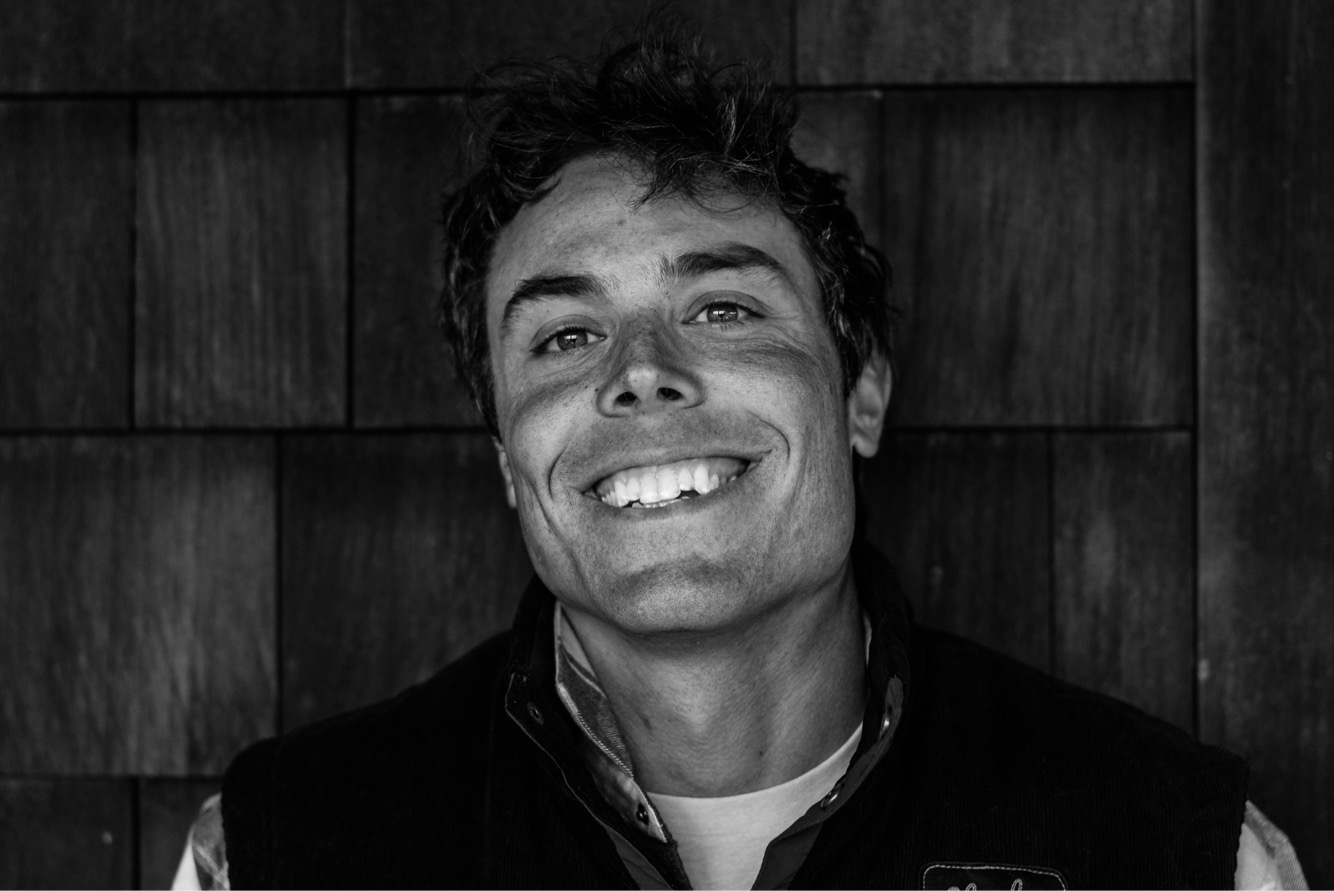
Callan Wink is a writer, novelist, fishing guide, and surfer who currently splits his time between Livingston, Montana and Santa Cruz, California. He’s the author of the newly released novel August, as well as the highly regarded short story collection Dog Run Moon, books that I recently read and thoroughly enjoyed. Callan’s writing speaks for itself, but if you’re looking for credentials, he’s got those too—he’s been published in The New Yorker, Men’s Journal, The Best American Short Stories Anthology, and more. He’s also been awarded fellowships by the National Endowment for the Arts and Stanford University, where he was a Wallace Stegner Fellow.
A native of Michigan, Callan moved west soon after high school, where he began guiding on some of Montana’s most renowned rivers. In the ensuing years, writing became more and more of a focus, and eventually, he published Dog Run Moon. Currently, Callan writes seasonally—he guides in Montana during the warm months, then moves to California during the winter, where he focuses exclusively on writing, with surfing filling the remainder of his non-writing time.
Callan and I connected via the internet from our respective quarantines and had a fun conversation about fishing, writing, reading, creativity, and more. We started out talking about his upbringing in Michigan and how fishing eventually led him to build a life in the West. We discuss the pros and cons of his seasonal approach to writing, and how working as a fishing guide helps to fuel his writing career. We talk about the importance of being a keen observer of people, and we also discuss where and how he finds inspiration for his characters. We also talk about his friendship with the legendary author Jim Harrison, and how that relationship has positively affected his life and work.
I encourage you to check out August and Dog Run Moon—I think you’ll enjoy them both. But in the meantime, enjoy this wide-ranging conversation with Callan Wink.
Photo courtesy of Callan Wink
Download on Apple Podcasts
—
Download on Spotify
—
Download on Google Play
—
Download on Stitcher
—
EPISODE NOTES
Topics Discussed:
- 6:30 – Heading to Montana to fish
- 10:30 – Childhood obsession with reading
- 12:30 – Progress toward becoming a professional writer
- 18:30 – Lessons learned from grad school
- 21:00 – Balancing writing and fishing
- 23:30 – Gathering material for characters
- 30:15 – Callan’s writing routine
- 33:30 – How an idea becomes a short story or novel
- 37:00 – How the novel August evolved from a short story
- 39:30 – Outlining versus organic growth of a story
- 43:00 – Jim Harrison’s influence
- 45:45 – Poetry Recommendations
- 51:00 – Callan’s current reading habits
- 54:00 – Advice for aspiring writers
- 58:30 – Favorite books
- 1:00:30 – The magic of Road House
- 1:01:30 – Favorite location in the West
- 1:04:00 – Best advice ever received
Information Referenced:
- Callan Wink
- Callan on Instagram
- August: A Novel by Callan Wink
- Dog Run Moon by Callan Wink
- Beth Loffreda
- Brad Watson
- Joy Williams
- Jim Harrison
- Dead Man’s Float by Jim Harrison
- Michael Earl Craig
- Tap Out by Edgar Kunz
- Breath by Tim Winton
- The Shepard’s Hut by Tim Winton
- Stegner Fellowship at Stanford
- Blood Meridian by Corman McCarthy
- Housekeeping by Marilynne Robinson
- Angle of Repose by Wallace Stegner
- Rock Springs by Richard Ford
- Road House
- Yellowstone River
Enjoy this episode? Then you might like these as well:
- Chris Dombrowski – Words, Water & the West
- Peter Heller – Chasing the Flow
- David Gessner, Part 2 – Ambition, Art, and Arête
- Hampton Sides, Part 2 – How to Tell a Damn Good Story
- Heather Hansman – Demystifying Water in the West
- Emilene Ostlind – Storytelling for the New West
- Mark Kenyon – A Passion for Public Lands

Rebecca Jewett, Part 2 – Conservation’s Role During Challenging Times
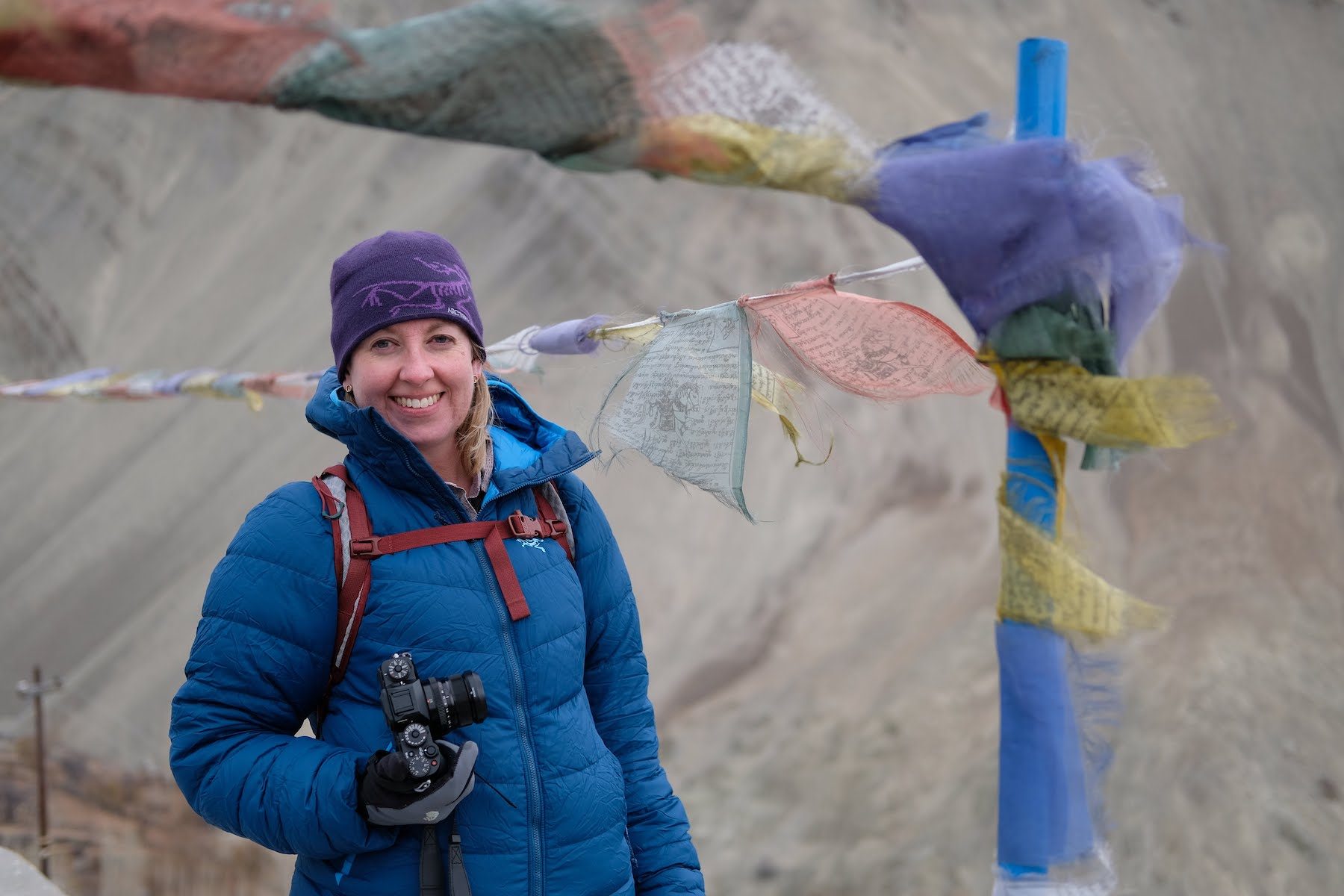

Rebecca Jewett is President and CEO of Palmer Land Trust, a conservation organization that works to conserve land and water resources in southeastern Colorado. Palmer Land Trust is one of the twenty largest land trusts in the nation based on acreage conserved, with over 135,000 acres of land protected in perpetuity. Rebecca has led the organization since 2014, expanding and diversifying its conservation initiatives and building Palmer into a national force in the land conservation sector.
If Rebecca and Palmer Land Trust sound familiar, it’s because this is Rebecca’s second time on the podcast and I work at Palmer as a Conservation Director. In the midst of this unprecedented COVID crisis, I thought it would be timely to have Rebecca join me again, this time to discuss how the crisis is affecting conservation and how she sees conservation evolving in its aftermath. Once the all-important work of the first responders has been completed, what role will the conservation of working farms and ranches, as well as public recreational open space, play in our recovery and rebuilding? For those of you who love land and the communities tied to it, this is a must-listen conversation.
And if you’re like me and often feel completely overwhelmed with COVID talk, rest assured that this conversation is upbeat and solution-oriented. I imagine you will finish the discussion inspired by the opportunities that our new future holds—and inspiration is something that we can all use more of these days. Rebecca and I cover a lot, including the importance of farming and ranching during this crisis and the role that Palmer plays in supporting agricultural producers. We talk about the need to focus on community building and strong partnerships, as well as the conservation opportunities that could arise post-COVID. Finally, we discuss leadership lessons and how the birth of her daughter has made her a better leader.
Obviously, I’m a big fan of Rebecca’s. And I’m sure that after this conversation, you will be, too. Hope you enjoy!.
Photos courtesy of Rebecca Jewett
Download on Apple Podcasts
—
Download on Spotify
—
Download on Google Play
—
Download on Stitcher
—
EPISODE NOTES
Topics Discussed:
- 3:45 – Palmer Land Trust explained
- 6:15 – Land conservation and COVID-19
- 9:00 – Community as a focus of conservation
- 13:45 – Importance of agriculture in the face of COVID
- 18:45 – Win-Win-Wins that are possible in conservation
- 21:15 – How a diversified “business model” will allow effective conservation post-COVID
- 26:30 – Importance of strong partnerships during COVID
- 30:35 – Importance of storytelling in conservation
- 35:45 – How conservation will evolve in the coming years
- 40:45 – Thoughts on leadership during challenging times
- 47:45 – How motherhood has changed her perspective, professionally and personally
- 53:45 – Importance of optimism in parenting and life
- 56:15 – Good books on parenting
- 57:45 – Other good books
- 58:45 – Favorite podcasts
- 1:00:45 – Parting words of wisdom
Information Referenced:
- Rebecca Jewett – first podcast episode
- Palmer Land Trust
- Conservation easements explained
- Gates Family Foundation
- Great Outdoors Colorado (“GOCO”)
- Russ Schnitzer podcast episode
- Seth Godin
- This is Marketing by Seth Godin
- Hampton Sides
- Hampton Sides M&P episodes One and Two
- Bringing Up Bebe by Pamela Druckerman
- Happiest Baby on the Block by Harvey Karp
- Ed’s book recommendations
- Dare to Lead by Brene Brown
- Marketplace
- Make Me Smart
- The Daily
- Fresh Air
- The Moth
- Chronicle of Higher Ed article referenced
Enjoy this episode? Then you might like these as well:
- Daniela Ibarra-Howell – Healing the Land Holistically
- Sarah Wentzel-Fisher – Conservation in the Radical Center
- Alexis Bonogofsky – Taking a Stand for the West
- Sara Dant – A Deep Dive Into the History of the West
- Emilene Ostlind – Storytelling for the New West
- Live in Bozeman – Cate Havstad, Jillian Lukiwski, Becca Skinner & Juanita Vero

New Designs, New Shop
Just a quick heads up that I recently launched a new online shop featuring a fresh batch of Mountain & Prairie swag– shirts, coffee mugs, and stickers.
I’m very excited about these designs, and I hope you are too. Head over the store to check out the full collection of broc busters, sugar skulls, charging bison, and, of course, TR!
Mountain & Prairie Shop
George Hodgin – Mission-Driven Entrepreneur

George Hodgin is the founder and CEO of Biopharmaceutical Research Company (BRC), a California-based business with the mission of providing federally legal cannabis for approved researchers in the United States. Prior to starting BRC, George served as a US Navy SEAL officer, leading counterterrorism operations in combat zones such as Afghanistan. And to top it all off, he’s a graduate of the Stanford University Graduate School of Business and the University of North Carolina, where he was a Morehead-Cain Scholar. With a resume like this, it’s safe to assume that George is a driven, hard-working guy.
From a very young age, George knew he wanted to be a Navy SEAL. So after participating in ROTC during his undergraduate years, he began the Navy SEAL training, also known as BUD/S, immediately after graduation. After nearly seven years in the SEAL teams, George left the military to pursue his MBA at Stanford. During grad school, while helping one of his SEAL teammates seek treatment for combat injuries, George was shocked by the inability of doctors to advise patients on the use of marijuana for therapeutic, healing purposes. Despite being legal in many states, it is still illegal at the federal level, and therefore unable to be studied by federally approved researchers and doctors. George and his company seek to change this status-quo so that cannabis can be better understood and more widely prescribed as an alternative to opioids and other drugs.
The state-legal marijuana business has its roots in the American West, so I’ve wanted to speak with a cannabis entrepreneur for some time now. George offers excellent insights into the industry, discussing the challenges, governmental roadblocks, and opportunities for optimistic, innovative entrepreneurs. We also talk about why he decided to become an entrepreneur, and why he has consistently chosen some of the most challenging careers imaginable. We talk a lot about his service in the Navy, including the common traits of SEALs, the lessons learned from service, and the challenges of transitioning from the military into civilian life. Since we recorded this episode a few weeks into the Coronavirus crisis, he offers some hard-earned wisdom on how best to deal with high-stress, potentially dangerous situations like the one we all find ourselves in now.
George and I were supposed to record this episode in person, but the Coronavirus had other plans. But we still made it happen– each of us holed up in our homes and connected via Zoom– so I hope this episode offers some entertainment and motivation during this challenging time. Thanks for listening.
Photos courtesy of George Hodgin
Click Here to Download on iTunes
—
Click Here to Download on Spotify
—
Click Here to Download on Google Play
—
Click Here to Download on Stitcher
—
EPISODE NOTES
Topics Discussed:
- 4:00 – BRC explained
- 7:00 – Genesis of the idea for BRC
- 10:15 – Decision to be an entrepreneur
- 13:00 – Complexity of the cannabis business
- 16:00 – What fuels his passion for BRC
- 18:00 – Early years in NC
- 21:30 – Morehead-Cain Scholarship explained
- 24:00 – Early desire to be a SEAL
- 26:00 – Path from college to BUD/S
- 31:30 – Common trait of successful SEALs
- 34:30 – Transition from the Navy to civilian life
- 38:00 – Finding purpose outside of the SEALs
- 43:00 – Military lessons applied to business
- 47:30 – Main business challenge facing BRC
- 53:30 – Thoughts on the Coronavirus
- 57:45 – Favorite books
- 1:00:00 – Favorite Films
Information Referenced:
- Biopharmaceutical Research Company (BRC)
- Navy SEALs
- Stanford Graduate School of Business
- Morehead-Cain Scholarship
- National Outdoor Leadership School
- Navy SEALS movie clip
- BUD/S
- Navy SEAL Foundation
- “Commander’s Intent”
- Good to Great by Jim Collins
- The Cruelest Miles Gay Salisbury
- Washington’s Farewell by John Avalon
- Man’s Search for Meaning by Victor Frankl
- Daniel Day-Lewis
- Lincoln
- Gangs of New York
- Becoming Warren Buffett
Enjoy this episode? Then you might like these as well:
- Auden Schendler – The Optimistic Pragmatist
- Christine Su – The Business of Healthy Grasslands
- Matt Barber & Joel Doub – Stewards of a Fly Fishing Legacy
- Mike Reilly – Helping Combat Veterans Rediscover Purpose
- Jason Schlarb – Service, Adventure, and Ultra-Endurance

Kyle Richardson – Mountains & Music
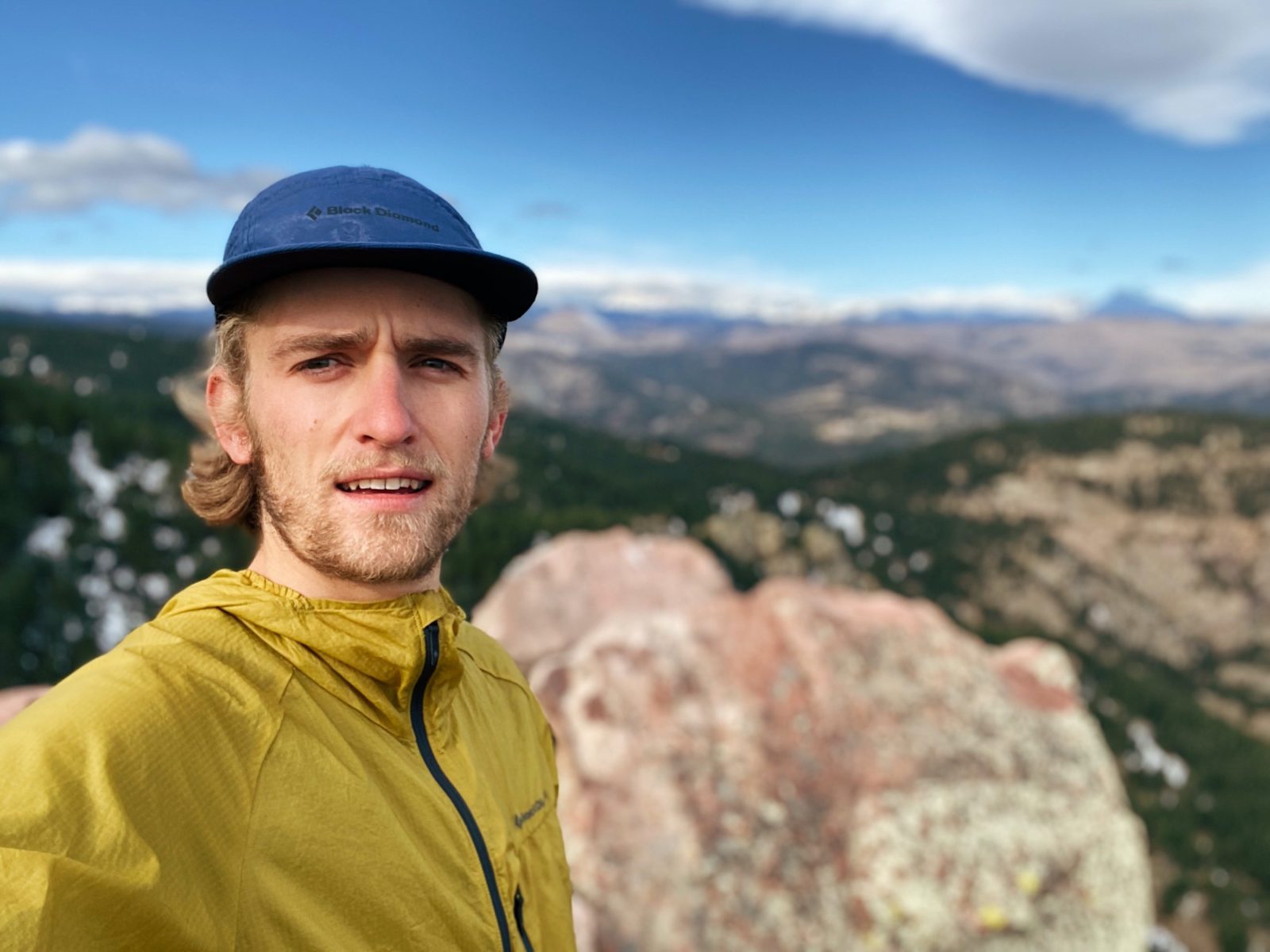
Kyle Richardson is a Colorado-based professional runner and mountain athlete who is best known for his high-stakes, high-speed endurance feats in the Rocky Mountains. Over the past two years, Kyle has set several Fastest Known Time (“FKT”) records in the Colorado mountains—most notably on Boulder’s First and Third Flatirons, as well as the renowned LA Freeway route that stretches from Longs Peak to Arapahoe Peak. Away from his endurance feats, Kyle is a formally trained musician, and he composes original music for filmmakers and outdoor brands such as Black Diamond and La Sportiva.
Born and raised in Austin, Texas, Kyle’s youth was defined by time in the outdoors with his family and a deep commitment to music and playing the drums. His love of the West’s wide-open spaces led him to college at the University of Colorado at Boulder, where he began to realize his talent for endurance and moving quickly through the mountains. After several years of running and climbing throughout Colorado, he captured the attention of the endurance community with his record-setting time on the LA Freeway, a difficult and exposed route that combines running, scrambling, and rock climbing. Since then, he has earned sponsorships from major outdoor brands that have allowed him to pursue his adventures in the mountains with full focus and intensity.
I met up with Kyle in Boulder, where we had a wide-ranging conversation about his passion for the mountains and music. We started by discussing his athletic career and some of the details around his fastest known times on well-known mountain routes. We also discussed Kyle’s love of the process of training—in both athletics and music—and how his commitment to preparation gives him the confidence to pursue challenging and sometimes dangerous goals. We discuss the common skills required to be great in both endurance sports and music, and Kyle talks about some of the mentors and heroes who have shaped his career. Kyle is a voracious reader, so we talk a lot about books, and Kyle reveals a very interesting personal tie to one of my favorite history books, Empire of the Summer Moon.
Kyle is humble and thoughtful, and it was a real pleasure getting to know him. Hope you enjoy this conversation as much as I did.
Photos courtesy of the Kyle Richardson
Click Here to Download on iTunes
—
Click Here to Download on Spotify
—
Click Here to Download on Google Play
—
Click Here to Download on Stitcher
—
Episode Notes
Topics Discussed:
- 3:00 – How Kyle describes his athletic pursuits
- 6:00 – Kyle and Fastest Known Times (“FKT”)
- 10:30 – FKTs in the Boulder’s Flatirons
- 16:00 – Training routine
- 18:00 – Growing up in Texas
- 20:30 – Music and how it informs athletics
- 22:50 – Film scoring, composing, and music industry
- 26:30 – Heroes and mentors in the music world
- 28:00 – Drums, running, and excess energy as a kid
- 29:30 – When people began to take note of Kyles running
- 32:30 – Athletic mentors
- 38:30 – Artistic, cerebral aspects to mountain sports
- 39:30 – Assessing risk in the mountains
- 42:30 – Nature making you feel small
- 46:30 – Kyle’s parent’s support for his career
- 48:30 – Running goals for 2020
- 52:00 – Books he’s currently reading
- 54:15 – Favorite books about the West
- 56:00 – Limiting screens and social media
- 57:30 – Favorite location in the West
- 58:45 – Most powerful outdoor experience
- 1:00:25 – Parting words of wisdom
Information Referenced:
- Kyle Richardson
- Kyle on Instagram
- Black Diamond
- La Sportiva
- Peter Bakwin
- FKT website
- FKT podcast
- Third Flatiron
- Art Blakey
- Jeremiah Green
- Carter Beauford
- Wilco
- LA Freeway
- Buzz Burrell
- Longs Peak
- Joe Grant
- Joe Grant podcast episode
- Anton Krupicka
- The Rut
- The Big Wonderful Thing by Stephen Harrigan
- The Amazing Adventures of Kavalier and Clay Michael Chabon?
- Blood and Thunder by Hampton Sides
- Hampton Sides podcast interview
- Empire of the Summer Moon by SC Gwynne
Enjoy this episode? Then you might like these as well:
- Joe Grant – Self-Powered Alpine Adventurer
- Justin Simoni – The Ultra-Endurance Artist
- Brendan Leonard – Grinding It Out
- Pete McBride – A Passion for Water & Wild Places
- Brady Robinson – Climber, Educator, Outdoor Advocate
15 Books That Will Give You Strength During Challenging Times
15 Books That Will Give You Strength During Challenging Times
I’m not an epidemiologist, nor do I play one on the internet. So I don’t have anything useful to add to the ubiquitous, high-voltage analysis of our new viral nemesis.
But I do compulsively read books, so I wanted to offer up a few titles that may be useful during these trying times. If I’ve learned anything from my love of history and reading, it’s that tough times can bring out the best in people, and almost everyone who has made a difference in the world has endured suffering in one form or another.
Easier said than done, for sure. One of my biggest worries around our current situation is wondering if I’ll be able to muster the toughness and steadiness of mind to co-lead my family through what will likely be a rough time for the entire world. I guess we’ll see. But I have found solace and wisdom in the books below, so I hope you will too.
[I’ve linked to Amazon for all of these books so you can click through to learn more and read reviews. But if you choose to buy one, please do so through your local bookseller. Owning a local bookstore is a tough business even in the best of times, so they would appreciate your patronage now more than ever.]
Tribe: On Homecoming and Belonging by Sebastian Junger – A short, powerful book that discusses how the most brutal of circumstances can reveal the best in the human race. Junger also explores how tragedy and challenge can refine our focus and strengthen our community bonds. One of the most influential and paradigm-shifting books I’ve ever read.
Man’s Search for Meaning by Viktor Frankl – Frankl was an Austrian psychologist who was imprisoned for years in a German concentration camp during World War II. Even amid such horrific evil, suffering, and death, he was able to find purpose and contentment—and then pass along this valuable wisdom to us, the reader.
When Things Fall Apart: Heart Advice for Difficult Times; The Places That Scare You: A Guide to Fearlessness in Difficult Times; Start Where You Are: A Guide to Compassionate Living by Pema Chodron – As far as I’m concerned, Pema is one of the wisest humans on earth. Her writings and speeches have improved my life in innumerable ways, and I whole-heartedly recommend all of her work. These three books are collections of short, easy-to-read essays that pack a serious punch.
Endurance: Shackleton’s Incredible Journey by Alfred Lansing – Shackleton and his crew were stranded on an inhospitable Antarctic ice shelf for nearly two years, yet Shackleton managed to keep his men optimistic, energized, and alive for the full duration. It’s a case study in the importance of routine, exercise, camaraderie, and positivity, even during the direst circumstances.
The Worst Hard Time: The Untold Story of Those Who Survived the Great American Dust Bowl by Timothy Egan – Don’t let the relative cushiness of the past 60 years fool you—there’s a long history of suffering in North America. The Dust Bowl is one of many examples of how Americans were able to survive epic ecological and economic turmoil and emerge from the crisis much tougher and stronger than before.
Waking Up: A Guide to Spirituality Without Religion by Sam Harris – This book offers a straightforward, practical guide to mindfulness and meditation, without any of the spiritual lingo that can be off-putting to many. It’s a guide to training your mind, recognizing thought patterns, and not getting jerked around by your emotions—essential skills to have in your tool belt in the coming months.
The Obstacle is the Way: The Ancient Art of Turning Adversity to Advantage by Ryan Holiday – Holiday draws on Stoic philosophy and historical figures to drive home the point that challenges and tragedies are inevitable—it’s how we deal with them that makes all the difference. Rather than dwell on the unfairness of it all, why not use these challenges to make ourselves better?
The Long Walk: The True Story of a Trek to Freedom by Slavomir Rawicz – A mind-blowing tale of just how much suffering humans can tolerate when times get tough. It follows the journey of Soviet soldiers who escape from a prison camp, only to have to cross a desert and the damn Himalayas to secure their freedom.
D-Day: June 6, 1944: The Climactic Battle of World War II by Stephen Ambrose – This book reminds me that when the chips are down, humans are capable of unbelievably complex cooperation and staggering heroism. It also reminds me that sitting around my house “social distancing” is a small price to pay for my community, country, and the world—much lower price than running directly into Nazi gunfire.
On the Shortness of Life: Life Is Long if You Know How to Use It by Seneca – Given current events, the title may seem somewhat morose, but the book’s overall lesson is clear—don’t fritter away your life. Make the most of it, because you might have 50 more years or you might have five more days. For some reason, I feel better about many of my internal struggles knowing that folks like Seneca struggled with the same issues 2,000 years ago.
The Daily Stoic: 366 Meditations on Wisdom, Perseverance, and the Art of Living by Ryan Holiday – Daily meditations that feature one short quote by a Stoic philosopher such as Seneca above, followed by a few paragraphs applying the principle to modern-day life. This book has been recommended by many of my podcast guests, and I read it (almost) everyday.
The Rise of Theodore Roosevelt by Edmund Morris – Just because I include this book on every list. And because TR knew how to make the most out of any circumstance. In the next few weeks, when deciding between watching Youtube videos or going for a run, wallowing in self-pity or doing art with your child, scrolling through Twitter or reading a book; just ask yourself, “What would TR do?”
Lonesome Dove by Larry McMurtry – Not interested in endless self-analysis or examining the fragility of life? Fair enough. Unplug and enjoy my favorite fiction book of all time. It will make you happy.
Daniela Ibarra-Howell – Healing the Land Holistically
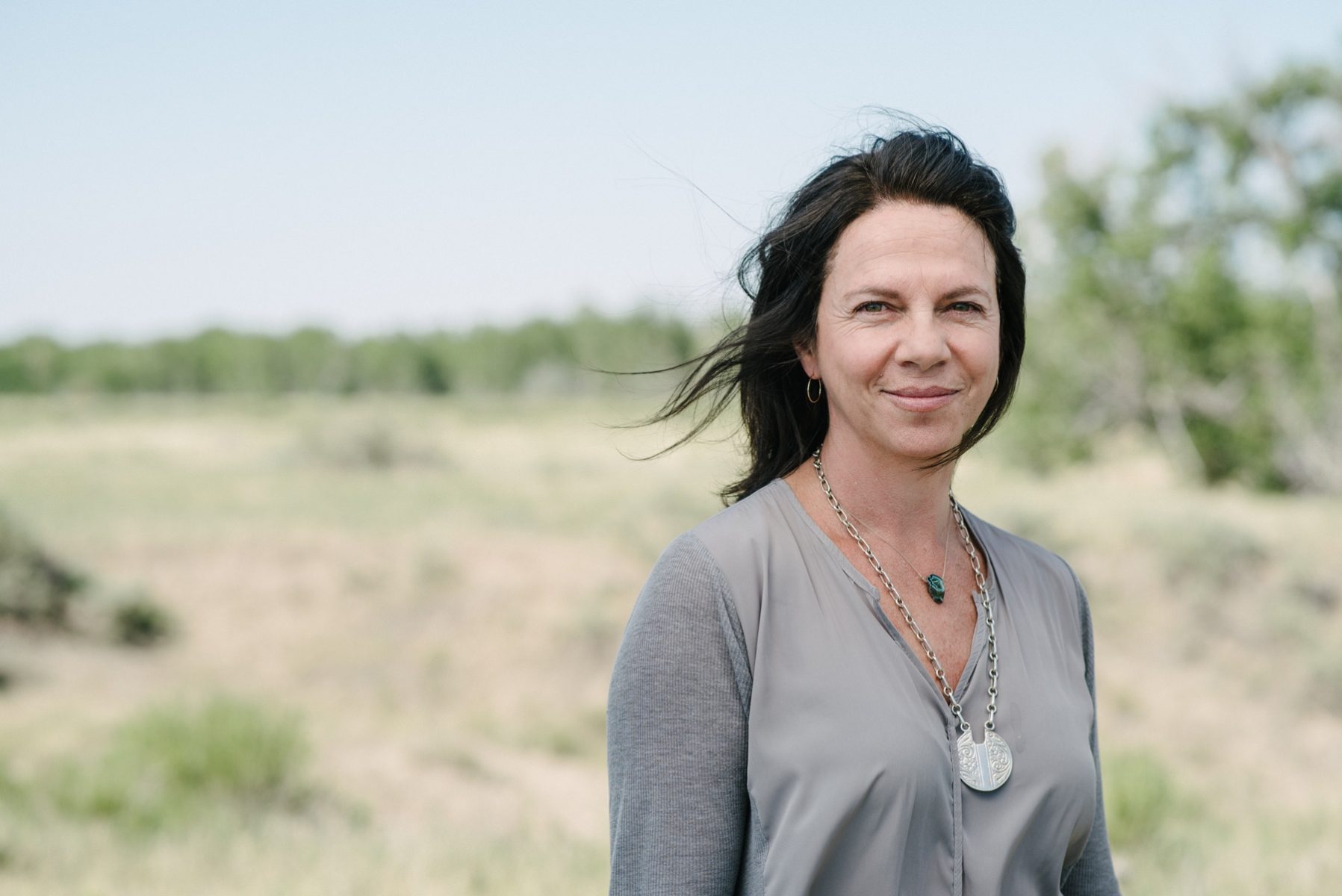
Daniela Ibarra-Howell is the CEO and a co-founder of the Savory Institute, an organization whose mission is to regenerate the world’s grasslands through holistic management. By restoring and protecting grasslands– both in the American West and around the globe– Daniela and her team at Savory effectively address pressing issues such as climate change, economic well-being, and food and water insecurity. Through inspiring leadership, masterful storytelling, and cutting-edge research, Savory is shifting the paradigm around agriculture’s role as a solution to many of the world’s challenges.
Daniela was born and raised in Argentina, and from a very young age, she loved the land, agriculture, and adventure. Her studies of agronomy led her to some of the far reaches of the globe, including New Zealand, where she met her now-husband Jim Howell. After many years managing ranches and working in the trenches of holistic management, they helped to found the Savory Institute in 2009, and Daniela took the reigns as CEO in 2011. Since then, the organization has grown and evolved, and Daniela has become one of the world’s leading voices for Holistic Management.
I was thrilled to finally get the chance to chat with Daniela on the podcast because my guests and I have referenced the Savory Institute so many times over the years. We started by discussing the organization– its mission, goals, structure, and global reach. We then talk about Daniela’s leadership philosophy and how she values thoughtful action, failing fast, and embracing complexity in all aspects of life. We talk about her upbringing in Argentina, her adventurous personality, and her partnership with her husband, Jim. We also talk about motherhood and how she has managed to balance such a high-performing career with raising two impressive and accomplished daughters. Whether you are interested in agriculture, leadership, or parenting, there are many lessons to be learned from Daniela, so I hope you enjoy!
Photos courtesy of the Savory Institute
Click Here to Download on iTunes
—
Click Here to Download on Spotify
—
Click Here to Download on Google Play
—
Click Here to Download on Stitcher
—
Episode Notes
Topics Discussed:
- 5:00 – Savory Institute explained
- 9:30 – Growth and evolution of Savory
- 14:00 – On taking risks and failing fast
- 16:00 – “Holistic Management” defined
- 18:30 – “Regenerative Agriculture” defined
- 21:00 – Business inertia in agriculture
- 27:00 – Importance of storytelling (and data!)
- 31:00 – Will Harris and White Oak Pastures as storytellers
- 34:45 – Daniela’s upbringing and education in Argentina and beyond
- 40:30 – Meeting Jim in New Zealand
- 44:00 – How managing ranches made her a better leader of people
- 52:00 – Heroes and mentors in business and leadership
- 56:00 – Balancing action and planning
- 1:00:30 – Thoughts on motherhood and raising children
- 1:07:00 – Important books on agriculture
- 1:12:30 – Parting words of wisdom
Information Referenced:
- Savory Institute
- Savory Hubs
- Allan Savory
- Jody Butterfield
- Jim Howell (episodes 1 and 2)
- Grasslands LLC
- Paris Agreement of 2015
- Will Harris – White Oak Pastures
- Wilbur Smith
- Indiana Jones
- Holistic Management by Allan Savory
- Savory’s Land to Market Project
- Tre Cates
- Auden Schendler episode
- The Continuum Concept by Jean Leidloff
- The More Beautiful World Our Hearts Know is Possible by Charles Eisenstein
- For the Love of Land by Jim Howell
This episode is brought to you by the FREEFLOW INSTITUTE. The first ten Mountain & Prairie listeners who register for a 2020 summer course will get $100 off their tuition. Just mention the Podcast when you register. For more information go to freeflowinstitute.com or shoot them an email at info@freeflowinstitute.com.
Enjoy this episode? Then you might like these as well:
- Jim Howell – Conserving and Restoring the World’s Grasslands
- Sarah King – Collaborative Conservation in the American Southwest
- Jim Howell, Part II – Restoring Ecological Capital Through Grazing
- Rebecca Jewett – Big Ideas for the New West
- Alexis Bonogofsky – Taking a Stand for the West
Andrew Ramiro Tirado – Stoking His Artistic Fire
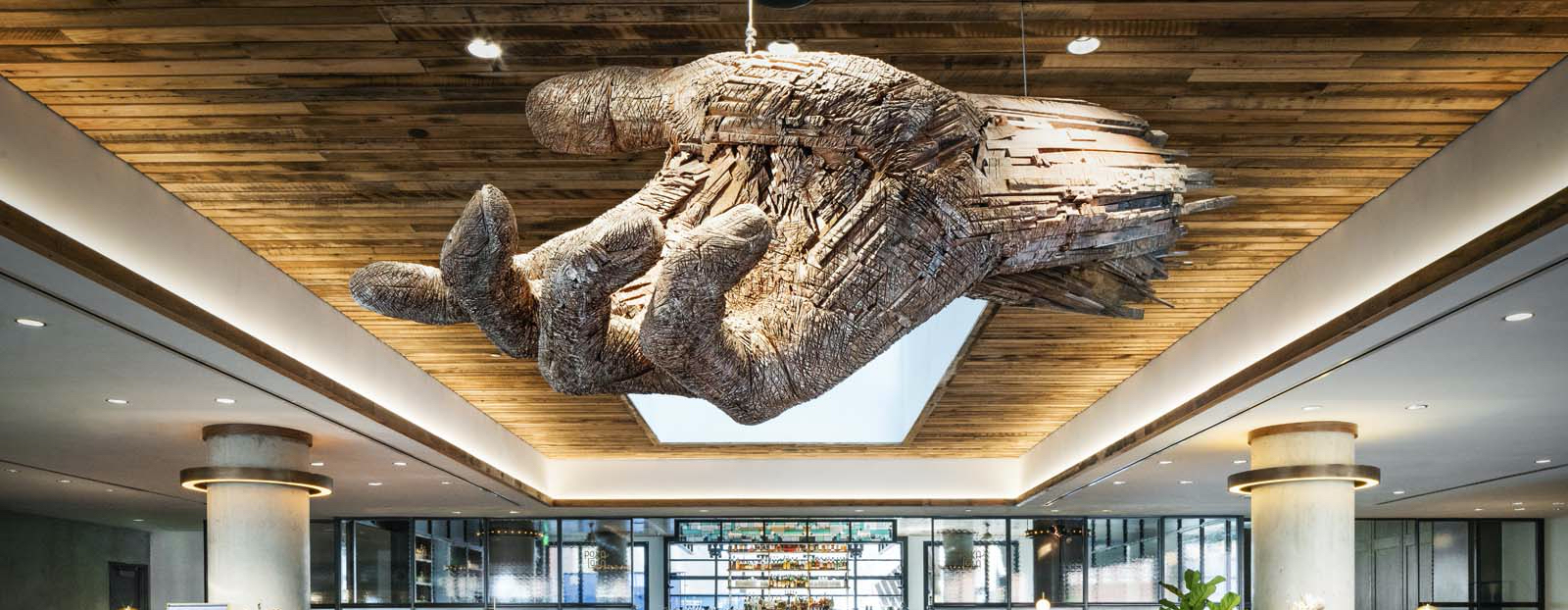
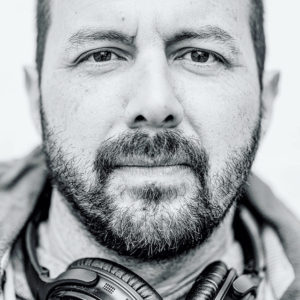
Andrew Ramiro Tirado is a Colorado-based artist who is best known for his award-winning large-scale sculptures and paintings of human hands. Using wood, metal, or traditional paint and canvas, Andrew combines his unique artistic eye with decades of experience as a craftsman to create remarkable pieces that are stunning in both their size and presentation. His hand sculptures can exceed ten feet in length and are sometimes displayed hanging from the ceilings of galleries or buildings—when you see Andrew’s work, there is no mistaking who created it!
Andrew grew up in Colorado and graduated high school with the intention of studying and pursuing art as a vocation. During college, he landed a job in New York City, working as an assistant for the renowned artist Chuck Close—a coveted position for any budding artist. But soon after leaving New York, Andrew decided to walk away from making art, and he stayed away for 23 years. But in 2012, a serendipitous life-changing event rekindled his interest in making art, and he returned to the art world with full focus and passion. Just four years later, in 2016, Andrew resigned from his job at Colorado College and began pursuing art full time… and has never looked back.
We met at Andrew’s brand new Colorado Springs studio, which happens to be just a few blocks from my own house. We had a wide-ranging discussion covering everything from making art to mountain climbing to the realities of life as a full-time artist. We started out by discussing his upbringing in Colorado Springs and how he found his way to art school and eventually, New York City working for the world-famous Chuck Close. Then we discuss his decision to leave the art world, and why—after more than two decades away—he decided to return to making art. We talked about the importance of writing to Andrew’s artistic process, as well as lessons he’s learned from spending time up high in the Colorado mountains. And finally, we talk about artistic heroes, favorite books, favorite films, and Andrew offers wisdom to those who dream of pursuing art as a full-time vocation.
Andrew is an amazingly thoughtful and humble guy, and I greatly admire his soft-spoken and wise approach to chasing his dreams. Be sure to check out all of Andrew’s art on his website, but for right now, enjoy this insightful conversation with Andrew Ramiro Tirado!
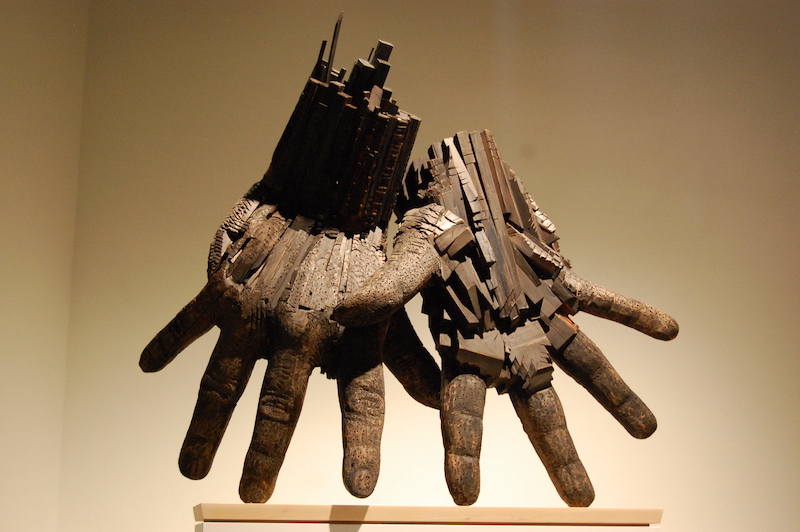
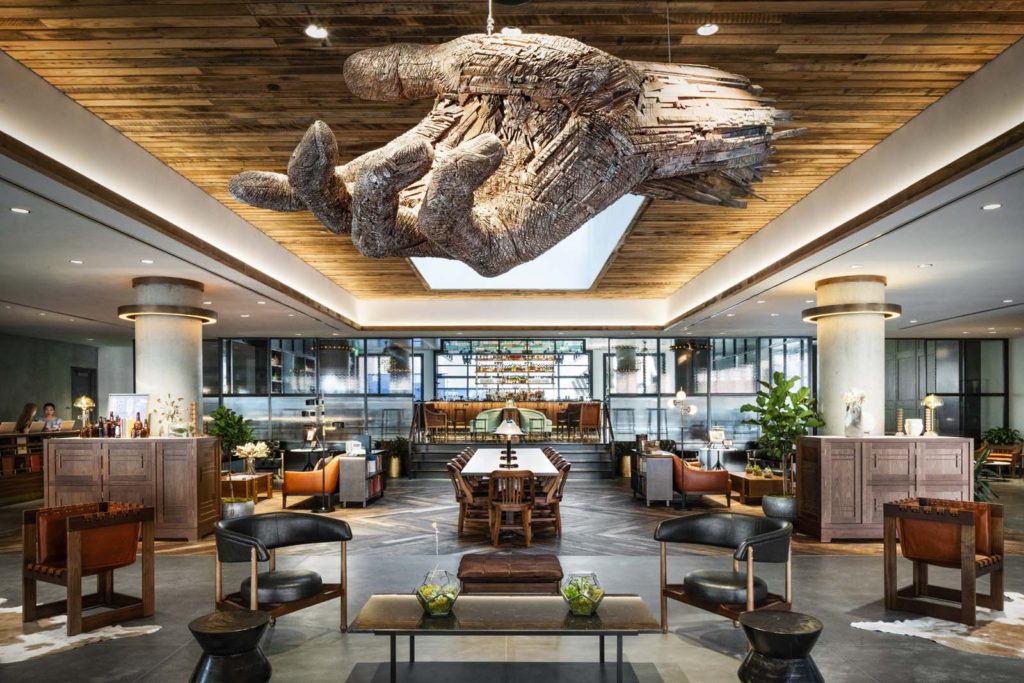

Photos courtesy of Andrew Tirado, headshot by James Cochrane
Click Here to Download on iTunes
—
Click Here to Download on Spotify
—
Click Here to Download on Google Play
—
Click Here to Download on Stitcher
—
Episode Notes
Topics Discussed:
- 4:00 – Andrew’s background
- 6:15 – Studying art in school
- 8:00 – Working for Chuck Close
- 11:00 – “Leaning in” to opportunities
- 12:00 – Lessons learned from Chuck Close
- 15:30 – The importance of self-imposed limitations
- 18:00 – Taking a hiatus from art
- 21:30 – The moment he decided to return to art
- 25:30 – Making his first-hand art piece
- 31:00 – Discovering a demand for his art
- 34:00 – Decision to pursue art full time
- 36:00 – Chasing the feeling of “peak experiences”
- 41:00 – Importance of “inflection points”
- 42:30 – Importance of writing to Andrew’s writing process
- 47:30 – How time in the mountains has affected his art
- 50:00 – Andrew’s artistic heroes
- 52:45 – Favorite books
- 55:00 – Films
- 59:00 – Favorite location in the West
Information Referenced:
- Andrew Ramiro Tirado
- Andrew’s Blog
- Andrew on Instagram
- Floyd Tunson
- Chuck Close
- Bemis School of Art
- Colorado College
- Strand Book Store
- Canoecraft by Ted Moores
- Masters of Scale Podcast
- James Surls
- James Herriot
- All Creatures Great and Small by James Harriet
- Lawrence of Arabia
- Road House
- NOLS
- Art Institute of Chicago
Enjoy this episode? Then you might like these as well:
- Geoffrey Keating – Built to Last
- Cate Havstad – Cultivating Creativity & Craftsmanship
- Rebecca Jewett – Big Ideas for the New West
- Peter Heller – Chasing the Flow
- Camrin Dengel – Slow Living in the American West
Jessica Ilalaole – Creating Home in the High Desert

Jessica Ilalaole is a New Mexico-based artist who specializes in handcrafted jewelry inspired by the natural world and the landscapes of the American West. Through her online store CobraCult Jewelry, Jessica has built a loyal following of customers and admirers who are drawn to her uniquely stunning designs, as well as her authentic and unconventional lifestyle. Jessica’s personality is a unique mix of confident yet humble, social yet solitary, fiercely independent yet fully devoted to her friends and family– a special blend of traits that have allowed her to create unique art and one-of-a-kind life.
Jessica grew up in Hawaii but now lives on a spectacular property in Northern New Mexico on the western slope of the Sangre de Cristo mountain range. Her jewelry studio looks out onto the mountains, and she and her partner Cody are in the process of building an adobe cabin from the ground up. But while the views are spectacular, their lives are currently fully focused on hard work– home construction, jewelry making, and the day-to-day realities of running Jessica’s business. Their vision and work ethic are extremely inspiring, and it was a pleasure to meet and record this episode at the property.
We sat down in Jessica’s studio and had a wonderful and wide-ranging conversation. We started by chatting about the property– how they decided to move there, how they acquired it, and their plans for it. We then talked about Jessica’s journey as an artist, and when and why she decided to make a go of it as a full-time jewelry maker. We discuss the influence of her parents, her artistic influences, her love of motorcycles and tattoos, and how social media has helped her to grow her business. We also discuss her commitment to positivity, the roots of her independent streak, and she offers some excellent advice for other aspiring artists. And as usual, we discuss favorite books, films, the best advice she’s ever received, and more.
Be sure to check the episode notes for links to everything. Hope you enjoy!
Photos courtesy of Jessica Ilalaole
Click Here to Download on iTunes
—
Click Here to Download on Spotify
—
Click Here to Download on Google Play
—
Click Here to Download on Stitcher
—
Episode Notes
Topics Discussed:
- 3:10 – Jessica describes her property
- 5:40 – Growing up in Hawaii
- 8:10 – Being considered a haole
- 10:10 – Source of Jessica’s independent streak
- 11:10 – Similarity to parents
- 15:55 – Early years as an artist and jewelry maker
- 18:00 – Decision to make jewelry making a full-time job
- 20:00 – Skills learned from taking jewelry classes
- 22:00 – Deciding to take become a full-time artist
- 24:10 – Challenges of working solo while being a social person
- 25:40 – Relationship with Cody and building their cabin
- 30:10 – Artistic influences
- 31:10 – Riding motorcycles
- 37:00 – Jessica’s connection to tattoos
- 39:40 – Independent streak revisited
- 42:00 – Daily routines
- 44:40 – Exciting personal news!
- 47:30 – Long-term plans
- 49:10 – Influences or heroes
- 51:40 – Meaning of CobraCult
- 54:00 – Instagram’s role in her business and life
- 59:30 – Favorite books
- 1:03:00 – FAvorite documentary
- 1:04:00 – Favorite location in the West
- 1:05:30 – Best advice ever received
- 1:09:30 – Advice for aspiring artists
Information Referenced:
- CobraCult Jewelry
- Jessica on Instagram
- Cody’s Instagram
- Questa, NM
- Hawaiian telescope controversy
- Haole
- Buffalo Exchange
- Oregon College of Art and Craft
- Hayfork, California
- Trinity Alps
- Emerald Triangle
- Long Way Round
- Cheyenne Sawyer tattoo artist
- Make Your Bed by Admiral William McRaven
- Daily Stoic by Ryan Holiday
- Temperance Creek by Pamela
- Chris Eyer / Muledragger episode
- Happy People documentary
- Wind River Range
- Creative process meme
Enjoy this episode? Then you might like these as well:
- Cate Havstad – Cultivating Creativity & Craftsmanship
- Jillian Lukiwski – Art and Adventure in the American West
- Jessica Lewis – Doing More With Less
- Live in Bozeman – Cate Havstad, Jillian Lukiwski, Becca Skinner & Juanita Vero
- Stephen Smith, Part 2 – Evolution & Reinvention
- Robert Krapfel – On Living a Purpose-Driven Life
My 12 Favorite Books of 2019
My 12 Favorite Books of 2019
I thoroughly enjoyed every single book that I recommended in 2019—I sure as hell wouldn’t have recommended them otherwise! But for one reason or another, the twelve titles below managed to carve out a special spot in my brain.
Here, in the order that I read them, are my favorite books of 2019:
Body of Water: A Sage, A Seeker, and the World’s Most Elusive Fish by Chris Dombrowski – Dombrowski is a gifted poet and a highly skilled angler, giving him the perfect literary toolbox to tell the heartwarming and heartbreaking story of a legendary Bahamian bonefishing guide. Body of Water has all the ingredients I love: honest memoir, outdoor adventure, fascinating history, captivating characters, and lyrical nature writing.
Return on Courage: A Business Playbook for Courageous Change by Ryan Berman – In today’s disorientingly fast-paced world, playing it safe or embracing the status quo will, more often than not, drive organizations into the ground. Taking lessons from everyone from Navy SEALs to CEOs, Berman lays out his case for embracing courage in all aspects of business and life.
The Dog Stars by Peter Heller – An action-packed, sometimes-violent, always-thrilling tale of life along Colorado’s Front Range… post-apocalypse. If you love the landscapes of northern Colorado and also enjoy scaring the shit out of yourself, this is your book.
The Crowded Hour: Theodore Roosevelt, the Rough Riders, and the Dawn of the American Century by Clay Risen – I’ve read way too many TR books, and my standards are snobbishly high when it comes to any newcomers’ attempts to tell the 26th President’s story. But Risen nails it. Enough TR antidotes to placate a superfan like me, balanced with fascinating history of everything from the Spanish-American War to the individual character sketches of Rough Riders.
Downriver: Into the Future of Water in the West by Heather Hansman – Most of my professional life revolves around water in the West, and this is my favorite book on the subject to date. A perfect blend of adventure narrative and educational lesson, this book is an ideal entry point for people looking to learn more about water issues facing the West, minus the Ambien-like side effects that accompany most water-related books.
On Writing: A Memoir of the Craft by Stephen King – This book had been recommended to me time and time again, and I’m so glad I finally read it. Part memoir, part writing mechanics, and part creative motivation, the book lays out the dedication and obsession required to be a successful author.
The River by Peter Heller – This is Heller’s most recent book and the one I identify with the most. Two college-age guys head out on a wilderness adventure (which I did many times), and the whole thing devolves into a murderous nightmare (which I thankfully never experienced!).
Creative Calling: Establish a Daily Practice, Infuse Your World with Meaning, and Succeed in Work + Life by Chase Jarvis – A practical guide to pursuing creative endeavors, whether as a full-time job or a side passion project. This book ranks alongside The War of Art and all of Seth Godin’s books for the most useful books on producing creative work.
That Wild Country: An Epic Journey through the Past, Present, and Future of America’s Public Lands by Mark Kenyon – Most citizens who love the outdoors are aware that our public lands are under attack. But I’d wager that few understand the rich history of these places, nor the specific threats to this uniquely American birthright. Kenyon educates and entertains, and the end product is a book that should be required reading for all public lands users.
Civilized to Death: The Price of Progress by Christopher Ryan – For millions of years, humans evolved to live in certain ways, eat certain foods, and maintain certain social structures, many of which are now impossible thanks to modern society. Yes, humans have made “progress,” but are we better off as a result? This book explores that question brilliantly.
Querencia by Stephen Bodio – I was lucky enough to receive this memoir as a gift, and I devoured it in just a few sittings. Beautifully written, deeply personal, and at times hilarious, I consider it a “must-read” for any native easterner who moves West of the 100th Meridian.
River of Traps: A New Mexico Mountain Life by William deBuys & Alex Harris – A book that combines stunning prose and striking photographs, this memoir masterfully describes the unique landscape, culture, and history of life in the northern New Mexico foothills. A moving tribute to immersion in new cultures and a way of life that has all but disappeared.
2019 Reads
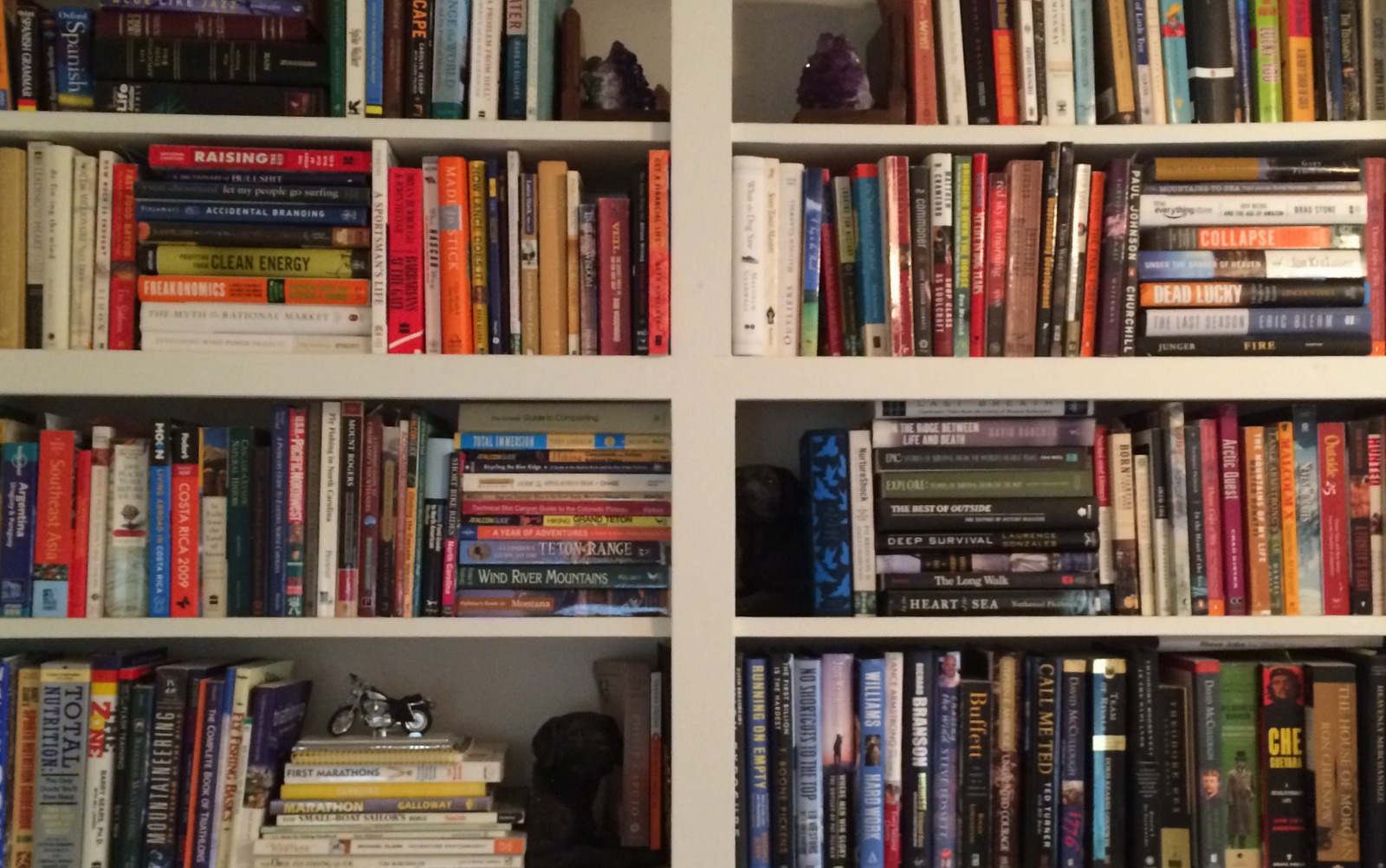
A comprehensive list of every book I recommended in 2019, taken directly from my bimonthly book recommendations email.
Where the Water Goes: Life and Death Along the Colorado River by David Owen – In my experience working in the West, there are few, if any, topics that are more controversial and maddeningly complicated than water. Every time I proudly learn a new tidbit of water-related information, I’m just opening the door to a dozen more concepts that I now have to struggle to understand. That being said, this is the most user-friendly book I’ve found that digs into all the complex issues, without the Ambien-like effects of most water-related books. Owen, a New Yorker writer, follows the Colorado River from its source just west of Longs Peak all the way to Mexico, delving into water concepts and controversies in an engaging and easy-to-read style. Given that I spend so much of my professional time deep in the nitty-gritty details of water, it was valuable for me to revisit the issues from the 30,000-foot view that this book provides. To understand the West, you need to understand water, and this book is an excellent resource. [The “bible” of water in the West is Cadillac Desert: The American West and Its Disappearing Water by Marc Reisner. But be forewarned, it’s dense.]
Digital Minimalism: Choosing a Focused Life in a Noisy World by Cal Newport – Newport is a tenured professor of computer science at Georgetown University who has built quite a side gig around calling b.s. on the ubiquitous assumption that constant connectivity improves our lives. His last book, Deep Work, is one of the most influential books I’ve read in the past five years, so I had high hopes for this one… and he delivers. Rather than the typical “quit all social media and trash your phone” solution that some “experts” propose, Newport concedes that many new technologies (smartphones, social media, etc.) do offer benefits that can improve our lives. But rather than embrace every aspect of every new technology, we must choose our technologies carefully and establish a strict, thoroughly considered philosophy around how we use them. His big-picture arguments make perfect sense to me, and his specific proposed strategies for managing technology are reasonable and actionable. I HIGHLY recommend this book. [If you haven’t already, read his first book: Deep Work: Rules for Focused Success in a Distracted World.]
Body of Water: A Sage, A Seeker, and the World’s Most Elusive Fish by Chris Dombrowski – Truth be told, the accountability of this email list sometimes causes me to plow through books with a solemn, workman-like approach. But then I’ll pick up a book like this one, and my plodding immediately transforms into effortless, purely enjoyable reading. Body of Water has all the ingredients I love: honest memoir, outdoor adventure, fascinating history, captivating characters, and lyrical nature writing. But to be clear, you do not need to be an angler to enjoy this book—the story surrounding the main character, Bahamian David Pinder, is heartbreaking, inspiring, and infuriating, and it caused me to think long and hard about the unintended effects of adventure travel to faraway places. Dombrowski is an accomplished poet, and his mastery of words and rhythm shine through, particularly in his descriptions of stalking and reeling in bonefish on blue-water flats—again, no fishing experience required to marvel at his master wordsmithing. I’m so happy that I happened across this book, and it has already secured a spot on my Favorites of 2019 list. Pay attention to Dombrowski—it will be exciting to watch his career continue to evolve and flourish. [One of my favorite fishing-centric books ever is The Old Man and the Boy by Robert Ruark.]
Return on Courage: A Business Playbook for Courageous Change by Ryan Berman – It’s about damn time Ryan Berman wrote a book—he put in years at big-time ad agencies, then started his own and grew it into an award-winning branding machine. He recently walked away from his “sure-thing” career to start two brand new companies, one of which focuses on solving complex social issues. Given Berman’s ability to lay it all on the line time and again, he’s more than qualified to write this book about the importance of courage in business. Based on his own experience, as well as extensive interviews with startup founders, a Navy SEAL, an astronaut, and other badasses, Berman has curated time-tested wisdom and presented it in this fun, motivating, tactic-filled book. Whether you’re running your own one-person business or toiling away at a billion-dollar behemoth, there are very important lesson to be learned from this book. [Full disclosure: The author has been a great friend of mine for 20+ years, but even if I’d never had the honor of knowing him, I’d still recommend this book. Excellent work, Berms!]
The Prince’s Speech: On the Future of Food by HRH The Prince of Whales – This is probably the shortest book I’ve ever recommended, but it packs a serious punch. It starts with a foreword by farming demigod Wendell Berry, whose thinking and writing is legendary. The meat of the book is a transcribed speech that Prince Charles gave at the “Future of Food” conference at Georgetown University, and it is one of the best summaries I’ve read of the impending (and terrifying) challenges to our global food system, coupled with proposed solutions for solving these problems. Much of my daily work revolves around farming, so I’m becoming much more aware of the many complex forces that make sustainable food production so difficult. Like the water book above, this speech gives a solid overview of the issues, and pointed me toward several sub-topics that I want to dig into deeper. [Here’s an extensive list, crowdsourced from my podcast listeners, of the Best Books on Farming.]
A Man’s Life: Dispatches from Dangerous Places by Mark Jenkins – My eleven-month old daughter’s favorite hobby is to crawl to our bookcase and rip off every single book on the bottom two shelves—which means my hobby is re-shelving them. During one of my recent clean-up sessions, I started flipping through this book, having last read it over a decade ago. The flipping led to focused reading, and I was quickly reminded why Mark Jenkins is the Billy Shakespeare of adventure writing. This book is a “best of” compilation of his magazine stories—well-known works to anyone who’s ever picked up an Outside magazine. I grew up reading and re-reading Mark’s monthly column The Hard Way, long before I moved West or had any real adventures. I credit his writing (and his insanely hardcore adventures) with planting the seed that led to my own pursuit of ridiculous self-inflicted endurance tests in the mountains. If you’re new to Mark Jenkins, this book is the perfect entry point, and the chapters can be read independently and relatively quickly. I specifically recommend the chapters Zen Master, Meditation on Meditation, and Biking Vikings, but the reality is that every chapter is excellent. [Another excellent book made up of short, independent chapters is Fire by Sebastian Junger.]
The Dog Stars by Peter Heller – If you’ve subscribed to this list for a while, then you know that I struggle mightily to finish fiction books. But once again, fiction by Peter Heller seems to be the glaring exception to the rule. I devoured The Painter last year and did the same with The Dog Stars a few weeks back. Heller’s formula is irresistible to me—beautifully written prose, vivid descriptions of familiar Rocky Mountain landscapes, and action-packed storylines balanced with masterful character development. On the surface, the plot of The Dog Stars may seem dark—a man struggling to survive in a post-apocalyptic, lawless, lonely Colorado. But I found the book to be fast-paced, at-times funny, and suspenseful enough to keep the attention of an easily bored reader like me. If you’re familiar with the area around of my old stomping grounds of Boulder, Colorado, then you will especially enjoy Heller’s depictions of the area’s foothills, prairies, and man-made landmarks. [I’ve long been a fan of Heller’s non-fiction, and one of my favs is Kook: What Surfing Taught Me About Love, Life, and Catching the Perfect Wave.]
Down from the Mountain: The Life and Death of a Grizzly Bear by Bryce Andrews – In my experience, there are very few topics in the American West that consistently evoke such emotion (i.e., fury) as the conflict between people and predators. Very generally speaking, it’s the agricultural community on one side, the environmentalists on the other, with very little common ground between the two. Enter author Bryce Andrews, whose resume gives him a unique and invaluable perspective on all sides of the conflict. Bryce is an experienced rancher, advocate for large carnivores, and a sharp, insightful writer who can describe these complex relationships in an even-keeled style that resonates with folks on both sides of the argument. In Down from the Mountain, he gives an educational, entertaining, and sometimes-heartbreaking account of the interactions between a specific grizzly bear and corn farm located in Montana’s Mission Valley. It’s a damn good story, and I read it in two sittings. No matter your stance on predators and people in the West, this book will provide much-needed empathy for “the other side,” and hopefully lay the groundwork for more productive, less adversarial conversations around these topics in the future. [I had an enlightening discussion with Bryce about bears, Montana, his writing process, and more.]
The Deer Camp: A Memoir of a Father, a Family, and the Land that Healed Them by Dean Kuipers – Every so often, I daydream about writing a memoir. Then I read a book like The Deer Camp and realize that I have no chance of ever writing well enough to justify sharing shelf space with a writer like Kuipers. He’s obviously a highly skilled author, but his brutal honesty and willingness to write so candidly about the inner workings of his family is amazing to a neurotically private person like me. (Privacy: yet another reason I couldn’t write a memoir!) But this book is far from a depressing deconstruction of family dysfunction. It’s more of a heart-warming tale of how the land—specifically a hunting camp in rural Michigan—helped to build meaningful bonds between a father and his nearly estranged sons. I’ve read an absurd amount of “nature writing,” and I can honestly say that Kuipers is in the tip-top tier of authors who can accurately and credibly explain the healing powers of purposeful activities in wild places. [Another vastly different but equally great memoir is Shoe Dog: A Memoir by the Creator of Nike by Phil Knight.]
The Whale that Lit the World by Josh Churchman – I would’ve never come across this under-the-radar book if not for a kind podcast listener who sent it my way. It’s written by a commercial fisherman who has spent most of his life exploring and working the seas around his home harbor of Bolinas, California. There’s no flowery language or self-indulgent parlance in this book—just straightforward, utilitarian writing that clearly and efficiently tells his story. The book is full of fascinating anecdotes involving squids, whales, sharks, and other sea creatures, but I was particularly interested in Churchman’s informed and open-minded ideas around fishery management and conservation. Despite being deeply entrenched in the fishing business, he clearly understands and appreciates the need to balance his short term needs to harvest fish with the broader, long-term needs of maintaining a healthy ocean ecosystem. In very plain English, he’s able to summarize many of the complexities and competing factions found in all kinds of conservation, issues that I personally grapple with in my work on a daily basis. [One of my favorite books about the ocean is In the Heart of the Sea: The Tragedy of the Whaleship Essex by Nathaniel Philbrick.]
This Land: How Cowboys, Capitalism, and Corruption are Ruining the American West by Christopher Ketcham – In spite of its blatantly over-the-top subtitle, I found this book to be a valuable deep dive into many modern-day controversies in the West—topics I thought I understood, but now realize I was only scratching the surface. Ketchum digs into a wide range of hot-button issues, including the Bundy gang’s takeover the Malheur Wildlife Refuge, states’ desires to take control of federal public lands, the history of Mormon settlement of Utah, the Endangered Species Act, and the cattle industry’s sway over public lands management. The book is well-researched, skillfully written, and surprisingly easy to read given its density. But fair warning—if you prefer books written by supposedly unbiased journalists, this is not for you. Ketcham is Edward Abbey-esque in his disgust toward many western industries and associated stakeholders. He highlights the worst of the worst and rips them to shreds, a thrashing that seems justified in his specific examples of blatant corruption and ecological destruction. I admire Ketcham’s boldness, but I worry— especially in the particular case of ranching—that readers will lump in respectful conservationist ranchers with crank extremists like the Bundys. For every Bundy causing trouble, there are countless ranchers who use their operations to improve public and private land, increase biodiversity, and sequester carbon—respectful stewardship that has been quantified and well-documented. There is much to learn from this book, but given our divisive times, it may be a tall order for those who disagree with Ketchum’s political leanings to actually read it. [This book will not be published until July, so in the meantime re-read Abbey’s Desert Solitaire as a warm-up.]
The Second Mountain: The Quest for a Moral Life by David Brooks – Numerous people recommended that I read this book, and after hearing several interviews of Brooks promoting it, I had Bezos send me a copy. Very quickly (i.e., page 1) I found myself underlining and dog-earring pages, trying to keep tabs on the deluge of compiled wisdom from so many thinkers I admire. The book examines the shift that happens when people lose interest in pursuing wealth and status, and instead focus their energies on meaningful, impactful, and truly fulfilling work. It’s a shift that I’ve personally experienced over the past few years, so I found many of the book’s ideas timely and helpful in expanding my thoughts on the importance of such a perspective shift. There’s a lot of overlap with books I’ve previously mentioned in this email list (e.g. Tribe and Lost Connections), with plenty of other referenced books and resources that were new to me and are now on my need-to-read list. At times I noticed a slight hint of smugness from the author, but I’m admittedly hyper-sensitive to that sort of attitude. Smug or not, I can easily overlook it given all the useful wisdom Brooks compiled into this one volume.
The Crowded Hour: Theodore Roosevelt, the Rough Riders, and the Dawn of the American Century by Clay Risen – It’s been an unacceptably long time since I read a Theodore Roosevelt book, and this one was even more of a treat than usual. Far more than a simple TR biography, it is an examination of a very narrow, often-overlooked time period that set the stage for the next 100 years of American (and world) history. John Hay famously described the Spanish American War as a “splendid little war,” and while it was quick and relatively non-violent compared to the Civil War, its results were far from inconsequential. Before this war, the U.S. was anything but a global military power—its military was laughably small and underprepared compared to its European counterparts. But the U.S. economy was rapidly expanding, as was its population and collective ego, and defeating Spain launched America onto the global stage as a world-wide power player. And if there is one man who managed to harness America’s momentum at this exact moment, then continue to drive the country forward building up steam for almost two more decades, it was Theodore Roosevelt. Yes, this book is overflowing with plenty of wonderful TR stories, as well as exciting descriptions of the Rough Riders’ exploits. But my main new takeaway was a much better understanding of the foundational role this “small” war played in defining the entire 20th century. (In honor of the passing of the great Edmund Morris, I re-recommend my favorite book of all time: The Rise of Theodore Roosevelt.)
Ragged Anthem by Chris Dombrowski – I’d never had a strong urge to read poetry until I got to know Chris Dombrowski. He’s a Montana fishing guide, the author of one of the best books I’ve read in years (Body of Water), and just a damn good dude. He’s also a renowned poet, and I had the pleasure of speaking with him on my podcast for well over an hour, discussing poetry, writing, fishing, and his creative process. If you’ve been sheepish about delving into poetry, I’d highly encourage you to listen to that conversation. He dismisses many of the standard school-enforced approaches to reading poetry and offers a more holistic, open-minded approach to the art. Just like you never ask what a spectacular mountain view “means,” Chris believes you should avoid approaching poetry with this investigative, figure-it-out mindset. Just dive in and enjoy it. And Ragged Anthem is a great place to start. [If you listen to our conversation, I guarantee you’ll feel the gravitational pull of Chris’s passion for poetry and words.]
Americana: Dispatches from the New Frontier by Hampton Sides – This is the second compilation book that I’ve recommended in 2019, and I expect there will be a few more by year’s end. Given my current stage of life, being able to bite off one quick, guaranteed-to-be-good, 10-to-15-page story at a time fits well with my current time constraints and attention span. If you’ve subscribed to this list for a while, then you know that I’m a huge Hampton Sides fan—everything he writes is educational and fun. All of the pieces in Americana are from his early work (pre-2004) writing for magazines such as Outside, and they span the full spectrum of topics, from adventure to humor to short biographical profiles. I particularly enjoyed his profile of Tony Hawk, hilarious investigation of G. Gordon Liddy’s “spy school,” and essay about his hometown of Santa Fe… but, really, they’re all great. A perfect way to enjoy good writing in book form, without having to commit to hundreds and hundreds of pages. [Another excellent book of compilations that I received as a gift in 1997 and still revisit is The Best of Outside: The First 20 Years by The Editors of Outside Magazine.]
Extreme Ownership: How U.S. Navy SEALs Lead and Win by Jocko Willink and Leif Babin– For most of my career, I’ve been a Lone Ranger—working in sales, on commission, with only myself to blame if I was not pleased with performance and results. Now, at age 41, I’m part of a team and in a leadership position, roles that I thoroughly enjoy but have required some recalibration in how I think and approach my professional life. I read this book a few years ago and enjoyed it, even though I wasn’t leading anyone other than myself. By reading it again, this time through the lens of a being a member of a team, I’ve gained many more valuable lessons than I did during my first reading. The book’s main takeaway is that everyone—no matter your position in the hierarchy or org chart—should take responsibility for EVERYTHING. It’s a powerful concept in theory and application, in professional settings and personal. So, for the second time, I highly recommend reading this book. [Ryan Holiday’s The Daily Stoic: 366 Meditations on Wisdom, Perseverance, and the Art of Living also continues to be a valuable source of wisdom for me, both professionally and personally.]
Downriver: Into the Future of Water in the West by Heather Hansman – One of the biggest challenges I face in my job in conservation is the need to communicate western water issues in a way that is thorough, but not dull. When delving into the details of water rights, there is a clear point (somewhere around the mention of jargon like “prior appropriation”) where people’s eyes predictably glaze over and the conversation trails off. Enter Heather Hansman, who has cracked the code on explaining water in the West in an entertaining and engaging style—enough detail to satisfy the most curious readers while still interesting for water novices. The book follows her mostly solo paddling adventure down the Green River, in which she floats from the base of the Wind River Mountains all the way to the confluence with the Colorado River. A perfect blend of adventure narrative and educational lesson, this book is an ideal entry point for people looking to learn more about water issues facing the West today, without having to fight off the normal narcolepsy that accompanies most water books. [You can also listen to my fun and funny hour-long chat with Heather here.]
On Writing: A Memoir of the Craft by Stephen King – This book is repeatedly mentioned as one of the “best ever” instructional manuals for writing, so I don’t know why it took me so dang long to read it. Amazing book. While there is plenty of nuts-and-bolts technical writing advice (mostly related to fiction), the part I especially enjoyed was his discussion around the mindset needed to be a writer—the discipline to sit down every day and work hard at your craft, approaching the creative process with a blue-collar mentality. For sure, King has a deep well of inborn talent, but, after you read this book, you’ll understand that his “secret weapon” is his ability to work harder at his craft than most. I believe you can apply King’s writing approach to whatever activity you’d like to pursue—creative endeavors, athletic goals, or relationships. Show up consistently and try hard. Simple, but far from easy! [I know, I sound like a broken record here, but my favorite book about the creative process is The War of Art by Steven Pressfield.]
Popular: Finding Happiness and Success in a World That Cares Too Much About the Wrong Kinds of Relationships by Mitch Prinstein – Of all the books mentioned in this email, this is the one I’ve thought about most since reading it. Prinstein’s overarching thesis, backed up by extensive research, is that people who are likable and friendly lead much happier and more successful lives than those who are laser-focused on achieving high status. Prinstein explains that children who are the most likable are also the most popular. But in adolescence, there’s a switch in which “popularity” is defined by “status” (e.g. the captain of the football team who is a jerk, but for some reason is the most popular guy at school). In adulthood, we have the choice of pursuing likability or status. Unfortunately, with the rise of social media and continued growth of consumerism, more adults seem to be chasing the fancy car, the big house, latest gadget, etc, to build their status. As my career has evolved into a more service-oriented profession, I have a better appreciation for and agreement with Prinstein’s argument. I’m also glad to have this information in mind as we raise our daughters. [Speaking of raising kids, my favorite parenting book is Bringing Up Bebé by Pamela Druckerman.]
The Walk by William deBuys – I was lucky enough to be introduced to renowned western writer and thinker Bill deBuys recently and to visit him at his farm, the setting for many of his books. Even though it was my first visit to El Valle, I felt as if I’d been there before thanks to Bill’s world-class ability to beautifully describe the unique northern New Mexico landscape. The Walk is a master class in memoir writing—deeply personal and moving ruminations, perfectly blended with eloquent nature writing and history. The book is structured around Bill’s daily practice of walking through his small community—a practice he has maintained for decades and has allowed him to know this place most intimately. I’m constantly amazed by writers like Bill who can keep their personal narratives interesting to the reader without veering into self-indulgent prose. After visiting El Valle, I can honestly say that Bill’s written exploration of the landscape is far more powerful and realistic than any film or photograph could ever be. [If you like memoirs, one of the best is Barbarian Days: A Surfing Life by William Finnegan.]
The Last Unicorn: A Search for One of the Earth’s Rarest Creatures by William deBuys – This is only the second audiobook I have listened to in recent memory, and I was completely engaged and entertained—never once did I feel antsy or sleepy, which is the standard reaction whenever I try to listen to books. The fact that the book is read by the actual author seemed to make it much more personal. It is part adventure narrative and part natural history lesson, all focused around the author’s journey to Laos in search of one of the rarest creatures on earth—the saola, a long-horned mammal never seen by a Westerner. On its own, The Last Unicorn is a fun and fascinating read, but when taken as part of deBuys’ entire body of work, it’s even more amazing—it speaks to his versatility as a writer, as well as his ability to gather, process, and communicate complicated natural history in an engaging manner, whether in the American West, Southeast Asia, or anywhere in between. [For another great tale of exploration in wild places, check out The River of Doubt: Theodore Roosevelt’s Darkest Journey by Candice Millard.]
Some Horses: Essays by Thomas McGuane – After listening to one of the best conversations I’ve ever heard—Steven Rinella interviewing Thomas McGuane—I was immediately captivated by McGuane and his work. Part cowboy, part hippie, part hell-raiser, part solitary thinker—there seemed to be a depth and richness to the man that I found instantly intriguing. And in a weird case of serendipity, just a few weeks earlier and out of the blue, a good friend had sent me a signed copy of McGuane’s Some Horses. It didn’t take me long to read this book, which is nine short-ish essays about horses, the people who love them, and the landscapes where they live. To be clear, I’m not a “horse person,” but I loved every aspect of this book, most notably McGuane’s writing style, which I am woefully under-qualified to try to describe in words. If you’ve read McGuane, you’ll understand what I’m talking about. If not, this book is a great place to start. [For insights into how wordsmiths of McGuane’s caliber approach their craft, check out Draft No. 4: On the Writing Process by John McPhee.]
The River by Peter Heller – I’m officially a Peter Heller superfan. The River is the second Heller book I’ve read this year. And long-time subscribers know that I rarely read fiction. I started reading this book on a Friday night and finished it on Sunday afternoon—every free moment that weekend was devoted to this book. As usual with Heller, the book combines complex characters with stunning, sometimes merciless landscapes, with just enough suspense and violence to keep me on my toes. This main plotline of this book—two college-age guys on a wilderness canoe trip—reminded me of some of the adventures I had two decades ago. But as the plot turned dark, I was thankful that none of mine spiraled into this sort of chaos and terror. [If you haven’t already, you should read Heller’s The Painter and The Dog Stars.]
The Longest Silence: A Life in Fishing by Thomas McGuane – I continued to dig deeper into my McGuane infatuation with this collection of fishing-related essays, several of which take place in some of my favorite places in the West. In all my reading about the outdoors, I’ve found that many people want to write about fishing, but very few do it well. McGuane is one of the best. I jumped around in this book, seeking out essays that featured familiar landscapes. I especially enjoyed Henry’s Fork, The Big Hole, and Seasons Through the Net. Even though I’ve never been much of a saltwater angler, Close to the Bone and Tarpon Hunting were fun to read. As an added bonus, the book’s short essay format offers a practical way to enjoy excellent writing without having to commit to 500 pages at a time. Especially helpful if you happen to have two crazy young kids and other obligations that are arguably more important than staring at books all day! [One of the best fishing books I’ve ever read is Body of Water: A Sage, a Seeker, and the World’s Most Elusive Fish by Chris Dombrowski.]
Creative Calling: Establish a Daily Practice, Infuse Your World with Meaning, and Succeed in Work + Life by Chase Jarvis – I impulse-bought this book at the airport after hearing Chase interviewed on the Rich Roll Podcast. I thought the book would be interesting, but I was not expecting it to be perspective-shifting—and it was. Big time. My main takeaway from this book is that any significant success resulting from creative work will come from focused, consistent effort over a very long period of time. This may seem like common sense, but in today’s world of internet-fueled “virality,” we can forget that most of the time, the “overnight success” has actually been honing his or her craft for years. I gleaned great value from his specific ideas around daily creative practices, practices that have fueled the author’s success. But the most valuable insights were his thoughts around the importance of taking a proactive, thoughtful, non-slimy approach to promotion and community-building—two aspects that I have shied away from in my own creative endeavors. As the ideas from this book sink into my brain in the coming months, I’ll be interested to see if this book is as impactful in the long term as it seems to be right now. [If you want a short, practical, and funny “how-to” book about creativity, read Brendan Leonard’s Make It Till You Make It: 40 Myths and Truths About Creating.]
That Wild Country: An Epic Journey through the Past, Present, and Future of America’s Public Lands by Mark Kenyon. I was fortunate enough to receive an advanced copy of this book, which will be officially released in the coming weeks. It is Kenyon’s first book, and wow, what an amazing job he does weaving history, modern-day politics, and his personal story into an educational yet fun-to-read book. Thanks to my work and interests, I’m deeply immersed in the history of and controversies around public land, yet I still learned a ton from Mark and his book. And even as a self-appointed expert on Theodore Roosevelt, I sheepishly admit that I learned some new tidbits about TR’s life and conservation legacy. I just wish this book had been around several years ago when the threats to our public lands entered the forefront of American politics, as it’s the fun-to-read, deep dive we’ve needed for years. [One of my favorite books on the history of America’s public lands is The Wilderness Warrior: Theodore Roosevelt and the Crusade for America by Douglas Brinkley.]
Civilized to Death: The Price of Progress by Christopher Ryan – I read this book while on vacation in Costa Rica– a country where I lived for a year and fell in love with its landscapes, people, and communities. In the Guanacaste Province, where I lived, the locals generally reside in tight-knit communities, consume very little, and are far less “connected” (i.e., addicted) to technology than Americans like me. And overall, they seem much happier. This juxtaposition between societies served as a perfect backdrop for reading Ryan’s book, which examines the real costs of our maniacal focus on progress at all costs. Ryan argues that modern-day society is out of synch with how humans have lived for most of our species’ existence. By exploring the research around hunter-gatherer societies, Ryan demonstrates just how far we have skewed from our ancestral roots and argues that this “progress” very well may not be for the best. I’d love to hear another Ph.D.’s rebuttal of some of Ryan’s arguments because I’m sure there’s another viewpoint to consider. But overall, the book made me think, which is the whole point of reading. [Two books I’ve enjoyed that cover similar ground are Sebastian Junger’s Tribe and Johann Hari’s Lost Connections.]
On Desperate Ground: The Epic Story of Chosin Reservoir–the Greatest Battle of the Korean War by Hampton Sides – Building on the fun of our 2018 conversation at the Aspen Institute, Hampton invited me down to Santa Fe to interview him on stage at the Southwest Seminars lecture series. One of the main topics was going to be On Desperate Ground, so I re-read it to ensure that I wouldn’t embarrass myself in front of a bunch of smart people. The book was even better the second time. Hampton is a master storyteller, and his focus on the individual people of historical events is one of the main reasons I find his writing so damn engaging. I’ve never been a big fan of detailed historical accounts of specific battles, but Hampton’s ability to bring all of the characters to life on the page makes the book hard to put down. Whether learning about General MacArthur’s obscenely massive ego or the mind-blowing toughness of Lt. John Yancey or Chairman Mao’s straight-weirdness, this book is guaranteed to educate and entertain you. [We also chatted about Blood and Thunder: The Epic Story of Kit Carson and the Conquest of the American West, which is one of my all-time favorites.]
Querencia by Stephen Bodio – I received this book as a gift and had embarrassingly never heard of it before I opened the package. I started flipping through it one evening, then started reading seriously, and two days later, I had finished it. A truly heartwarming and beautiful book. It’s the author’s personal story of moving to rural New Mexico from New England, along with his partner Betsy, who was twenty years his senior. His artful and often witty descriptions of New Mexico’s arid, striking landscapes reminded me of when I moved from North Carolina to Wyoming and had trouble fathoming the wholly foreign landscape of the West. His skillful and funny descriptions of his neighbors and community also made me reminisce (and/or cringe) thinking about when I was thrown headfirst from the gentile southeast, directly into the West’s rough and tumble ranching world. But what I loved most about this book was how Bodio described slowly but surely becoming enchanted by the landscape and people, and how this foreign land eventually became his home. [For similarly powerful writing about a similar landscape, read The Walk by William deBuys.]
River of Traps: A New Mexico Mountain Life by William deBuys & Alex Harris – As you can probably tell from these book selections, I’ve grown slightly obsessed with New Mexico. Its history, landscape, culture, people, food, and sometimes kookiness (I’m looking at you, Santa Fe) have unexpectedly started to carve out a special place in my heart. This book paints an engaging picture of life in rural New Mexico in the 1970s, and touches on the history, lore, and challenges facing these mountain communities. Author deBuys and photographer Harris tell the story of local farmer Jocabo Romero, a kind, capable, and a fascinating man whose family was deeply tied to the mountain landscape. Jacobo shares his wisdom on farming and irrigating with deBuys, a highly educated, early twenty-something easterner who found himself deeply immersed in this western landscape. Friendship, land, history, and community, written with skill by a world-class author… what’s not to love? [For a raucous, hilarious, sometimes ridiculous true tale of a highly educated twenty-something finding himself immersed in a foreign culture, read Maarten Troost’s The Sex Lives of Cannibals: Adrift in the Equatorial Pacific.]
Modern Huntsman: Volume Four – When I met Tyler Sharp almost three years ago, he casually mentioned that he was thinking about starting a “magazine about hunting.” Talk about an understatement! Modern Huntsman is much more than a simple magazine– each edition features 200+ pages of thoughtful writing and stunning photography, impeccably designed and bundled in a volume that you’ll want to display on your shelf for years to come. In other words, it’s a book. And it’s directed at an audience much broader than seasoned, hard-core hunters– whether you’re interested in conservation, history, cooking, adventure, or agriculture, there’s a story for you. Volume Four is the Women’s Issue, which highlights the work of many strong and impressive women who are making their mark on the world’s wide-open spaces. As the father of two young girls, I greatly appreciate the tone and content of this specific issue. Here’s to next year’s Volume Five! [I’ve already recommended them in previous emails, but once again, I’ll recommend Modern Huntsman Volumes One, Two, and Three.]
Kate Kavanaugh – Regeneration & Restoration
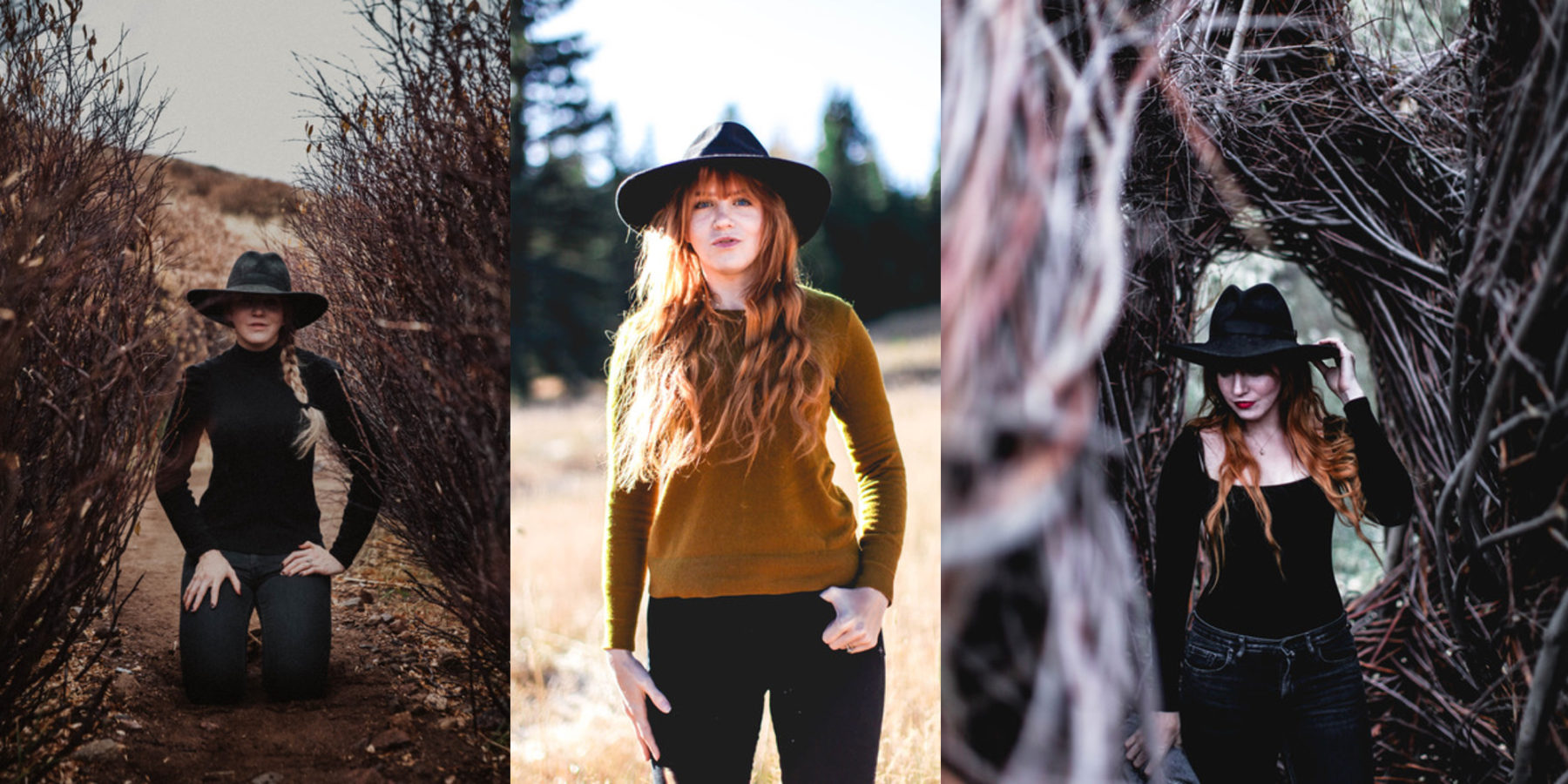
Kate Kavanaugh is an entrepreneur and regenerative agriculture advocate who co-owns and operates Western Daughters Butcher Shoppe in Denver, Colorado. Along with her partner Josh Curtiss, Kate sells fresh, local, grass-fed and pasture-raised meats that are all raised and harvested within 150 miles of Denver. Although she has been featured in such notable publications as The New York Times and Forbes, Kate is most proud of the deep connections she has formed with regenerative ranchers and farmers– and the positive impact her business has had on the land.
As you’ll hear in our conversation, Kate is deeply committed to regenerative agriculture and specifically the role that ruminants play in the health of soil and grasslands in the American West and beyond. She’s also a seasoned businesswoman who has paid her dues and suffered the bumps and bruises that come with any entrepreneurial endeavor. And it is the combination of her passion, toughness, curiosity, and willingness to think outside the box that has made Western Daughters such an inspiring success story.
I had a great time chatting with Kate, and I learned a lot from our conversation. We started by talking about the story of Western Daughters–how the business began, challenges of running a brick and mortar store, and specifics around how the company supports local agriculture. We discuss Kate’s upbringing in Colorado and how she felt a deep connection to the land and the environment from an early age. We talk about Kate’s childhood commitment to vegetarianism and why she began eating meat again at age 20. We also chat about Kate and Josh’s exciting recent purchase of a farm in upstate New York, and how they plan to balance Western Daughters with farming their new land. We discuss food’s role in mental health, and Kate graciously shares some of her daily practices that help her manage anxiety and depression. Kate is a voracious reader, so there are tons of good books mentioned– be sure the check out the episode notes for links to all the books and more. Hope you enjoy!
Photos courtesy of Kate Kavanaugh
Click Here to Download on iTunes
—
Click Here to Download on Spotify
—
Click Here to Download on Google Play
—
Click Here to Download on Stitcher
—
Episode Notes
Topics Discussed:
- 3:15 – Western Daughters Butcher Shoppe, explained
- 4:45 – Kate’s early interest in agriculture
- 6:15 – Kate’s seriousness as a child
- 8:45 – Ending her run with vegetarianism
- 10:30 – Authors that helped Kate understand regenerative ag
- 11:15 – Starting Western Daughters
- 13:15 – Tribalism around food
- 15:45 – New York Times article
- 17:45 – Working with farmers and ranchers
- 22:45 – The ins and outs of regenerative ag
- 29:15 – The challenges of explaining regenerative ag to the masses
- 30:45 – Unexpected challenges of running Western Daughters
- 34:45 – Economic challenges of regenerative ag
- 37:45 – Kate and Josh’s new farm!
- 40:15 – Realities of running a brick and mortar business
- 45:15 – Thoughts on leaving the West
- 49:00 – Advice to people who want to farm
- 53:00 – Heroes and mentors
- 55:30 – Managing mental health
- 1:00:45 – Diet’s role in mental health
- 1:03:45 – Favorite books
- 1:04:45 – Favorite documentaries
- 1:06:15 – Favorite location in the West
- 1:07:15 – Most powerful outdoor experience
- 1:08:45 – Best advice ever received
- 1:10:45 – Request of the listeners
Information Referenced:
- Kate on Instagram
- Western Daughters Butcher Shoppe
- New York Times article
- Range by David Epstein
- For the Love of Land by Jim Howell
- Wendell Berry
- Aldo Leopold
- The Omnivores Dilemma by Michael Pollan
- Melissa Clark
- EatWild.org
- Cottonwood Creek Farms
- Earl Butz
- Jim Howell interviews One and Two
- Land Institute’s roots photo
- Homestead Act
- Heather Hansman episode
- Animal, Vegetable, Miracle by Barbara Kingsolver
- Wes Jackson
- Cate Havstad episode
- USDA
- AgAmerica
- Slow Money
- The Biggest Little Farm
- Clint and MaryKay Buckner
- Jillian Lukiwski episode
- Consulting the Genius of the Place by Wes Jackson
- The Land Institute
- Waking Up meditation app
- For the Love of Soil by Nicole Masters
- The Third Plate by Dan Barber
- Fantastic Fungi
- Botany of Desire by Michael Pollan
- Zach Bush
Enjoy this episode? Then you might like these as well:
- Cate Havstad – Cultivating Creativity & Craftsmanship
- Christine Su – The Business of Healthy Grasslands
- Sarah Wentzel-Fisher – Conservation in the Radical Center
- Emilene Ostlind – Storytelling for the New West
- Live in Bozeman – Cate Havstad, Jillian Lukiwski, Becca Skinner & Juanita Vero
Peter Heller – Chasing the Flow
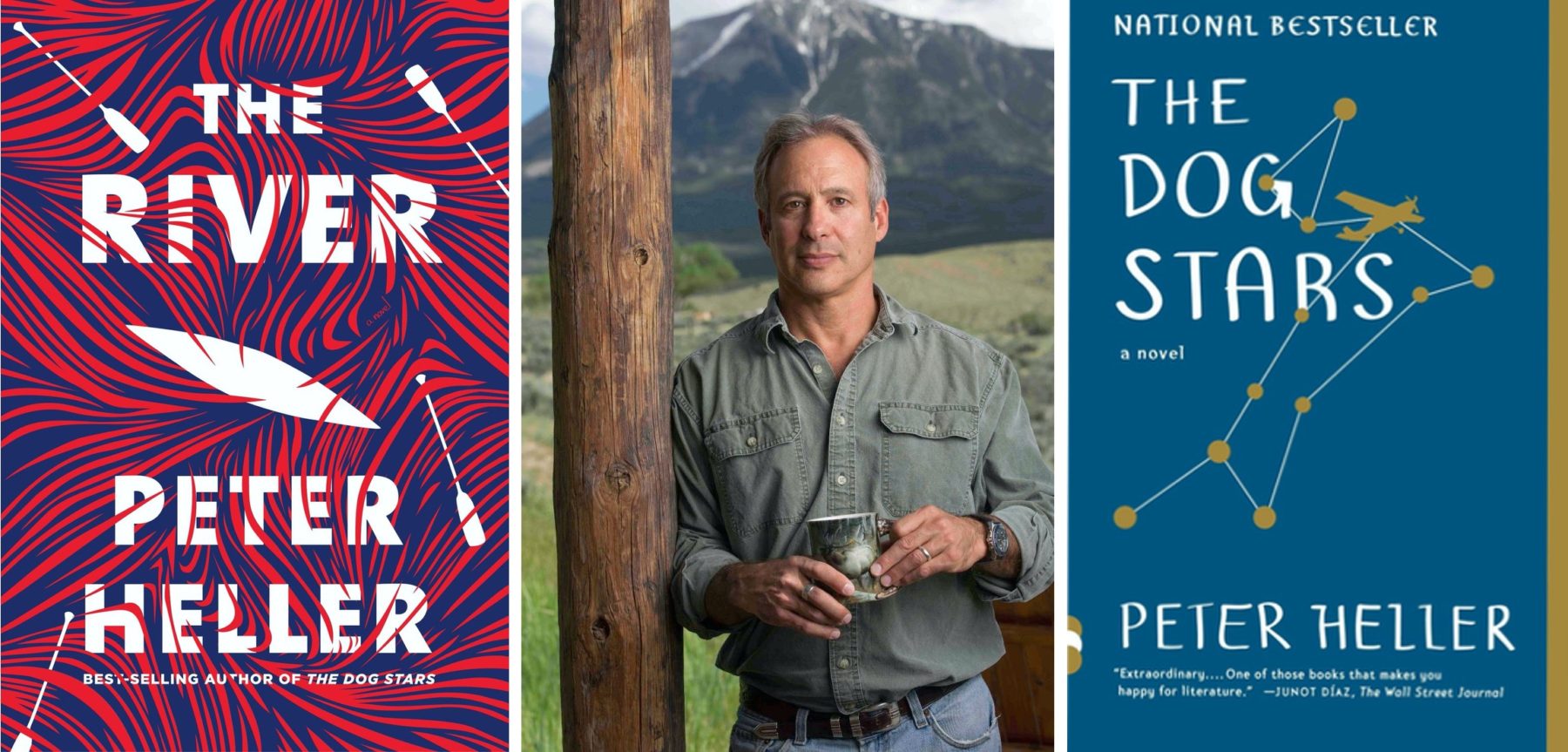
Peter Heller is a renowned novelist, as well as an award-winning adventure writer and former contributing editor to Outside, Men’s Journal, and National Geographic Adventure. Since age eleven, Peter has been committed to the craft of writing, and his lifelong love of words and stunning prose are the threads that connect all of his work– from fiction to non-fiction to poetry. His most recent novel, The River, is the culmination of Peter’s decades of storytelling– the book weaves a masterful tale that combines adventure, deep friendships, wild places, chilling violence, and page-turning suspense. [For those of you who subscribe to my bimonthly book recommendations email, you may remember that I devoured the book in less than two days and absolutely loved it!]
Peter was born, raised, and educated on the east coast but headed West soon after college to paddle rivers and immerse himself in the wide-open spaces of the American West. His writing career has taken him to some of the most far-flung corners of the earth. Still, he always returns to the Rockies, where he currently splits his time between Denver and Paonia, a rural community on Colorado’s Western Slope. The people and landscapes of the West play prominent roles in all of Peter’s novels, and his talent for capturing the beauty and complexity of people and wild places is second to none.
We met up at Peter’s home in Denver and had a fun, wide-ranging conversation covering everything from his early obsession with writing to his current writing process to our mutual love of surfing. We discuss his first big paddling trip in Colorado, which started his decades-long love affair with the West. We talk about his early days as a professional writer– discussing everything from how he made it work financially to how he dealt with rejection. We dig into the specifics of his daily writing routine, and why he stops writing at 1,000 words, even if he is mid-scene. We also talk about how he avoids thinking when writing novels, his obsession with “finding the flow” in writing and outdoor pursuits, the importance of momentum, and balancing physical exuberance with the writer’s life. If you love Peter’s books, the West, or learning about writers, you will love this episode.
And as a special bonus, I’m giving away a copy of The River via Instagram. On Friday, January 3, 2020, I’ll post all the details, so head to my Instagram page, give me a follow, and be on the lookout for the giveaway. You can either search by my name- Ed Roberson- or follow this link. The River was one of the best books I read in 2019, so I know you’ll enjoy it too.
Thanks again to Peter for being so generous with his time and so insightful with his answers. I hope you enjoy!
Photo of Peter by John Burcham
Click Here to Download on iTunes
—
Click Here to Download on Spotify
—
Click Here to Download on Google Play
—
Click Here to Download on Stitcher
—
Episode Notes
Topics Discussed:
- 5:00 – Where Peter grew up
- 6:30 – Deciding to be a writer at 11-years old
- 10:00 – Specific disciplines to become a writer
- 10:40 – Peter’s parents’ backgrounds and their influence
- 13:30 – Peter’s love of writing as a career
- 14:50 – Childhood adventures
- 15:40 – Falling in love with the West
- 18:30 – Starting out as a writer
- 21:00 – Dealing with early rejections
- 22:50 – First published story
- 25:00 – “Not thinking” while writing fiction
- 29:00 – Starting Dog Stars
- 31:30 – Peter’s method – 1,000 words per day
- 36:00 – The inevitability of Peter’s stories
- 38:30 – Winslow Homer paintings and other real-life influences [Click to see “The Gulf Stream” painting]
- 41:45 – Importance of confidence and craftsmanship in writing
- 46:50 – Importance of momentum
- 49:00 – Love of entering “the zone” through writing, surfing, fishing, and more.
- 51:30 – Peter’s love for Paonia
- 55:00 – Surfing!
- 1:02:15 – Favorite books
- 1:04:00 – Favorite location in the West
- 1:05:45 – Best advice ever received
Information Referenced:
- Peter Heller
- The River by Peter Heller
- All of Peter’s books
- St Anne’s School
- E.E. Cummings
- In Our Time by Ernest Hemingway
- Mad Men
- Nantahala Outdoor Center
- Fishers Island
- John Keats
- The Art of Fiction by John Gardner
- Carlton Cuse
- Elmore Leonard
- Graham Greene
- Life Work by Donald Hall
- The Gulf Stream by Winslow Homer
- NOLS
- Paonia, Colorado
- Brian Calvert episode
- High Country News
- Kook by Peter Heller
- Blood Meridian by Cormac McCarthy
- Mark Twain
Enjoy this episode? Then you might like these as well:
- Hampton Sides – Live at the Aspen Institute
- Chris Dombrowski – Words, Water & the West
- Pete McBride – A Passion for Water & Wild Places
- Heather Hansman – Demystifying Water in the West
- Sara Dant – A Deep Dive Into the History of the West
- William deBuys – Sage of the Southwest
Hal Herring – A Man of Words & Wild Places
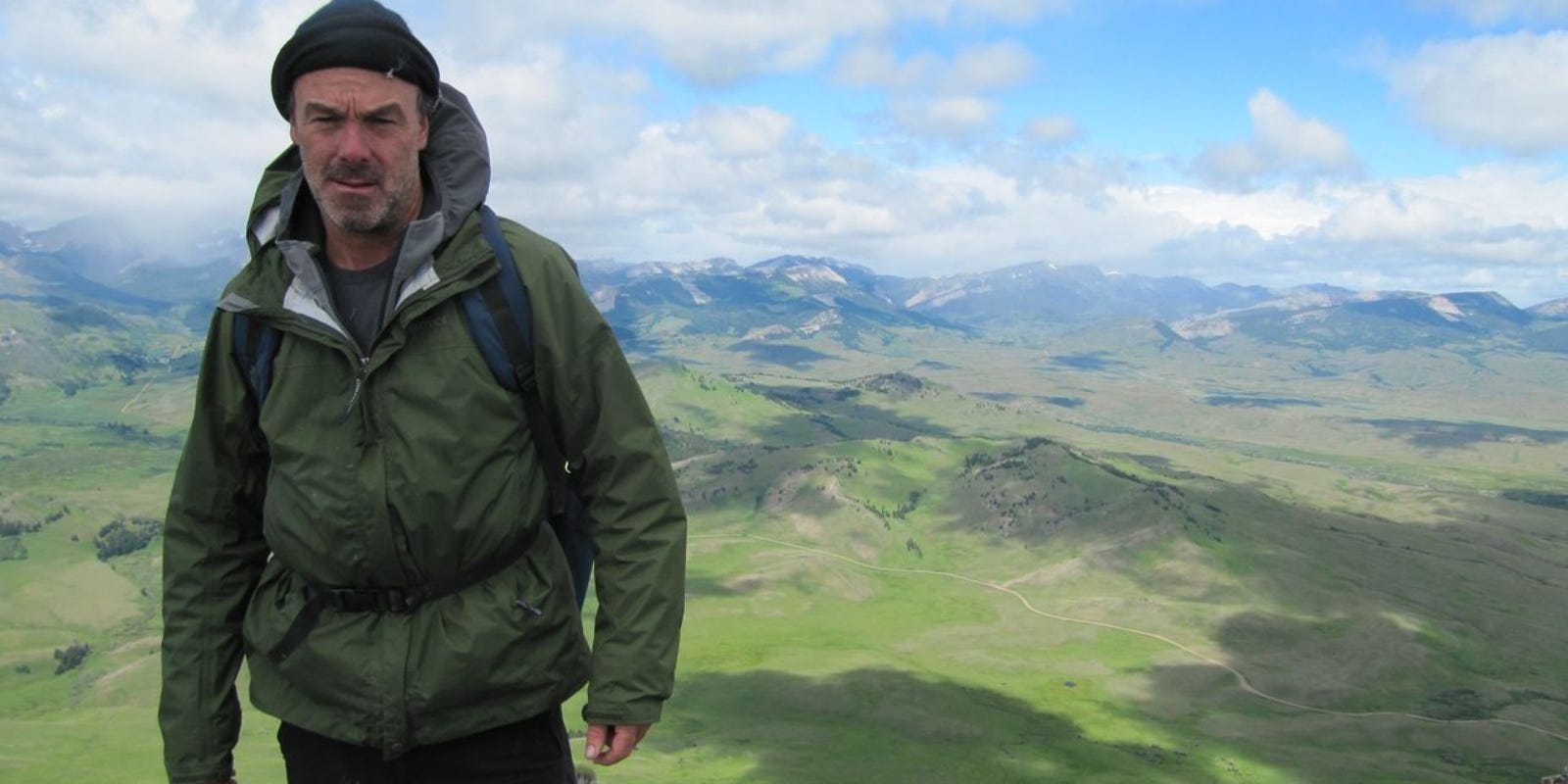
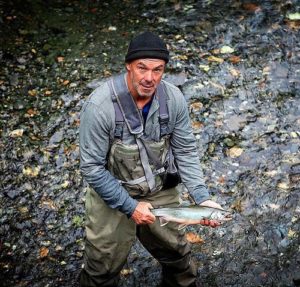
Hal Herring is an award-winning journalist and writer whose work has appeared in such notable publications as the Atlantic, the Economist, and Orion. He is also a contributing editor at Field and Stream and a regular contributor to High Country News. Most recently, Hal has made a name for himself in the podcast world as the host of Backcountry Hunters and Anglers’ popular podcast, called the Podcast & Blast with Hal Herring. If there’s one common thread that runs through Hal’s prolific and wide-ranging career, it’s a love of the West, its people, and its public lands.
I’ve long admired Hal and specifically his refusal to be boxed in by any particular political party or close-minded ideologies. He could be considered progressive on some issues and conservative on others, but his opinions are always the result of a lot of deep thinking, extensive research, and thorough consideration. And as you’ll hear him say in this interview, he’s endlessly curious and always open to having his mind changed– two characteristics that I personally admire and try my best to emulate, especially when it comes to issues here in the American West.
Hal and I covered a lot in a little over an hour, and regular listeners will enjoy his depth and breadth of knowledge, as well as his unbridled passion for the West. We start by discussing his upbringing in Alabama and why he decided to move West. We talk a lot about books, and Hal offers up a massive selection of titles that have influenced his work, most of which have never before been mentioned on this podcast. We discuss the importance of journalism at this specific moment in history, and how he goes about finding the facts in today’s overwhelming deluge of media. We also chat about his work ethic, family, his current home in Augusta, Montana, his climbing and mountaineering adventures, and his recent success in the world of podcasts.
There’s a lot to learn and digest in this episode, so be sure to check out the episode notes for links to everything. Also, I hope you enjoy the southern accents– I think Hal really brought mine out in full force. Hope you enjoy!
Photos courtesy of Hal Herring
Click Here to Download on iTunes
—
Click Here to Download on Spotify
—
Click Here to Download on Google Play
—
Click Here to Download on Stitcher
—
Episode Notes
Topics Discussed:
- 3:05 – Growing up in Alabama
- 4:15 – Intro to Montana
- 5:50 – Deep love of Alabama
- 6:45 – Early years writing & traveling
- 9:30 – Source of Hal’s early wanderlust
- 11:35 – When Hal got serious about writing
- 15:00 – Importance of constraints
- 18:00 – How Hal’s work on public lands influences his journalism
- 20:45 – Decision to focus on public lands
- 22:10 – Need for real journalism
- 25:00 – Where does Hal get his news?
- 29:00 – Public land discussion
- 32:15 – Optimistic or pessimistic for the future of public lands?
- 36:30 – Mountaineering and climbing
- 41:15 – Having kids
- 44:00 – Hal’s foray into podcasting
- 48:15 – Most important books
- 50:50 – Connection with Teal Blake
- 55:30 – Importance of preparation and hard work
- 57:15 – Hal’s new book
- 1:00:30 – Favorite films
- 1:01:50 – Favorite location in the West
- 1:06:30 – Request of the listeners
Information Referenced:
- Tom McGuane
- At Play in the Fields of the Lord by Peter Matthiessen
- Peter Matthiessen
- Davis Bacon wages
- Alan Jones
- Fishboy and Ice at the Bottom of the World by Mark Richard
- City of Thieves by David Benioff
- Whitebark pine
- Chronic wasting disease
- Missouri Border Wars
- Wildwood Boys by James Carlos Blake
- Woe to Live On by Daniel Woodrell
- Ride with the Devil by Daniel Woodrell
- Squatter Sovereign
- Ed Abbey
- Federalist Papers
- Bernard DeVoto
- El Capitan of the Bitterroots
- NOLS
- Backcountry Hunters and Anglers
- Rock Springs by Richard Ford
- A Piece of My Heart by Richard Ford
- Wildlife in America by Peter Matthiessen
- Jim Harrison
- Ninety-two in the Shade by Tom McGuane
- Hal’s podcast with Tom McGuane
- Rinella’s podcast with McGuane
- Teal Blake episode
- Guy De Maupassant
- Stephen King’s On Writing
- Draft No. 4 by John McPhee
- Erst Junger
- Seven Beauties
- The Accidental Life by Terry McMillan
- The Heart of the Game
Enjoy this episode? Then you might like these as well:
- Mark Kenyon – A Passion for Public Lands
- David Gessner, Part 2 – Ambition, Art, and Arête
- Mike Phillips – Audacious Goals, Relentless Action
- Chris Dombrowski – Words, Water & the West
- Sara Dant – A Deep Dive Into the History of the West
- Becca Aceto – Forging Her Own Path in the West
Mark Kenyon – A Passion for Public Lands
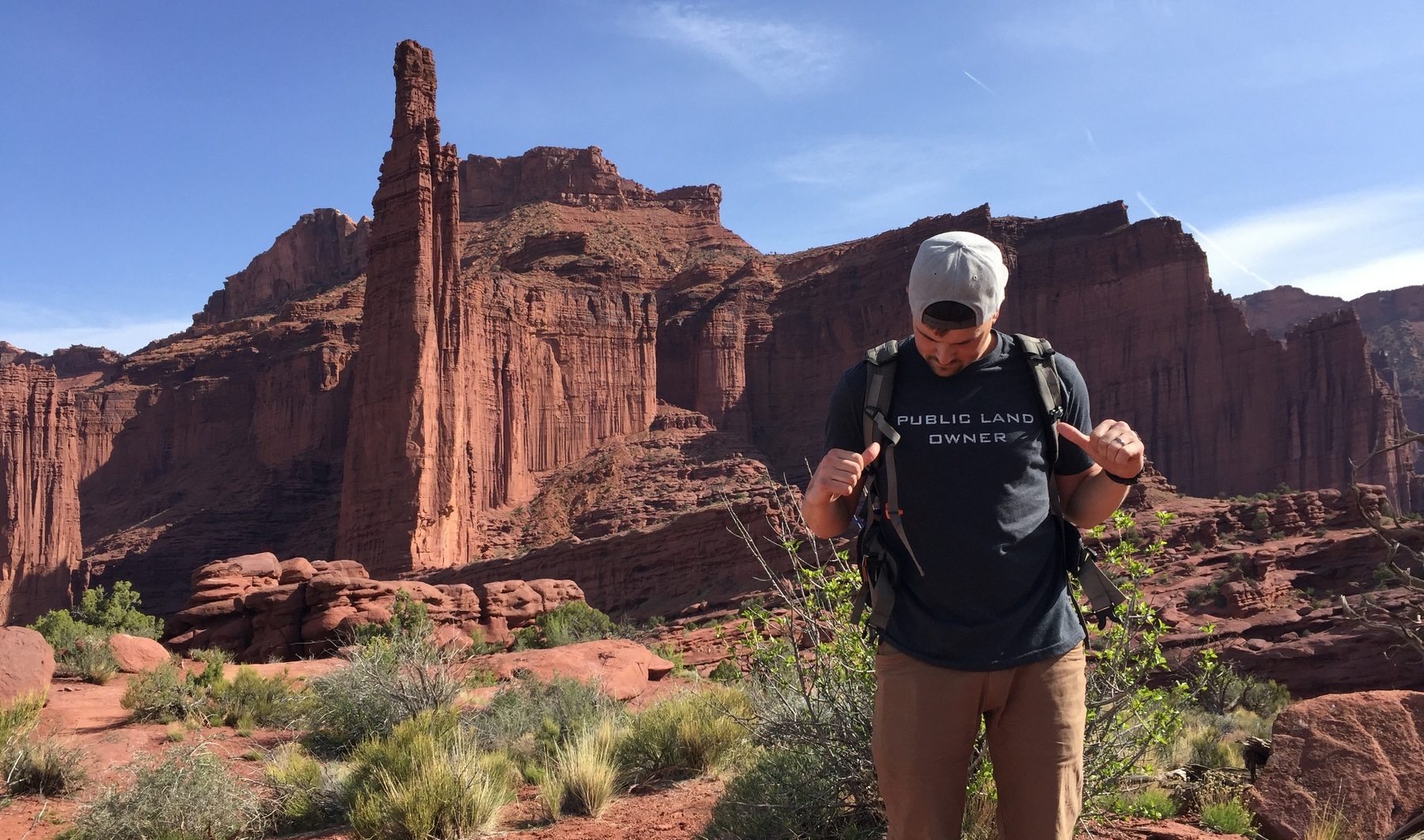
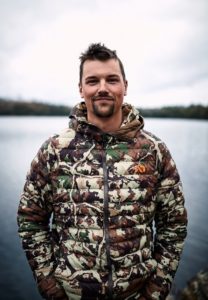
Mark Kenyon is a conservationist, outdoorsman, and author of the fantastic new book That Wild Country: An Epic Journey through the Past, Present, and Future of America’s Public Lands. For years, Mark has been well-known and respected in the hunting world, thanks in part to his website, blog, and podcast called Wired to Hunt, which focuses on the finer points of big game hunting. Mark and Wired to Hunt recently joined forces with Steven Rinella’s MeatEater, which has helped to amplify Mark’s impact on the worlds of hunting and conservation. That Wild County is the culmination of many years of Mark’s adventures, experiences, and writing, and I expect that Mountain & Prairie listeners will thoroughly enjoy it.
From the outside, it appears that Mark is cruising through life, living the dream– he hunts, writes, creates shows, and generally pursues his passions at full speed on a daily basis. But when you scratch below the surface, you’ll see that Mark’s professional path has been (and still is) defined by extreme focus and hard work, as well as an insatiable curiosity for everything from whitetail deer to US history to the finer points of public lands legislation. He walked away from an impressive and safe career at Google to merge his vocation and avocation, choosing to bet on himself rather than corporate America. And his bet paid off– between his podcasts, articles, essays, videos, and, now, a book, Mark’s body of work has educated and inspired countless people throughout the world.
We started our conversation by discussing That Wild Country, which is one of the most engaging and “user-friendly” explanations I’ve read of the history of public lands, as well as the modern-day controversies surrounding public lands. We discuss the conservation legacy of the other Roosevelt– Franklin D Roosevelt– and how his presidency revived our nation’s commitment to public lands stewardship. We dig into the details of the Pittman-Robertson Act, a historic piece of legislation that all of us who love the outdoors need to understand. We discuss the short and impactful life of Bob Marshall, the famed conservationist who is the namesake of Montana’s legendary Bob Marshall Wilderness. We also discuss a lot about Mark’s personal backstory– his decision to leave Google for Wired to Hunt, his recent merger with Meateater, how having a son has changed his perspective, his daily routine for maximum productivity, and much more. And finally, we touch on why Michigan seems to produce so many committed conservationists and outdoor writers.
I’ve admired Mark and his consistent, high-quality work for years, so it was a thrill to finally chat. I encourage you to check out That Wild Country and the Wired to Hunt Podcast, but in the meantime, enjoy this wide-ranging conversation with Mark Kenyon.
Photos courtesy of Mark Kenyon
Click Here to Download on iTunes
—
Click Here to Download on Spotify
—
Click Here to Download on Google Play
—
Click Here to Download on Stitcher
—
Episode Notes
Topics Discussed:
- 5:00 – An overview of “That Wild Country”
- 9:00 – Timeline of writing the book
- 11:00 – FDR’s influence on the conservation movement
- 16:30 – Ins and outs of the Pittman-Robertson Act
- 20:50 – Arguments around a “backpack tax”
- 21:40 – Who was Bob Marshall?
- 25:00 – How to write about dry subjects in an entertaining manner
- 29:00 – The effort of writing a book
- 29:40 – How having a kid changed Mark’s working style
- 32:20 – Mark’s morning routine
- 35:45 – Mark’s unique career path
- 38:00 – Epiphany moment in Mark’s career
- 40:30 – Merging with Meateater
- 42:30 – Secrets to Wired to Hunt’s success
- 47:00 – Mark’s “Back 40” project
- 50:00 – Why does Michigan produce so many outdoor leaders?
- 52:45 – New information learned about Theodore Roosevelt
- 57:45 – Optimism or pessimism for the future of public lands
- 1:01:30 – Important non-profits that Mark supports
- 1:06:45 – Mark’s favorite books
Information Referenced:
- Mark Kenyon
- Wired to Hunt
- That Wild Country: An Epic Journey through the Past, Present, and Future of America’s Public Lands by Mark Kenyon
- MeatEater
- Pittman-Robertson Act
- Deep Work by Cal Newport
- “Backpack Tax” article
- Franklin Roosevelt
- Bob Marshall
- Gifford Pinchot
- Crush It by Gary Vaynerchuk
- Tim Ferriss
- Steven Rinella
- Seth Godin
- Seth Godin’s failure blog post
- The Back 40
- Backcountry Hunters and Anglers
- Theodore Roosevelt Conservation Partnership
- Rick Bass
- Why I Came West by Rick Bass
- A Scavenger’s Guide to Haute Cuisine by Steven Rinella
- American Serengeti by Dan Flores
Matt Skoglund – Adventures in Bison Ranching
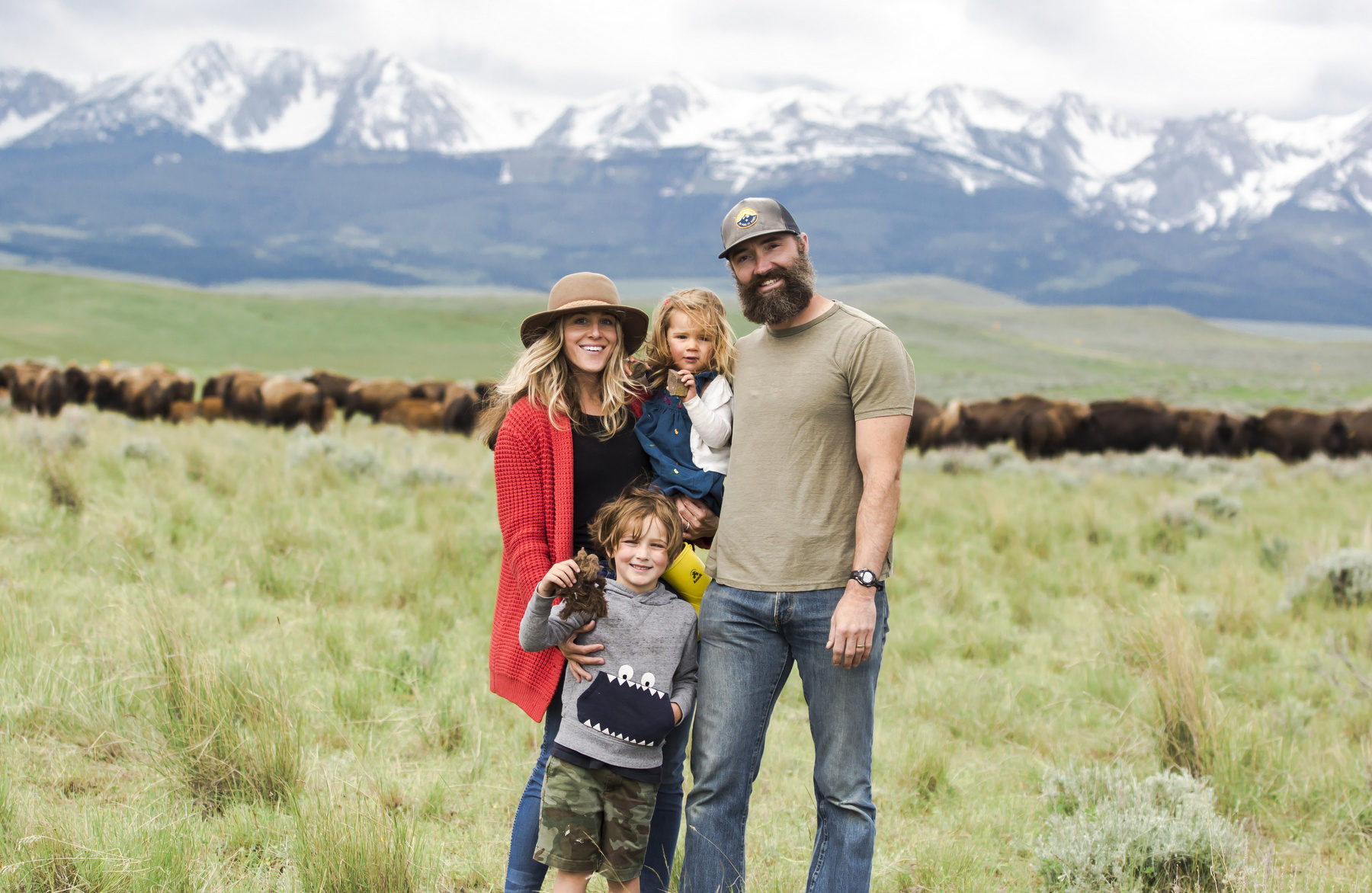

Matt Skoglund and his wife Sarah are bison ranchers and the owners of the North Bridger Bison Ranch, which is located in Montana’s iconic Shields Valley. The Skoglund’s bison operation is deeply rooted in Holistic Management and Regenerative Agriculture principles, and their goal is to produce healthy and delicious meat, while simultaneously improving the land, helping the environment, and contributing to Montana’s economy. Through hard work and genuine curiosity, Matt has found his life’s true calling in bison ranching—a challenging yet deeply rewarding business that combines so many of Matt’s passions into one dream job.
By now, you may be assuming that Matt comes from a western ranching family or perhaps holds agriculture degrees from a land-grant university. But the reality is that Matt grew up in the Chicago area, attended college in the northeast, then law school, then began a career as an attorney in the litigation department of a large Chicago law firm. After several years of practicing law, he and Sarah could no longer resist the desire to move West, so they took a leap of faith and moved to Bozeman. Matt found a job with the Natural Resources Defense Council (NRDC), where he worked for nearly ten years, digging deep into many conservation issues that affect the Greater Yellowstone Ecosystem, including bison. Finally, in 2018, after several years of dreaming and planning, they pulled the trigger, bought some land, and started their adventure in bison ranching.
Matt and Sarah’s story is inspiring and instructive, especially for those who have dreams of pursuing lives and careers in the West. Instead of jumping all over the place like I normally do, this conversation is pretty much split into two main sections. The first half covers all the details about North Bridger Bison, how they acquired the ranch, their process of field harvesting the meat, who their customers are, and some of the biggest surprises of running their own business. The second half covers some broader personal topics, such as how being a father has affected Matt’s outlook, why he was able to walk away from a lucrative career in law, and the life lessons learned from being a college hockey player. Whether you are strictly interested in agriculture or only interested in people’s personal evolutions, there are aspects of the Skoglund’s journey that will be fascinating to both groups.
Be sure the check the episode notes for a list of everything we discussed. Hope you enjoy!
Header photo courtesy Courtney Green, other photos courtesy of Matt Skoglund
Click Here to Download on iTunes
—
Click Here to Download on Spotify
—
Click Here to Download on Google Play
—
Click Here to Download on Stitcher
—
Episode Notes
Topics Discussed:
- 4:00 – The location of the ranch
- 5:45 – Why they chose the Shields Valley
- 8:15 – Details around purchasing the ranch
- 12:30 – Genesis of the bison ranch idea
- 14:30 – Books that shaped Matt’s business philosophy
- 16:00 – Transitioning from dreaming about ranching to doing it
- 18:15 – Criteria when searching for land
- 22:45 – Collaboration among bison ranchers
- 25:30 – Details of field harvesting bison
- 30:40 – Biggest surprises of bison ranching
- 36:00 – How past professional experiences inform bison ranching
- 37:00 – Lessons learned from stressful situations
- 39:30 – Transition from the law to conservation
- 42:00 – Moving to Bozeman
- 43:00 – Getting off the big law firm “treadmill”
- 44:50 – Where Matt got his independent streak
- 47:30 – Lessons learned from high-level athletics
- 49:30 – How having kids changed Matt’s life and perspective
- 54:30 – Three specific heroes and mentors
- 58:45 – Aldo Leopold obsession
- 1:00:15 – Favorite books
Information Referenced:
- North Bridger Bison
- North Bridger Bison on Instagram
- Let My People Go Surfing by Yvon Chiounard
- Buffalo for the Broken Heart by Dan O’Brien
- Natural Resources Defense Council
- Wild Idea Buffalo
- Dan O’Brien
- Theodore Roosevelt
- Aldo Leopold
- A Sand County Almanac by Aldo Leopold
- American Buffalo by Steven Rinella
- Last Stand by Michael Punke
Enjoy this episode? Then you might like these as well:
- Duke Phillips IV – Living with the Land
- Duke Phillips III – A Vision for the New West
- Christine Su – The Business of Healthy Grasslands
- Jay Kleberg – True Dedication to Conservation, Adventure & Texas
- Jim Howell, Part II – Restoring Ecological Capital Through Grazing
Becca Aceto – Forging Her Own Path in the West

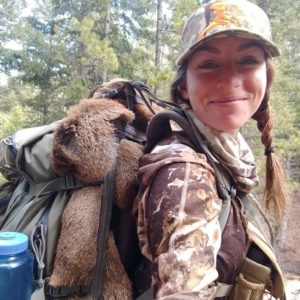
Becca Aceto is an Idaho-based conservationist and is currently the Communications and Outreach Coordinator for the Idaho Wildlife Federation. Prior to this position with IWF, she worked in a variety of jobs closely connected to Idaho’sIdaho’s rugged landscapes—as a naturalist, Forest Service wilderness ranger, and a Forest Service Wildlife Technician. Given her professional commitment to the lands and wildlife of the northern Rockies, you might assume that she’s a native westerner, but in fact, she grew up in Ohio and attended the University of Kentucky before heading West after graduation.
As the oldest of six siblings, Becca has never been shy about “putting herself out there,” learning new skills, or diving head-first into new experiences. She’s studied various types of conservation in far-flung places like Thailand and Costa Rica, and she moved to the small town of Stanley, Idaho, without knowing a soul who lived there. Most recently, in 2017, she took up hunting and has fallen in love with the sport, becoming the Idaho ambassador for the sportswomen’s group Artemis. Becca’s willingness to step outside her comfort zone both professionally and personally can serve as a blueprint for many non-western young people who want to build a fulfilling life and career for themselves in the Rocky Mountains.
Becca and I caught up between a few of her fall hunts and had a wonderful conversation, discussing everything from her early days in Ohio to her current life and work in Idaho. We started by chatting about her upbringing—her childhood spent fishing in a small neighborhood creek, her love of horses, and the positive influence of her grandmother (who happens to be a Buddhist and a vegetarian). We talked about her time working as a ranger and some of the hard-won lessons she learned by suffering in the backcountry. We talk a lot about her relatively new journey becoming a hunter and some of the challenges and opportunities that come with learning to hunt as an adult. We also discuss the important conservation work of the IWF, in politics, on-the-ground stewardship, and public lands advocacy. As usual, we discuss lots of books and the best advice she’s ever received.
We cover a lot in a little over an hour, and I jump around with my questions even more than usual, so be sure the check out the episode notes for a list of everything we discuss. Enjoy!
All photos courtesy of Becca Aceto
Click Here to Download on iTunes
—
Click Here to Download on Spotify
—
Click Here to Download on Google Play
—
Click Here to Download on Stitcher
—
Episode Notes
Topics Discussed:
- 4:00 – Where Becca grew up
- 6:10 – Decision to study natural resources at University of Kentucky
- 8:45 – Working in Costa Rica
- 10:00 – Decision to move West
- 11:30 – First jobs in Idaho
- 14:30 – Bravery to move out West on her own
- 16:30 – Becca’s Buddhist, vegetarian grandmother’s influence
- 19:30 – Working conditions as a forest ranger
- 21:00 – Importance of discomfort and fear
- 25:00 – Starting to work at the Idaho Wildlife Federation
- 29:15 – Importance of politics
- 30:00 – Threat to public lands
- 34:30 – Learning to hunt
- 38:30 – Hunting lessons learned from year to year
- 42:45 – Artemis sportswomen
- 45:20 – Need for diversity in hunting and conservation
- 47:00 – Advice for novice hunters
- 49:15 – Becca’s most recent hunting trip
- 57:00 – Writing
- 1:00:15 – Favorite books
- 1:02:30 – Favorite films
- 1:04:30 – Out-of-the-ordinary hobbies
- 1:06:00 – Favorite location in the West
- 1:07:00 – Best advice ever received
- 1:08:30 – Words of wisdom
- 1:10:00 – Connect with Becca
Information Referenced:
- Idaho Wildlife Federation
- Artemis Sportswomen
- University of Kentucky
- Stanley, Idaho
- Frank Church Wilderness
- Conservation Leaders for Tomorrow conference
- National Wildlife Federation
- Coming Into the Country by John McPhee
- Encounters with the Archdruid by John McPhee
- Draft No. 4 by John McPhee
- The Solace of Open Spaces by Gretle Erhlich
- The Snow Leopard by Peter Matthiessen
- Never Cry Wolf
- 265 Images of Northern Rocky Mountain Wildflowers by Scott Earle
Enjoy this episode? Then you might like these as well:
- Melissa DiNino – Building a Unique Life in Big Sky Country
- Jillian Lukiwski – Art and Adventure in the American West
- Sarah Calhoun – Community Building Through Commerce
- Sarah Wentzel-Fisher – Conservation in the Radical Center
NEW FILMS: Colorado Conservation Heroes
NEW FILMS: Colorado Conservation Heroes
On October 3rd, Palmer Land Trust hosted the 10th Annual Southern Colorado Conservation Awards, which honored some of Colorado’s greatest conservation heroes. As part of the awards ceremony, we made a short film about each honoree, all of which are below.
I had the pleasure of working with filmmaking whiz and all-around-good-dude Blake Kimmel on the films for Pete McBride, Ranchlands, and Dr. Mike Bartolo, which took us from the base of the Maroon Bells to the irrigated farms of the Lower Arkansas Valley; from the 87,000-acre Chico Basin Ranch to the high desert of Santa Fe, New Mexico.
The results of our work is below, along with the fourth film featuring conservationists and lifetime achievement winners Lyda Hill and Nancy Lewis, which was created by Blake and some of my Palmer colleagues.
Please enjoy and share!
Pete McBride
Ranchlands
Dr. Mike Bartolo
Lyda Hill & Nancy Lewis
The 20 Most Influential Books I’ve Read in the Past 10 Years
The 20 Most Influential Books I’ve Read in the Past 10 Years
Ten years ago, my wife and I packed our bags and moved to Costa Rica. She had landed a job with an innovative international school, a professional move that built upon her impressive career and education in international development. I was a freshly minted MBA who horrified the career services people when I told them I was moving to Central America to “uhhhmmm…. surf and find a job.”
I’d entered business school at the peak of a white-hot economy, with the single-minded goal of becoming a real estate developer. Full scholarship, heavy coursework in finance, fancy internship at a publicly traded REIT, the works. So it was understandably quite a surprise to my fellow classmates and professors when I abruptly announced that I was going to be “a professional surfer with one sponsor: my wife.”
An abnormal career move for sure, but this was an abnormal time in my life. Just a year earlier, during my fancy internship, I suffered a serious health scare that shocked the shit out of me and upended many of my personal and professional priorities. As I recovered during the ensuing months (fall of ’08), the Great Recession wrecked the economy, tanking the real estate markets and bankrupting many of the wannabe real estate barons whom I’d envied before grad school. Approaching graduation, I was confused and directionless.
Thanks to my wife’s brains and badass job opportunities (and my scholarship and resulting lack of debt), we decided to try our luck in Costa Rica. It’s not like I was missing anything here in the States— the only profitable jobs in real estate involved foreclosing on houses.
I could (and probably will) write a book about that year in Costa Rica and what a formative experience it was for me, our marriage, and my general outlook on life. Of the many personal transformations that occurred during that year, one of the most important was my becoming a fully committed, almost-maniacal reader. I had always enjoyed reading, but in a half-assed, do-it-when-the-mood-strikes kind of way. In Costa Rica, I locked in on books. The lack of distractions, my search for meaning in the aftermath of the health scare, and the uncertainty around my career aspirations created an environment ripe for becoming addicted to big, new, deep ideas—ideas that can only be derived from books, and lots of them.
The books I read during that year in Costa Rica, and in the years since, have immeasurably shaped my career, priorities, friendships, family, work ethic, and ideas about community. Books helped guide me through what was a very uncertain period of my life and allowed me to emerge with a clear set of values and ideals for work, play, and even politics. More concretely, these books led to the creation of the podcast, my obsession with ultra-endurance, and a fulfilling career in conservation—twists and turns in my life’s path that I could’ve never predicted.
Of the hundreds of books that I’ve read during the past ten years, below, in no particular order, are the most influential—the ones that triggered specific changes in my perspective that led to lasting improvements in all aspects of my life. These books—and the habit of reading a lot—has proven to be the second-most important* influence on my vocation, avocations, creativity, relationships, and spiritual pursuits.
I hope you find a few titles below that shake up your thinking, as they did mine. Perhaps some of these ideas will lead you down a new path, toward an exciting and fulfilling destination you don’t even know exists.
The Rise of Theodore Roosevelt by Edmund Morris – The most important book I’ve ever read. TR’s boundless energy and optimism, combined with his laser-focused sense of purpose, showed me what can happen when a person chooses to push beyond the boundaries of what conventional wisdom says is possible.
Linchpin: Are You Indispensable? by Seth Godin – This was the first Seth Godin book I read, and I’ve since almost read everything he’s written. Linchpin redefined my approach to work, an approach that flew in the face of what I had been taught throughout my early career and formal business education.
Don’t Bite the Hook: Finding Freedom from Anger, Resentment, and Other Destructive Emotions by Pema Chodron – Daily mediation has proven to be the most important and impactful practice of my entire life. I’ve read dozens of books on meditation, but Pema’s work is hands-down the best. This is my favorite of all of her life-changing books, and I listen to the audio version repeatedly.
Deep Work: Rules for Focused Success in a Distracted World by Cal Newport – Nothing beats old-fashioned concentration, but unfortunately, our ability to focus is being compromised by overwhelming electronic distraction. This book helped me learn to block out the bullshit and get to work.
The War of Art: Break Through the Blocks and Win Your Inner Creative Battles by Steven Pressfield – Pressfield’s idea of “The Resistance” and his thoughts on how to fight it continue to guide me in all of my professional and personal endeavors.
Blood and Thunder: The Epic Story of Kit Carson and the Conquest of the American West by Hampton Sides – This master class in narrative history kickstarted my obsession with the history of the American West and laid the groundwork for the podcast and its many associated side projects.
What to Do When It’s Your Turn (and It’s Always Your Turn) by Seth Godin – I started my book recommendations email and podcast soon after reading this book, two decisions that were nerve-wracking at the time, but have since led to opportunities that I would’ve never once thought possible.
Extreme Ownership: How U.S. Navy SEALs Lead and Win by Jocko Willink and Leif Babin – The book’s basic premise is, “You are responsible for everything, and everything is your fault.” Adopting this mindset has been one of the best perspective shifts of my life.
Tribe: On Homecoming and Belonging by Sebastian Junger – I think about this book daily and have given it to countless friends. It woke me up to the importance of purpose and community, and how we humans must have both if we want to thrive.
For the Love of Land: Global Case Studies of Grazing in Nature’s Image by Jim Howell – This book sparked my “ah-ha” moment around the importance of grasslands and the invaluable role that grazing can play in everything from ecosystem biodiversity to carbon sequestration.
Free Will by Sam Harris – Harris makes a damn good argument that there is no such thing as free will, that we are simply the product of our past experiences and genetics. This seemed crazy and depressing to me at first glance but has actually led to my being more compassionate to others and myself.
Born to Run: A Hidden Tribe, Superathletes, and the Greatest Race the World Has Never Seen by Christopher McDougall – Like many people, this book piqued my interest in ultrarunning. Even though I’d never run more than 18 miles, I signed up for a 50-miler soon after reading it, which started my obsession with endurance sports and led to some of the most rewarding experiences of my life.
My Green Manifesto: Down the Charles River in Pursuit of a New Environmentalism by David Gessner – One quote in particular has stuck with me for years after reading this book: “It is not my place to offer pep talks, aphorisms, or dictums. But if I had to give one piece of practical advice it would be this: Find something that you love that they’re fucking with and then fight for it. If everyone did that–imagine the difference.”
How to Change Your Mind: What the New Science of Psychedelics Teaches Us About Consciousness, Dying, Addiction, Depression, and Transcendence by Michael Pollan – Building on my well-established meditation practice, this book introduced me to unfairly maligned tools that allow for a deeper understanding of consciousness and offer a solution for improving mental health.
Theodore Roosevelt’s Letters to His Children by Theodore Roosevelt – I consider this compilation to be the best parenting book ever written. A shining example of how a man can simultaneously be professionally ambitious and hardworking while also being a dedicated and loving father.
The 4-Hour Workweek: Escape 9-5, Live Anywhere, and Join the New Rich by Tim Ferriss – Despite its disgustingly cheesy title and horse shit self-help flavor, this book drastically shifted my thinking around how I use my time. It also caused a paradigm shift in my thinking around what I need out of a “job.”
It All Turns on Affection: The Jefferson Lecture and Other Essays by Wendell Berry – The idea of “boomers” and “stickers” caused me to reexamine my professional priorities and goals, and put a specific name to the types of people I don’t and do want to spend time with. It also gave me a deeper appreciation for my family’s multigenerational roots in eastern North Carolina.
Boyd: The Fighter Pilot Who Changed the Art of War by Robert Coram – One of the most influential soldiers in the history of our modern military was impactful because he refused to follow bullshit rules or be distracted by silly conventions. Once again, most innovators are rebellious.
Saltwater Buddha: A Surfer’s Quest to Find Zen on the Sea by Jaimal Yogis – Both surfing and meditation have led to significant transformations in my life—this book combines both. A wonderful read all the way around, but Yogis’ brilliant analogy of paddling and samsara has stuck with me for years.
The Wilderness Warrior: Theodore Roosevelt and the Crusade for America by Douglas Brinkley – A dense, sometimes challenging read, but my most important takeaway is that there have always been powerful forces trying to ruin our natural places in the name of profit… and there always will be. One person can make a difference in fighting off these economic and political interests and protecting important places.
*The first-most positive influence is my patient, kind, calm, level-headed, genius wife.
Duke Phillips III – A Vision for the New West

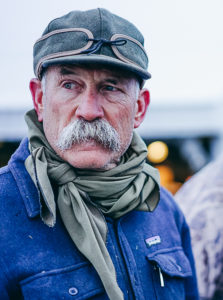
Duke Phillips III is the founder and CEO of Ranchlands, a Colorado-based, family-owned ranch management company. If Ranchlands sounds familiar, that’s because last week’s episode was with Duke’s son, Duke Phillips IV. You may remember that the younger Duke referenced his father’s philosophies around business and leadership several times, so I thought it would be fun to have the elder Duke on the podcast for an in-depth conversation. And in-depth it was—in a little under an hour we covered a wide range of subjects, everything from the future of ranching to world travels to poetry.
Duke has led a fascinating life, starting with his early years spent growing up on a remote cattle ranch in rural Mexico. His twenties were devoted to traveling and working around the world, including places like Europe, Central America, Australia, and the Bering Sea. Around age thirty he started his first “real job” in ranching, which eventually led to the formation of his company Ranchlands. Since its beginnings over two decades ago, Ranchlands has set a new standard what is possible when ranching, conservation, education, and business are successfully combined. And Ranchlands partnership with Colorado’s State Land Board is a case study in effective, mutually beneficial public-private partnerships.
I caught up with Duke on the phone, where he was gracious enough to take time away from one of his New Mexico operations to chat with me. We started by talking about his childhood in Mexico and the lessons he learned from growing up in such a wild and remote landscape. Then we discussed the series of travels and jobs that led to his founding Ranchlands in his mid-forties. From there, our conversation hits on a variety of subjects, including the joys of working with his kids, Duke III and Tess, the ins-and-outs of the bison ranching business, and his thoughts on the recent popularity of regenerative agriculture. There’s minimal overlap between the topics covered in this conversation and my conversation with young Duke, so be sure to check the episode notes for a full list of all the interesting information discussed.
Palmer Land Trust will be honoring Duke and his family at the 10th Annual Southern Colorado Conservation Awards on October 3rd in Colorado Springs. It’s going to be a fun and inspiring evening, so follow the link in the episode notes for more information and tickets. Hope to see you there
All photos courtesy of Charles Post, who also generously donated his Ranchlands photos to Palmer Land Trust for promotion of the 2019 Southern Colorado Conservation Awards.
Click Here to Download on iTunes
—
Click Here to Download on Spotify
—
Click Here to Download on Google Play
—
Click Here to Download on Stitcher
—
Episode Notes
Topics Discussed:
- 3:30 – Where Duke grew up
- 6:30 – Lessons learned from growing up in Mexico
- 8:30 – Having patience with those new to ranching
- 9:45 – Leaving Mexico
- 11:50 – World travels and adventures in his 20s
- 14:30 – First “real job”
- 15:45 – Lead-up to Chico Basin
- 17:00 – Ranchlands explained
- 22:00- Ranchlands’ grazing philosophy
- 26:00 – Joys of working with Tess and Duke IV
- 27:30 – Keys to running a successful family business
- 29:30 – Keeping kids humble
- 31:20 – Importance of positivity in life and business
- 35:00 – Importance of honesty in business
- 37:40 – Successful partnerships with Colorado’s State Board and The Nature Conservancy
- 41:30 – Running a bison ranch
- 45:00 – Regenerative agriculture
- 48:30 – Heroes and mentors
- 52:00 – The future of ranching
- 54:00 – Favorite books and poetry
- 56:30 – Most powerful outdoor experience
Information Referenced:
- Ranchlands
- Chico Basin Ranch
- Medano Zapata Ranch
- Colorado State Land Board
- The Nature Conservancy
- Bud Williams
- Ray Hunt
- Tom Lasater
- Bill Sanders
- Allan Savory
- Duke Phillips IV podcast
- Tess Leach
- Ronald Tobias
- Pablo
Naruda - Chris Dombrowski podcast
- 10th Annual Southern Colorado Conservation Awards
- SCCA Film Trailer
Enjoy this episode? Then you might like these as well:
- Duke Phillips IV – Living with the Land
- Jim Howell, Part II – Restoring Ecological Capital Through Grazing
- Jesse Womack – Land Stewardship is in His Blood
- Alexis Bonogofsky – Taking a Stand for the West
- Charles Post – Stewardship, Science & Storytelling
Duke Phillips IV – Living with the Land
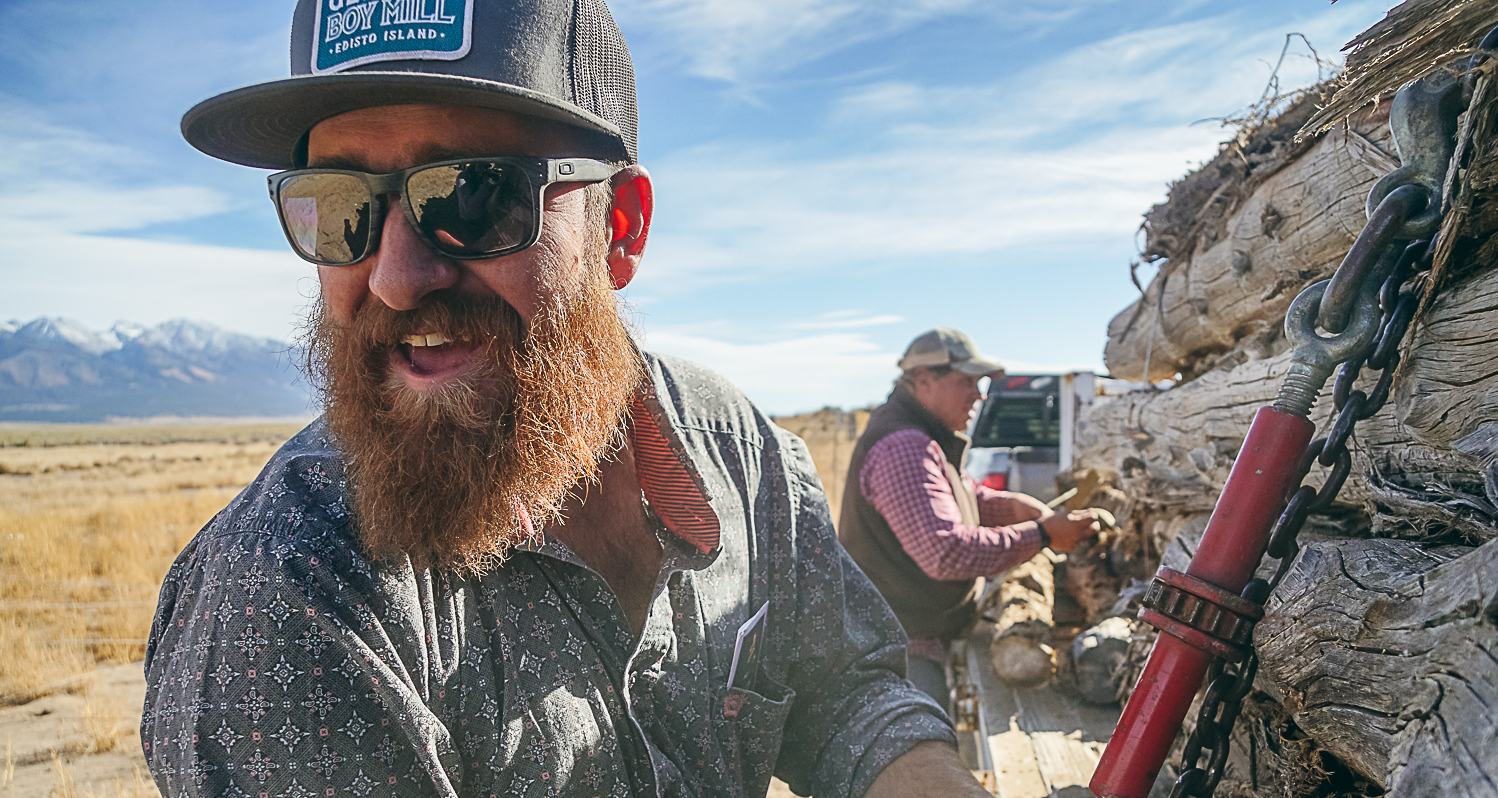
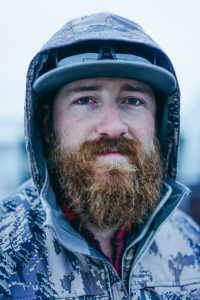
Duke Phillips IV is the Chief Operating Officer of Ranchlands, a Colorado-based ranching and ranch management company that is widely celebrated for its deep conservation ethic. Duke oversees all operations across Ranchlands’ properties, which include the renowned 87,000-acre Chico Basin Ranch and the 103,000-acre Medano Zapata Ranch. Working closely with his father Duke III and his sister Tess, the Duke and his family share a commitment to long-term land stewardship, and they embody the Ranchlands philosophy of “Working together to live with the land.”
As part of a multi-generational ranching family in southeastern Colorado, Duke grew up with one foot in the ranching culture and the other in a more traditional life of
I met Duke out at the Chico where we sat around his kitchen table and chatted– and it was truly a delightful conversation. We talked about the operations at their ranches, delving into some of the details around their breed of cattle, the Beefmaster. We discussed the apprentice and intern programs at Ranchlands, and why he and his family value teaching and educating both the general public and the next generation of land stewards. We discussed Duke’s thoughts on leadership and the importance of being humble and calm in all situations. He also explains Ranchlands open gate policy, and how that philosophy differs from some of the conventional wisdom around access to land in the West. We also discuss books, his heroes and mentors, flying helicopters, lessons learned from living and working internationally, and much more.
Finally, I wanted to note that Ranchlands will be honored at Palmer Land Trust’s 10th Annual Southern Colorado Conservation Awards on October 3rd in Colorado Springs. We’ll be debuting a short film about the Phillips family that highlights some of their innovative conservation work throughout the state. I guarantee it will be an inspiring and fun evening.
There are many important lessons to be learned from this conversation with Duke– check the episode notes below for a full list of everything we discussed. Hope you enjoy!
All photos courtesy of Charles Post, who also generously donated his Ranchlands photos to Palmer Land Trust for promotion of the 2019 Southern Colorado Conservation Awards.
Click Here to Download on iTunes
—
Click Here to Download on Spotify
—
Click Here to Download on Google Play
—
Click Here to Download on Stitcher
—
Episode Notes
Topics Discussed:
- 3:30 – Background on Chico Basin
- 6:00 – Chico Basin’s open gate policy
- 8:00 – Education and birding programs on the ranch
- 11:15 – Background on open gate policy
- 14:00 – Beefmaster cattle breed
- 19:00 – Ideal characteristics of the Beefmaster breed
- 22:15 – Good books about grazing and ranching
- 23:30 – How travel and education have shaped their business
- 25:00 – Finishing high school and starting college
- 28:00 – Choice to study liberal arts
- 30:00 – Internship and apprentice program
- 34:00 – Traits Duke looks for in employees
- 40:00 – Duke’s evolution as a leader
- 42:00 – Importance of good communication
- 44:00 – Heroes and mentors
- 49:00 – Importance of being positive
- 54:00 – Importance of controlling anger
- 56:30 – Favorite books
- 59:00 – Flying helicopters and planes
- 1:01:30 – Using helicopters in ranching
- 1:03:10 – Most powerful outdoor experience
- 1:07:30 – Favorite place in the West
Information Referenced:
- Ranchlands
- Chico Basin Ranch
- Medano Zapata Ranch
- Colorado State Land Board
- The Nature Conservancy
- Charlie Russell
- Lasater Family
- Becca Frucht
- The Lasater Philosophy of Raising Cattle by Laurance M Lasater
- Endurance by Alfred Lansing
- Empire of the Summer Moon by SC Gwynne
- Jim Kane by JPS Brown
- The Outfit by JPS Brown
- Forests of the Knight by JPS Brown
- Tribe by Sebastian Junger
- 10th Annual Southern Colorado Conservation Awards
- SCCA Film Trailer
Enjoy this episode? Then you might like these as well:
- Jim Howell – Conserving and Restoring the World’s Grasslands
- Jim Howell, Part II – Restoring Ecological Capital Through Grazing
- Sarah King – Collaborative Conservation in the American Southwest
- Jay Kleberg – True Dedication to Conservation, Adventure & Texas
- Duke Beardsley – Art in the Big, Bold American West
- Charles Post – Stewardship, Science & Storytelling
Live in Bozeman!
Live in Bozeman!
This episode is a special recording from a Mountain & Prairie live podcast in Bozeman, Montana. On August 30th more than 300 folks gathered at the historic Ellen Theatre in downtown Bozeman to watch, listen, and participate in a wide-ranging conversation with four amazing women of the West—hat-maker and farmer Cate Havstad; silversmith and all-around artist Jillian Lukiwski; adventure photographer and writer Becca Skinner; and rancher and county commissioner Juanita Vero. We also held a raffle that benefited the Montana Land Reliance and the critical conservation work it is doing throughout the state of Montana.
The show started out with a hilarious, high-energy welcome from the amazing Becca Frucht, who is one of the funniest and most unique human beings I’ve ever met. Then I spent about an hour and fifteen minutes asking the women questions about their lives, work, and a shared love of western landscapes. After that, we had some excellent questions from the audience, followed by a few words from the Jessie Weisse from the Montana Land Reliance. As you’ll hear, a good bit of our conversation centered around the land, conservation, and agriculture, so it was very fitting that the Montana Land Reliance was such an important part of the evening. My only complaint about the event is that I wish it could’ve been much longer—as you’d expect, we only scratched the surface of all the fascinating topics we could’ve discussed.
A heartfelt thank you to Cate, Jillian, Becca, and Juanita for being so open, thoughtful, and funny with all of their answers—the evening would not have been even a fraction of the success it was without their participation. Thanks to Becca Frucht for her energizing welcome and for figuring out a way to work Road House into her remarks. Thank you to the Montana Land Reliance for all of their important work throughout the state and for being part of the evening. A huge thanks to our sponsors—Chris Dombrowski Fly Fishing, Tom Morgan Rodsmiths, ONDA Wellness, Modern Huntsman, Beargrass Writing Retreat, Heyday, Head West Bozeman, and Big Agnes. And last but definitely not least, thanks to everyone who attended the event—I know we had people travel to Bozeman from many other states and even Canada for the show, so I can’t thank you all enough for being such important members of this podcast community.
It was truly a night to remember, and I’m excited to do more live shows in 2020, so stay tuned for that. But in the meantime, enjoy this audio version of the Mountain & Prairie Podcast, live in Bozeman!
All photos by Jasper Poore
Click Here to Download on iTunes
—
Click Here to Download on Spotify
—
Click Here to Download on Google Play
—
Click Here to Download on Stitcher
—
Episode Notes
Topics Discussed:
- 3:30 – Welcome from the great Becca Frucht
- 8:30 – A few words from Ed
- 11:30 – Quick intros
- 13:00 – Update on Cate’s involvement in farming
- 15:30- Juanita’s entrance into county politics
- 20:00 – Jillian’s evolving connection to her place
- 21:00 – Becca’s immersion in private land conservation
- 27:30 – Juanita’s thoughts on private land conservation
- 32:00 – Jillian discusses the importance of hard work and adventure in wild places
- 35:30 – Cate discusses the business realities of farming
- 44:00 – Jillian and Becca talk about “putting herself out there”
- 47:30 – Using social media productively
- 50:00 – Other places the ladies would choose to live
- 55:30 – Best books read in the past year
- 1:01:30 – How their husbands/partners bolster them as individuals
- 1:06:30 – Jillian’s “Big Enough Theory”
- 1:12:00 – Q&A – Mentors and mentoring
- 1:17:00 – Q&A – Roots to the past in the women’s trades
- 1:20:30 – Q&A – Role of horses in the ladies lives
- 1:28:00 – Q&A – Balancing development and conservation in Montana
- 1:35:30 – Q&A – How do we connect people with their food
- 1:40:15 – A few words from the Montana Land Reliance
Information Referenced:
- Cate Havstad
- Jillian Lukiwski
- Becca Skinner
- Juanita Vero
- Becca Frucht
- Montana Land Reliance
- Road House clip
- Robert Krapfel podcast
- Jim Howell podcasts 1 and 2
- For the Love of Land by Jim Howell
- Montana block management
- “Extinction of Experience” by Pyle, explained
- Wendell Berry
- Palmer Land Trust
- The Unsettling of America by Wendell Berry
- It All Turns on Affection by Wendell Berry
- Dirt by David Montgomery
- The Hidden Half of Nature by David Montgomery
- Growing a Revolution by David Montgomery
- American Serengeti by Dan Flores
- Neither Wolf Nor Dog by Kent Nerburn
- Short Nights of the Shadow Catcher by Timothy Egan
- Lentil Underground by Liz Carlisle
- Grain by Grain by Liz Carlisle
- Claiming Ground by Laura Bell
- The Biggest Little Farm
- Dare to Lead by Brene Brown
- Tom Morgan Rodsmiths podcast
- Seth Godin
- Sarah Wentzel-Fisher podcast
- Stacy Townsend (who made the epic Road House poster)
THANKS AGAIN TO OUR SPONSORS!
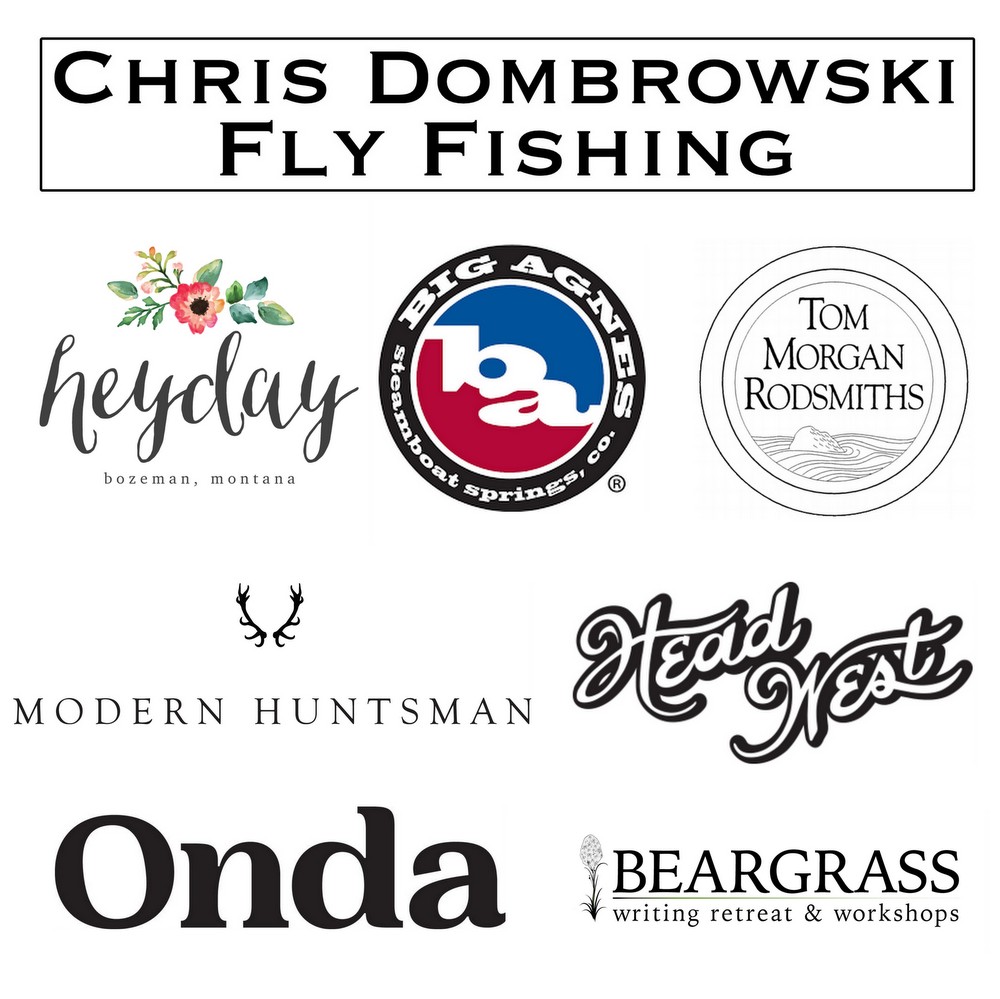
Enjoy this episode? Then you might like these as well:
- Jessica Lewis – Doing More With Less
- Alexis Bonogofsky – Taking a Stand for the West
- Mary Rondepierre – Melding Work, Play, and Purpose
- Morgan Irons – Finding Her Muse
- Rebecca Jewett – Big Ideas for the New West
- Christine Su – The Business of Healthy Grasslands
- Hampton Sides – Live at the Aspen Institute
William deBuys – Sage of the Southwest

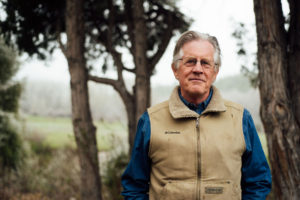
William deBuys is a renowned writer and
Bill was born and raised on the east coast but moved to New Mexico after college to take a job as a research assistant with writer Robert Coles. Bill found himself immersed in the arid landscape of the American Southwest and very quickly fell in love with the people, culture, and terrain. From then on, Bill’s life and work centered around the land, whether earning his Ph.D., working for the Nature Conservancy and The Conservation Fund, or pursuing full-time writing. His life serves as an inspiring case study of how to meld on-the-ground conservation work with high-level aspirational writing and journalism.
My biggest challenge with this conversation was figuring out how to fit five hours of questions into a single hour! We start by discussing how Bill ended up in New Mexico, and then chat a good bit about his farm. We discuss lessons learned from his work in land conservation, and techniques he uses to find common ground among competing stakeholders. We talk a lot about his writing process and routine, including Bill’s excellent advice related to the technical and psychological aspects of writing. We also discuss several of his books, and how writing each book has influenced his perspective and appreciation for his beloved New Mexico home. Bill offers up a useful and completely unique technique for summoning gratitude, a practice I believe we all can benefit from. And as usual, we discuss his favorite books, his favorite location in the West, and the best advice he ever received.
It was a dream come true to spend time with Bill at his farm, so I hope you enjoy this conversation as much as I did. Be sure the check the episode notes for links to everything we discussed!
Header photo courtesy of Bill deBuys, headshot by Ben Moscona
Click Here to Download on iTunes
—
Click Here to Download on Spotify
—
Click Here to Download on Google Play
—
Click Here to Download on Stitcher
—
Episode Notes
Topics Discussed:
- 4:30 – El Valle, New Mexico, described
- 5:45 – How Bill ended up in New Mexico
- 10:30 – Work with The Nature Conservancy and The Conservation Fund
- 12:30 – Lessons learned from conservation work
- 14:30 – Early writing experience
- 15:25 – Looking back at old work
- 16:30 – Understanding and appreciating “place”
- 19:45 – How Bill wrote “The Walk”
- 22:15 – Dealing with feedback on his writing
- 23:15 – The writer’s mindset
- 24:30 – Bill’s writing process
- 29:00 – Decision to focus mostly on writing
- 30:15 – Discussion of his book “A Great Aridness”
- 34:25 – Actionable ideas for dealing with climate change
- 38:00 – Valles Caldera Trust
- 42:00 – Techniques for finding common grounds
- 45:30 – “The Last Unicorn” and other international adventures
- 46:50 – Influentials writers and thinkers
- 49:00 – Teaching and its influence on his work
- 51:00 – Favorite books
- 53:00 – Practice of writing down all the “aunts and uncles”
- 55:00 – Most powerful outdoor experience
- 56:10 – Threats to ANWR and the Rio Grand corridor
- 59:25 – Favorite location in the West
- 59:30 – Best advice ever received
Information Referenced:
- William deBuys
- River of Traps: A New Mexico Mountain Life by William deBuys
- The Walk by William deBuys
- A Great Aridness: Climate Change and the Future of the American Southwest by William deBuys
- The Last Unicorn: A Search for One of Earth’s Rarest Creatures by William deBuys
University of North Carolina at Chapel Hill- Robert Coles
- The Nature Conservancy
- The Conservation Fund
- Dante’s Inferno
- Quivira Coalition
- Bill McKibben
- Valles Caldera
- Peter Matthiessen
- John McPhee
- Henry David Thoreau
- Wallace Stegner
- John Wesley Powell
- Edward Abbey
- Moby Dick by Melville
- Joseph Conrad
- William Shakespeare
- Middle March by George Elliot
- Bill’s Op-Ed in the New York Times
Enjoy this episode? Then you might like these as well:
- Hampton Sides – Live at the Aspen Institute
- Sara Dant – A Deep Dive Into the History of the West
- Dan Flores – Chronicling the West’s Rich Natural History
- Bryce Andrews – People, Predators, and the American West
- David Gessner, Part 2 – Ambition, Art, and Arête
Emilene Ostlind – Storytelling for the New West
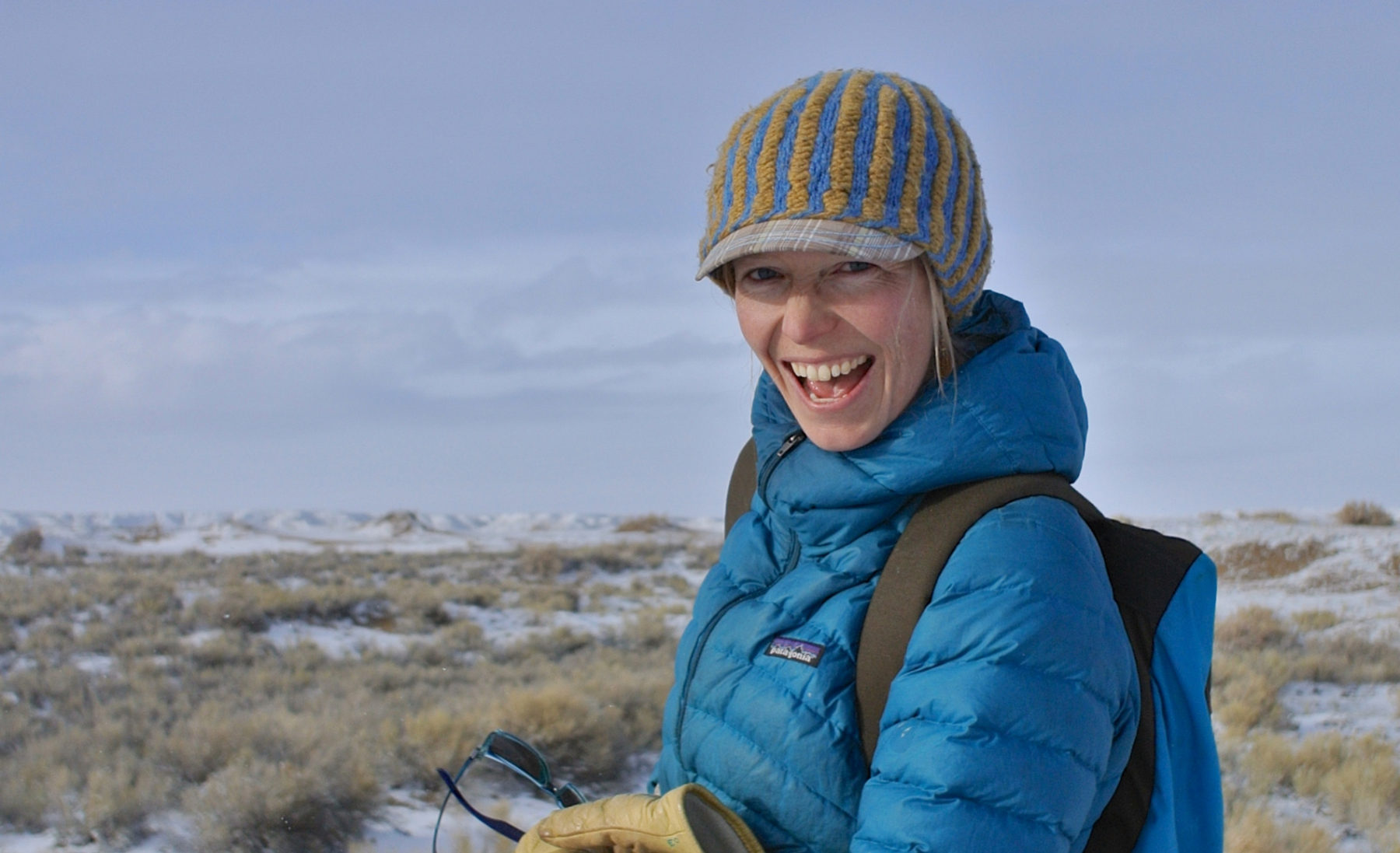
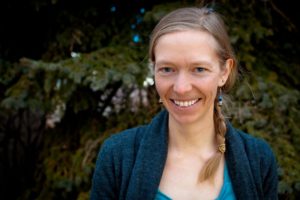
Emilene Ostlind is a Wyoming-based journalist and storyteller whose work focuses on the landscapes, natural resources, and communities of the American West. She may be best known for her work studying and documenting the long-distance migration of pronghorn antelope from Grand Teton National Park down into the Green River Valley—a topic that was the basis for her graduate school thesis, as well as her award-winning High Country News cover story about the “Path of the Pronghorn.” Emilene is also the editor of Western Confluence, an amazingly informative, entertaining, and free magazine published by the University of Wyoming’s Ruckelshaus Institute of Environment and Natural Resources. And if all of that is not enough, she is also working closely on the production of an upcoming documentary called Deer 139, which tells the story of a mule deer’s migration across Wyoming and a researcher’s attempt to follow that same path on foot.
Emilene grew up at the base of the Big Horn Mountains in Wyoming, a third-generation Wyomingite from a family closely connected to ranching and the land. After earning her undergraduate degree from the University of Wyoming, she landed a job in Washington DC with National Geographic, where she learned first hand the power of storytelling as a means of communicating important, complex issues. She returned to the University of Wyoming for a graduate degree in creative nonfiction writing, with a focus on understanding and documenting pronghorns’ migration patterns throughout her home state. Along with photographer Joe Riis, they explored the mountains of the Greater Yellowstone Ecosystem, shedding light on one of the lower 48’s last remaining big game migration corridors.
If you’ve enjoyed my conversations with folks like Dan Flores and Bryce Andrews, then you’ll love this episode. We dig deep into the specifics of pronghorns and discuss why they are one of the more interesting and impressive North American mammals. We talk about how Emilene initially became interested in pronghorn migrations, and how the project began and played out over several years. We also discuss her work editing Western Confluence and the 2018 book Wild Migrations. As you’d expect, we discuss her upbringing in Wyoming, her career path in storytelling, and she offers some excellent advice for aspiring journalists who’d like to follow a similar path. And of course we discuss favorite books, so be sure to check the episode notes for links to all of those– there are a lot of new titles.
I encourage you to subscribe to Western Confluence—it’s totally free which is quite a deal when you consider just how much you’ll learn from reading it. But in the meantime, enjoy my fun and educational conversation with Emilene Ostlind.
Photos courtesy of Emilene Ostlind
Click Here to Download on iTunes
—
Click Here to Download on Spotify
—
Click Here to Download on Google Play
—
Click Here to Download on Stitcher
—
Episode Notes
Topics Discussed:
- 4:30 – Emilene’s family history in Wyoming
- 7:00 – Her life-long interest in storytelling
- 8:00 – Experience at National Geographic
- 12:30 – Heading back West from DC
- 13:30 – Genesis of pronghorn migration idea
- 15:00 – Applying to grad school
- 17:00 – “Path of the Pronghorn”
- 21:50 – Pronghorns explained
- 26:30 – Reception of migration story by the general public
- 30:00 – Steps that landowners can take to help animal migrations
- 35:00 – Wyoming as a last major migration corridor
- 37:30 – “Deer 139”
- 41:20 – Storytelling through film
- 44:45 – Western Confluence
- 50:00 – Mentors, heroes, and books
- 53:30 – “Wild Migrations”
- 56:40 – Advice to aspiring storytellers
- 59:45 – Favorite books about the West
- 1:01:00 – Favorite films
- 1:02:00 – Most powerful outdoor experience
- 1:03:40 – Favorite location in the West
- 1:05:00 – Best advice she’s ever received
- 1:06:15 – Request of the listeners
- 1:07:40 – Connect with Emilene
Information Referenced:
- Emilene Ostlind
- “Path of the Pronghorn” story
- Deer 139
- Western Confluence
- Wild Migrations
- Ruckelshaus Institute of Environment and Natural Resources
- Padlock Ranch
- National Geographic
- Steve Winters
- Karsten Heuer
- Mark Jenkins
- Joe Riis
- Pronghorn Antelope
- American Serengeti by Dan Flores
- Unbranded
- Ben Masters podcast
- Walton Family Foundation
- High Country News
- Brian Calvert podcast
- The Snow Leopard by Peter Matthiessen
- A River Runs Through It by Norman Maclean
- Being Caribou by Karsten Heuer
- Illumination in the Flatwoods by Joe Hutto
- The Meadow by James Galvin
- This House of Sky by Ivan Doig
- Claiming Ground by Laura Bell
- MountainFilm
- Pilot Hill
Enjoy this episode? Then you might like these as well:
- Bryce Andrews – People, Predators, and the American West
- Dan Flores – Chronicling the West’s Rich Natural History
- Ben Masters – Conservation Through Innovative Filmmaking
- Charles Post – Stewardship, Science & Storytelling
- Adam Foss – Lessons Learned From a Life Afield
Behind the Scenes with Ed – Parts 1 & 2

PART 1: Behind the Scenes with Ed – Cutting-Edge Land & Water Conservation in the West

This episode is a little different—this is part one of a two-part series in which I’m the one in the hot seat. It’s a repost of my recent appearance on the Quivira Coalition’s excellent podcast called “Down to Earth – The Planet to Plate Podcast.” They were nice enough to invite me on to discuss some of my conservation work at Palmer Land Trust, particularly around our focus of conserving irrigated farmland in southeastern Colorado. It’s fascinating work that hits on many of the issues we’ve previously discussed here on Mountain & Prairie—water rights, pressures facing agricultural communities, holistic approaches to resource management, balancing the needs of agriculture with that of municipalities, and more. It’s what I spend the vast majority of my time doing, and I hope you’ll find it interesting and informative.
Regardless of whether or not you listen to my episode, I highly encourage you to check out Down to Earth. The host Mary-Charlotte is a journalistic pro who likes to dive deep in the nuances of agriculture and has interviewed some of the most impressive people working in agriculture today (present company excluded). If you’ve enjoyed my past episodes with folks like Jim Howell, Pat O’Toole, Christine Su, and, of course, Quivira Executive Director Sarah Wentzel-Fisher, then I can guarantee you’ll love the Down to Earth podcast. There’s a link to Down to Earth in the episode notes, so be sure to check it out and give them a great iTunes review if you’re so inclined.
Thanks again to Down to Earth for being interested in my work, and thanks to you all for listening. Feel free to reach out to me if you have any questions. Hope you enjoy!
Click Here to Download on iTunes
—
Click Here to Download on Spotify
—
Click Here to Download on Google Play
—
Click Here to Download on Stitcher
—
—
PART 2: Behind the Scenes with Ed – A Never-Boring, Often-Crazy Personal Journey
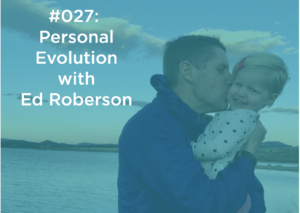
If you listened to the previous episode above, then you know that I’m mixing things up a bit. This is Part 2 of a two-part series in which I’m the one in the hot seat. This episode is a repost of my recent appearance on the Truth & Dare Podcast, a wonderfully inspiring show that features in-depth conversations about personal growth, risk-taking, and living life to the fullest.
In the first part of this two-part series, you’ll remember it being detailed discussion around my professional interests—land, water, and agriculture. This conversation on Truth & Dare is equally detailed and deep, but focused almost exclusively on my personal life—my journey from North Carolina to the West, my obsession with long-distance running, the crazy way that I met my wife, lessons learned for a semester of NOLS, how my wife and girls’ influence has made me a much better person, and much more. Many of the books and ideas that we’ve discussed on Mountain & Prairie play a big role in my personal evolution from wanna-be real estate developer to conservationist, so I wanted to share this with you all.
As you’ll hear, the host Camden is a curious, kind, and natural conversationalist who likes to talk deeply about subjects of substance—not surface-level nonsense. I was turned on to her podcast when she interviewed my friend—artist, surfer, and family-man Kevin Mirsky—and I was thrilled and a little nervous when she asked me to join her on the show. But we had an instant connection and a great conversation that I hope you’ll enjoy. But regardless of my episode, if you are interested in personal growth and stories of people who have taken unconventional paths, you should definitely give Truth & Dare a listen.
A huge thanks again to Camden for having me on, thanks to you all for listening, and I’ll be back with regular Mountain & Prairie episodes in the next few days.
Click Here to Download on iTunes
—
Click Here to Download on Spotify
—
Click Here to Download on Google Play
—
Click Here to Download on Stitcher
—
Morgan Irons – Finding Her Muse
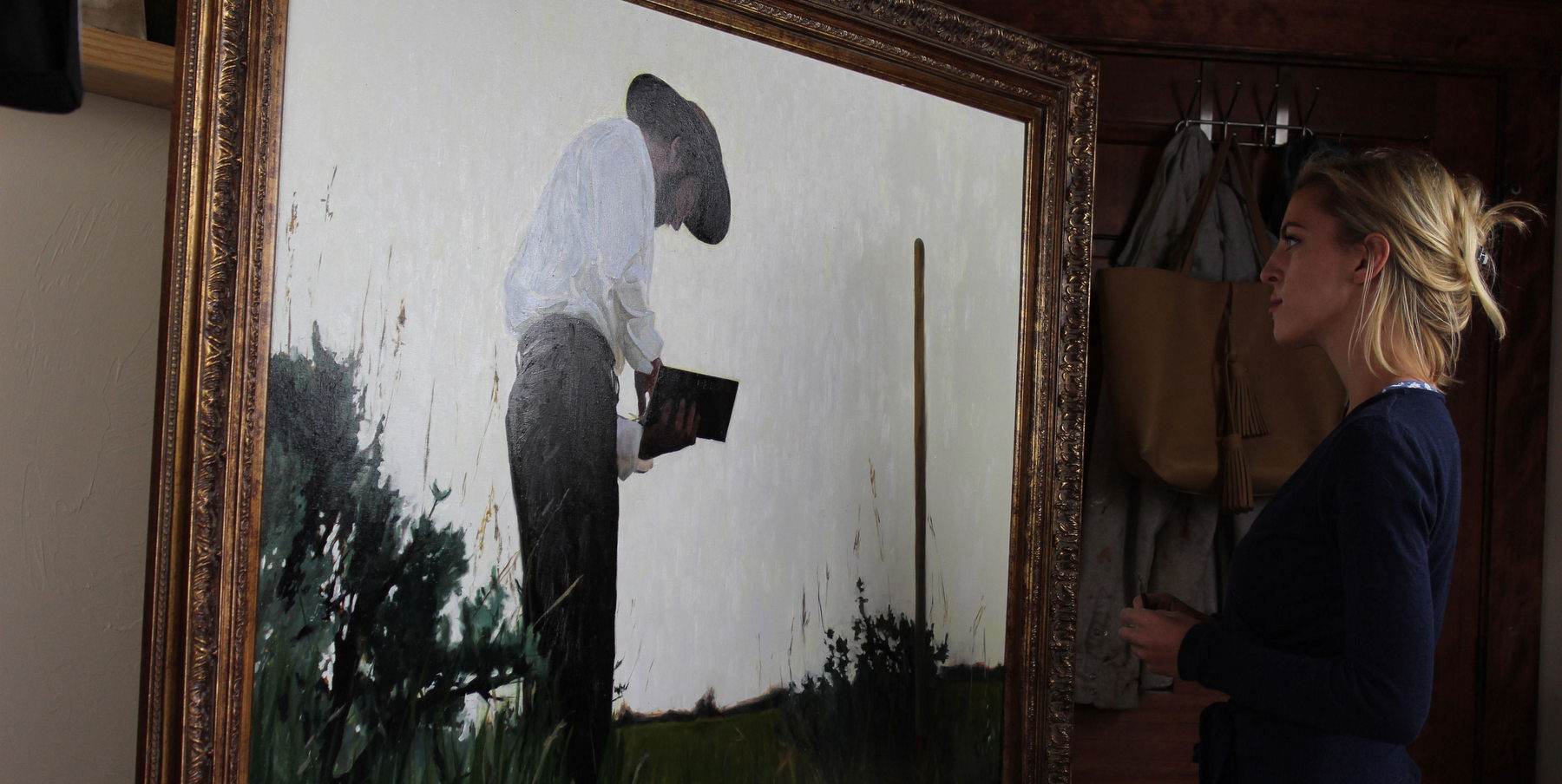
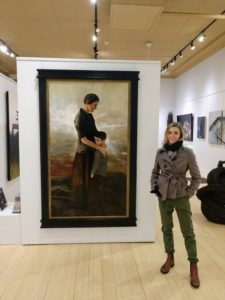
Morgan Irons is a Montana-based artist whose captivating oil paintings combine the classic style of late 19th-century painters with her own modern-day interpretation of the West’s people and places. When I first discovered Morgan’s art, I assumed I was looking at the work of a classically trained artist who’d been in the trenches of painting for decades… and I couldn’t have been more wrong. Morgan has only been painting since 2015, with virtually no artistic training prior. Her innate talent is matched only by her work ethic and commitment to the craft—she has built her life around the process of making art, which is inspiring and instructive for anyone with creative aspirations.
Morgan was born in Durango and spent her youth in various parts of the West, including Alaska and Idaho. After college in the flat midwest, she immediately returned to more rugged landscapes, working in Alaska and eventually landing in Bozeman. She tried her hand at a “normal” job but found the corporate world to be uninspiring and frustrating. So rather than wallow and complain, she moved on from that job and soon thereafter, discovered her talent for painting. Since then, she’s gone all-in on her career as an artist, and she is building quite a strong following in the art world.
If you are a person who dreams of pursuing your creative passion full time, then you will love this episode—it’s full of actionable ideas around art and the creative process. We talk about the remote cabin where Morgan lives and paints, and why she needs solitude and open spaces for maximum creative output. We discuss her daily routine and how she primes her artistic mindset through hiking, meditation, and writing. We also discuss how she blocks out distractions and her techniques for using the productive aspects of social media while avoiding the time-wasting traps. We obviously talk about the point when she discovered her talent for painting and how she has honed that talent through workshops and mentorships from top painters. Finally, Morgan tells some great stories about hunting for ghosts with her dad, her favorite books, a bear that broke into her car, and the importance of having no “Plan B.” Enjoy!
Photos courtesy of Morgan Irons
Click Here to Download on iTunes
—
Click Here to Download on Spotify
—
Click Here to Download on Google Play
—
Click Here to Download on Stitcher
—
Episode Notes
Topics Discussed:
- 5:00 – Where Morgan is based
- 6:00 – Why Morgan likes solitude
- 8:00 – Balancing technology—productivity vs. distraction
- 11:00 – Morgan’s younger years
- 12:00 – Heading to college in St. Louis
- 14:30 – Family history in Alaska
- 17:30 – Job in Alaska
- 22:00 – Lessons learned in Alaska
- 23:00 – Moving in Bozeman
- 25:15 – Discovering art
- 27:00 – Buying paint and starting to make art
- 30:00 – Feelings during the process of painting
- 32:30 – Learning from the masters while keeping the originality
- 35:30 – Formal learning from world-class artists
- 38:00 – Learning from fellow students as well as professors
- 40:00 – Daily routines
- 44:00 – Meditation practice
- 46:30 – Balancing friendships with her need for solo time
- 50:00 – How the West shapes her work
- 53:30 – Mentors and artists Morgan admires
- 56:00 – A non-painting artist who Morgan admires
- 58:30 – How her psychology degree has helped her art
- 1:00:00 – Favorite books
- 1:04:00 – Ghost hunting!
- 1:08:30 – Crazy bear encounter
- 1:12:00 – Words of wisdom
- 1:14:30 – Connect with Morgan online
Information Referenced:
- Morgan Irons
- Morgan on Instagram
- The War of Art by Steven Pressfield
- Jeremy Lipking
- Joshua LaRock
- Grand Central Atelier
- Headspace
- Sam Harris
- Waking Up meditation app
- Daniel Anderson podcast
- Melissa DiNino podcast
- Michael Untiedt
- Jules Breton
- Song of the Lark painting
- Bill Murray story about Song of the Lark
- Florence Welch
- Avett Brothers
- Mark Maggiori podcast
- Russell Rowland
- In Open Spaces by Russell Rowland
- Fifty-Six Counties by Russell Rowland
- This Much Country by Kristin Pace
- Daily Rituals by Mason Curry
- The Unbearable Lightness of Being by Milan Kundera
- Bigfoot podcast: Wild Thing
Enjoy this episode? Then you might like these as well:
- Logan Maxwell Hagege – Artistic Evolution
- Daniel Anderson – Finding Common Ground
- Melissa DiNino – Building a Unique Life in Big Sky Country
- Mark Maggiori – A Fresh View of the American West
- Nicholas Coleman – Painting the Heritage and History of the American West
- Teal Blake – On Being Authentic & Original
- Duke Beardsley – Art in the Big, Bold American West
